Welcome Guest!
- IELTS Listening
- IELTS Reading
- IELTS Writing
- IELTS Writing Task 1
- IELTS Writing Task 2
- IELTS Speaking
- IELTS Speaking Part 1
- IELTS Speaking Part 2
- IELTS Speaking Part 3
- IELTS Practice Tests
- IELTS Listening Practice Tests
- IELTS Reading Practice Tests
- IELTS Writing Practice Tests
- IELTS Speaking Practice Tests
- All Courses
- IELTS Online Classes
- OET Online Classes
- PTE Online Classes
- CELPIP Online Classes
- Free Live Classes
- Australia PR
- Germany Job Seeker Visa
- Austria Job Seeker Visa
- Sweden Job Seeker Visa
- Study Abroad
- Student Testimonials
- Our Trainers
- IELTS Webinar
- Immigration Webinar

Space Travel: IELTS Speaking Part 1, 2 & 3 Sample Answers
10 min read
Updated On Apr 08, 2024

Share on Whatsapp
Share on Email
Share on Linkedin
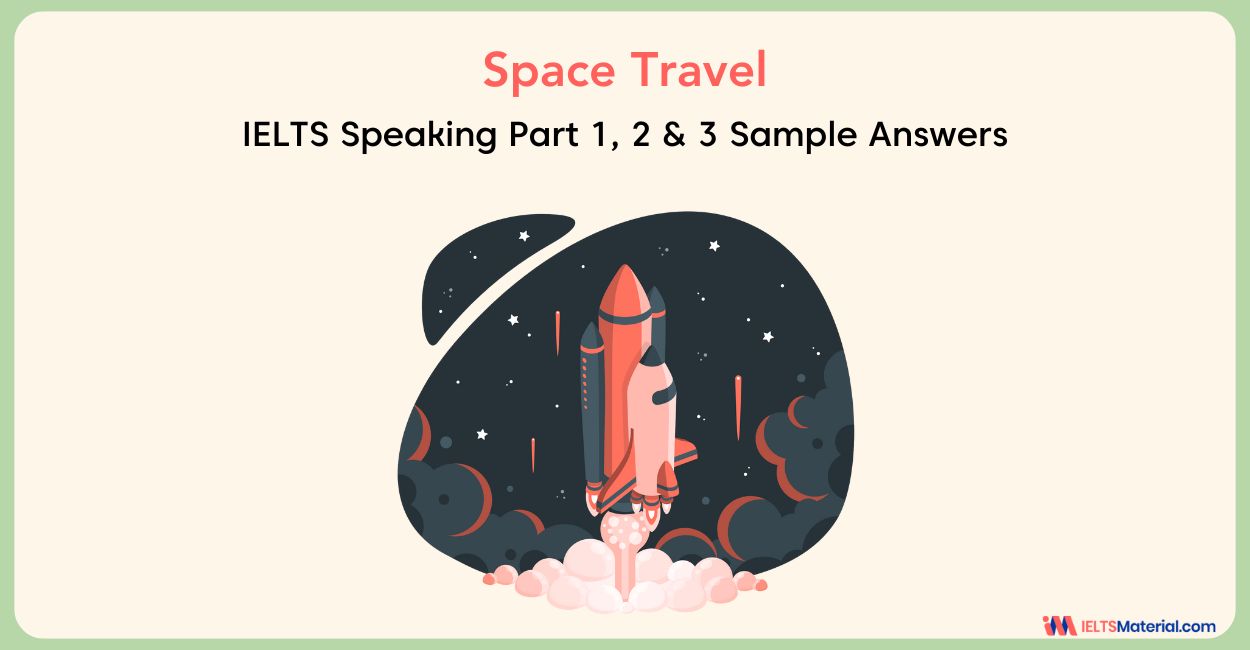
Get a Complimentary IELTS Speaking Strategies PDF
From the marvels of rocketry to the awe-inspiring sights of distant galaxies, space travel has always excited us. However, as we don’t usually talk about it on a daily basis, it is important to be prepared with topics like space travel for the IELTS Speaking exam.
So, let’s venture forth and discover the endless possibilities that await us among the stars through the sample answers for Part 1, 2 & 3 of IELTS Speaking exam.
Outer Space Travel & Stars IELTS Speaking Part 1
Let’s start with some sample responses to Part 1 speaking topic space exploration related questions from the IELTS Speaking test, and we’ll look at some relevant words and phrases that you can use in your answers.
- Do you like to travel by air?
Certainly! It’s the quickest and most efficient way. I would choose this over a 12+ hour bus or car ride any day! Furthermore, whenever I set foot on a plane, I tend to feel sleepy and end up drifting off for pretty much the entire flight.
- What do you think about travelling to outer space?
I think it’s quite intriguing, as I believe that other life forms may exist. Moreover, it’s fascinating to find out more about the other complex galaxies surrounding us. I believe there is much more to the universe than only Earth.
- Do you want to travel in outer space?/Would you like to travel into space?
Yes, of course! I would be really interested to see what else is out there. I’m not sure if this would happen in my lifetime though. However, I’ve heard that one day we may be able to take trips to space. I think it’s a possibility! The future never ceases to amaze me.
- What would you do if you had the opportunity?
If I am given the opportunity to space travel, I would be ecstatic to take on such a once-in-a-lifetime experience. Since childhood, I have been curious about space. Therefore, I will gladly take part in any scientific studies or investigations carried out while travelling, and experience weightlessness in the vastness of space.
- Are you thinking of going on holiday in space?
While traveling to space sounds like an exciting opportunity, I don’t think I will be able to afford going on holiday in space as of now. Nevertheless, in future, if such a chance comes my way or I am able to earn that money, I would definitely like to go on one such space vacation.
- Who would you like to go with?/Whom would you like to go with if you travel to space?
At this point in time, I can just imagine going alone with a specialized person. Down the road I could imagine going with my partner, and perhaps my children as well. I would love for all of us to share this experience together.
- What would you prepare on a trip to the outer space?
Definitely appropriate astronautical gear, as I’ve seen in pictures. Furthermore, I would like to bring some kind of camera or video to be able to show my friends on earth what I saw. Lastly, I would like to bring some kind of gift from earth just in case I came across another life form there.
- Where would you like to go to?
The moon or mars! I would say the moon because I’m interested to know what it feels like to walk on it. I’m also curious if the myth that it’s made out of cheese is accurate. On the other hand, I’ve heard there is water on Mars, suggesting that there could be life there, so I’d be fascinated to investigate that firsthand.
- Do you think it’s necessary to see other planets?
I would say it’s a luxury more than a necessity for average people. However, I think it’s necessary for scientists to investigate other planets so that we have better research and understanding of what is going on around us. Lastly, it’s good for us humans to realize that Earth isn’t the only planet.
Outer Space Travel & Stars Speaking Part 1 Vocabulary
- Set foot on
Meaning: enter; step into
Example: My brother dreams of being a part of space exploration and setting foot on Mars.
Meaning: sleep
Example: The driver was drifting off at the end of the journey and I was scared.
Meaning: fails
Example: The night sky never ceases to amaze me.
- Down the road
Meaning: in the future
Example: John has a plan of becoming a surgeon down the road.
- Came across
Meaning: encountered by accident
Example: Mohona came across his first teacher at the bookstore.
- Plunge oneself into something (phrase)
Meaning: to suddenly start doing something with energy and enthusiasm, but sometimes without thinking about it first
Example: After the accident, Ray plunged himself into swimming.
- Every now and then (idiom)
Meaning: sometimes
Example: The postmaster calls the boy to work for him every now and then.
- Get-together (noun)
Meaning: a small informal meeting or social gathering
Example: Are you invited to the get-together at the club?
IELTS Speaking Part 2 Cue Card – Imagine You are Planning to Take a Space Holiday on Mars
You will receive a task card in IELTS Speaking Part 2 that asks you to explain a situation or a topic. There will then be three to four questions on the topic, such as the one below.
Talk about your plan to take a space holiday on Mars.
You should say :
- When are you planning to go?
- What are the difficulties you are expecting?
- How will you prepare for the journey?
- And say how you feel about it.
Talk about your plan to take a space holiday on Mars – IELTS Cue Card Sample Answer 1
In the next ten years, I hope to take a space vacation to Mars. I think by then, because of developments in space exploration and the ambitious aspirations of both commercial and government space agencies, Mars travel will become more affordable.
Undoubtedly, going to Mars is definitely going to be difficult and full of problems. I believe there might be psychological and physical difficulties due to the extended travel time, which may extend to several months. In addition, meticulous planning and preparation are required to guarantee safety and well-being due to the harsh circumstances on Mars, which include intense heat, radiation exposure, and a lack of breathable air.
Preparing for a journey to unknown terrain, like Mars, requires thorough training and preparation. To make sure I’m fit for space flight, I would go through a rigorous physical and psychological evaluation. Simulated spaceflight circumstances, emergency drills, and sharpening of skills relevant to living on Mars, such as spacecraft systems operation, scientific research, and maintenance, would all be part of the training.
Taking a space vacation to Mars is an exciting yet intimidating experience. It is very thrilling to think about visiting a different planet, traveling its surface, and taking in the splendor of the Martian environment. Nonetheless, I am also skeptical when I consider the difficulties and dangers that come with space travel. Nevertheless, I feel a great feeling of excitement and purpose coming from the chance to take part in humanity’s trip to Mars and further space exploration.
Want to brush up your skills with speaking topic space exploration?
Book a free trial to practice!
Talk about your plan to take a space holiday on Mars – IELTS Cue Card Sample Answer 2
Honestly, I have not thought about space travel to Mars yet. Even while infrastructure and technology for Mars missions are developing quickly, I think it will be some time before the general people can travel to Mars in a commercial capacity. So, maybe it will take possibly a few decades for me to organize a space vacation to Mars.
Although I am not making any plans, I know that there are many obstacles on the way to Mars, one of which is the lengthy space flight, which might take six to nine months. Furthermore, the hostile environment on Mars, which includes a thin atmosphere, high temperatures, and possible health hazards from prolonged exposure to cosmic radiation, might create a lot of challenges. Moreover, the practical difficulties of providing food, water, and shelter for life on Mars also need to be properly considered.
Firstly, I would have to go through a thorough evaluation process to make sure I am mentally and physically prepared for space travel. In addition to practicing emergency protocols and gaining vital skills for Mars life, such as conducting scientific research, managing spacecraft systems, and carrying out maintenance duties, training would involve simulating spaceflight circumstances. Additionally, I would also become knowledgeable about the difficulties and dangers of space travel and take the required safety measures to lessen them.
The thought of taking a space vacation to Mars excites and frightens me in equal measure. I am aware of the hazards and difficulties that come with space travel and planet exploration, but I find these possibilities to be immensely alluring. Nevertheless, I would gladly take advantage of the possibility to travel to Mars and further the research of space if granted.
Outer Space Travel & Stars – IELTS Speaking Part 3
Look at the IELTS Speaking Part 3 questions related to the space travel and exploration cue card and develop your own sample answers.
- Do you think humans will live in space in the future?
Absolutely, I think that at some point, whether it be on the Moon, Mars, or in space habitats around the planet, mankind will construct permanent communities in space. Living in space will become an achievable goal in the future thanks to technological advancements and human curiosity and exploring instincts.
- How does space exploration impact life on Earth?
There are several advantages to space travel for Earthly existence. Firstly, it stimulates scientific research, accelerates technological advancement, and promotes global collaboration. Secondly, a plethora of innovations and technology that advance society—from satellite communications to medical imaging methods—have been made possible by space exploration. Moreover, finding an alternative planet or universe can prove to be helpful in times of crisis, as shown in sci-fi movies.
- What are your thoughts on the search for extraterrestrial life?
Extraterrestrial life has always piqued the interest of humans. I think when there are multiple galaxies, finding life forms different from us is not mere imagination. It is just a matter of time that we will be exploring these alien life forms just like we found out about black holes and new planets.
- How should children be taught about space?
Children should be taught about space in an engaging and accessible manner that sparks their curiosity and imagination. Hands-on activities, interactive lessons, and age-appropriate educational resources can help children grasp complex concepts about space, astronomy, and space exploration. Encouraging questions, exploration, and critical thinking fosters a lifelong interest in space and science.
- Will space tourism become popular in the future?
Yes, in my opinion, space tourism will also become the talk of the town in a few years. With the emergence of commercial spaceflight companies like SpaceX, Blue Origin, and Virgin Galactic, space tourism is becoming more accessible to private individuals. Therefore, with the rate of technological development, that day is not far when the general public will be able to have vacation on other planets or even the moon.
Grab our much- popular Speaking ebook before it sells out!
Don’t Miss Out !
Outer Space Travel & Stars IELTS Speaking Vocabulary for Part 2 & 3
Meaning: showing great attention to detail; careful and precise
Example: The meticulous work of the student impressed the teacher.
Meaning: physical features of a tract of land, such as its elevation, slope, and surface characteristics
Example: You should be careful and alert as you are traveling in unfamiliar terrain.
- Intimidating
Meaning: causing fear or nervousness due to being large, powerful, or difficult to deal with
Example: The voice with which you speak is very intimidating for others.
Meaning: unfriendly or antagonistic; showing opposition or aggression
Example: The prisoners were kept in hostile conditions.
- Cosmic radiation
Meaning: high-energy radiation, such as protons and other atomic nuclei, originating from sources outside the Earth’s atmosphere, including the sun, stars, and other celestial objects
Example: Astronauts traveling or living in space stations are often exposed to cosmic radiation which are very harmful.
Meaning: a vehicle or device designed for travel or operation in outer space
Example: In the future, the billionaire plans to make his own spacecraft.
Meaning: short for science fiction; a genre of speculative fiction that explores imaginative and futuristic concepts, often involving advanced technology, space exploration, and extraterrestrial life
Example: Marco likes to watch sci-fi movies.
Meaning: a region of space-time where gravity is so strong that nothing, not even light, can escape from its gravitational pull
Example: We were taught about black holes in school.
Make Your Speaking Skills Stand Out with IELTSMaterial
Speaking well involves more than just being fluent and confident. You also have to express your ideas concisely, use a variety of language, and proper grammar . Achieving all these on your own through just practicing test papers might be a little challenging.
So, you can connect with our IELTS experts or join the free webinars for tips to take your IELTS Speaking preparation to the next level!
Additional Reads
- 151 IELTS Speaking Topics Part 2 & 3 with Model Answers
- Mastering IELTS Speaking: Learning Fluency and Coherence
- 50 Recent IELTS Speaking Part 2 and 3 Topics with Model Answers for IELTS 2024
- Social Media – IELTS Speaking Part 1 with Sample Answers
- IELTS Pronunciation Guide
- Common English words in IELTS Speaking
- IELTS Study Plan for 1 month (30 Days) / 15 Days / 7 Days
- Idioms for IELTS Speaking
- IELTS Speaking preparation tips
- Linking words for IELTS Speaking
- IELTS Speaking recent actual test

Bonus IELTS Speaking part questions with Answers
Kasturika Samanta
Kasturika is a professional Content Writer with over three years of experience as an English language teacher. Her understanding of English language requirements, as set by foreign universities, is enriched by her interactions with students and educators. Her work is a fusion of extensive knowledge of SEO practices and up-to-date guidelines. This enables her to produce content that not only informs but also engages IELTS aspirants. Her passion for exploring new horizons has driven her to achieve new heights in her learning journey.
Explore other Speaking Part 1 Actual Test Questions
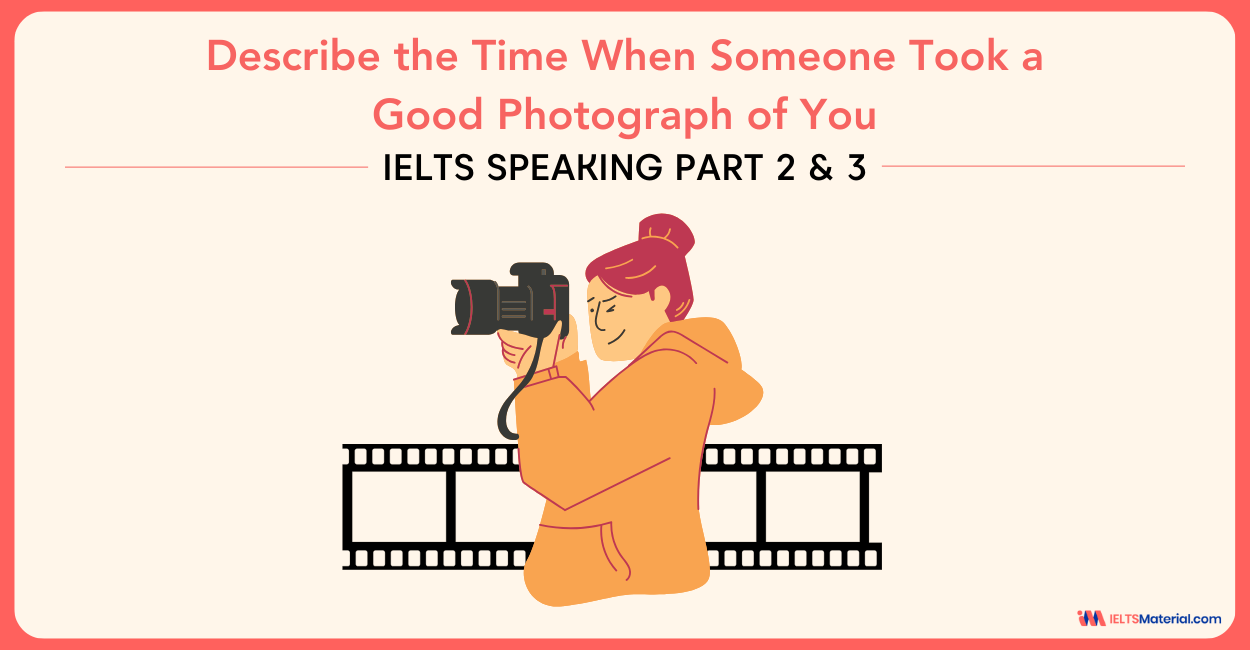
Akanksha Tripathi
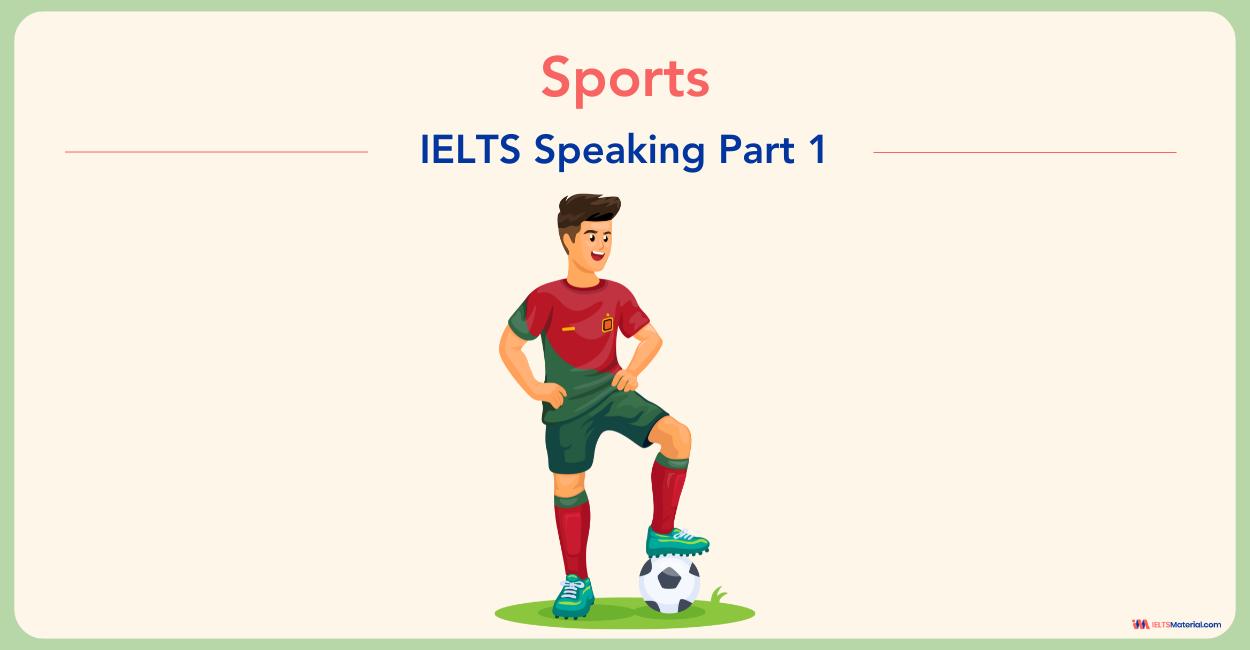
Raajdeep Saha
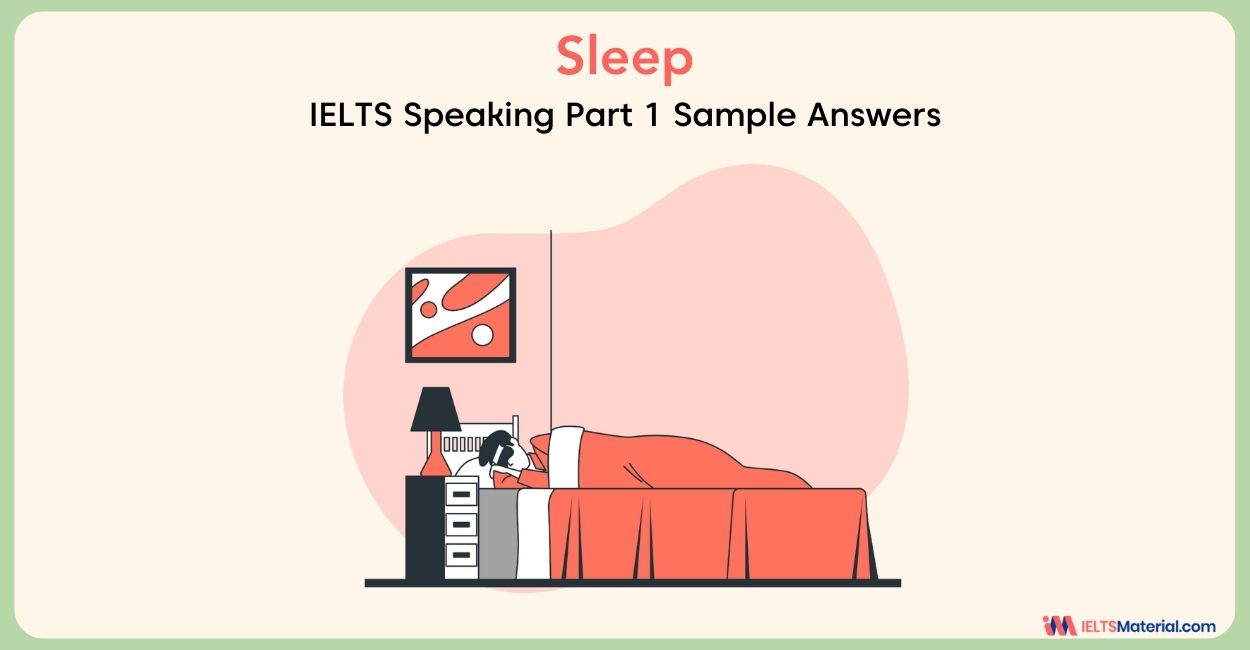
Courtney Miller

Post your Comments
Recent articles.

Our Offices
Gurgaon city scape, gurgaon bptp.
Please enter Email ID
Please enter phone number
Application
Please select any one
Already Registered?
Select a date
Please select a date
Select a time (IST Time Zone)
Please select a time
Mark Your Calendar: Free Session with Expert on
Which exam are you preparing?
Great Going!
Get a free session from trainer
- Subscribe to BBC Science Focus Magazine
- Previous Issues
- Future tech
- Everyday science
- Planet Earth
- Newsletters
Everything you need to know about space travel (almost)
We're a long way from home...
Paul Parsons
When did we first start exploring space?
The first human-made object to go into space was a German V2 missile , launched on a test flight in 1942. Although uncrewed, it reached an altitude of 189km (117 miles).
Former Nazi rocket scientists were later recruited by both America and Russia (often at gunpoint in the latter case), where they were instrumental in developing Intercontinental Ballistic Missiles (ICBMs) – rockets capable of carrying nuclear weapons from one side of the planet to the other.
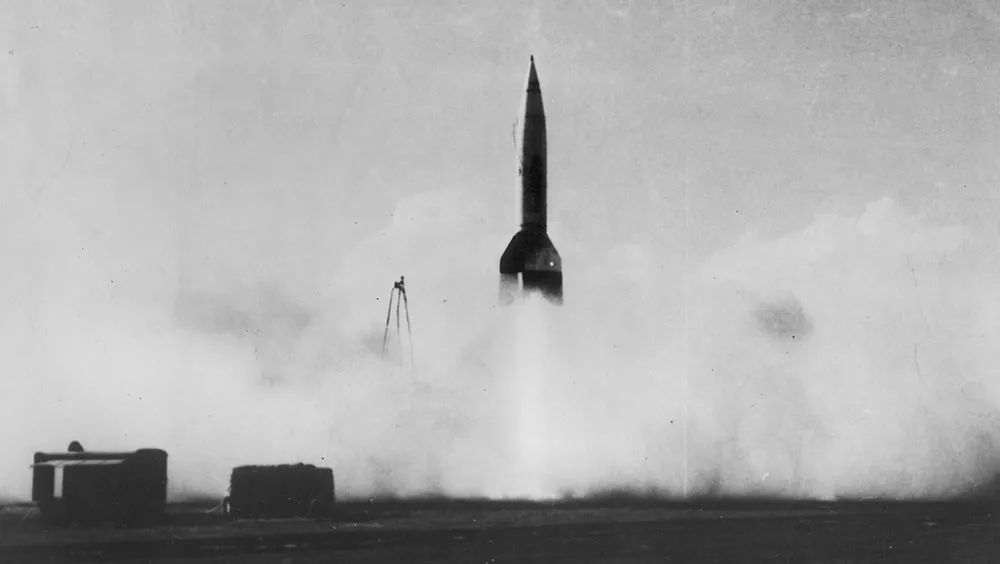
It was these super-missiles that formed the basis for the space programmes of both post-war superpowers. As it happened, Russia was the first to reach Earth orbit, when it launched the uncrewed Sputnik 1 in October 1957, followed a month later by Sputnik 2, carrying the dog Laika – the first live animal in space.
The USA sent its first uncrewed satellite, Explorer 1, into orbit soon after, in January 1958. A slew of robotic spaceflights followed, from both sides of the Atlantic, before Russian cosmonaut Yuri Gagarin piloted Vostok 1 into orbit on 12 April 1961, to become the first human being in space . And from there the space race proper began, culminating in Neil Armstrong and Buzz Aldrin becoming the first people to walk on the Moon as part of NASA's Apollo programme .
Why is space travel important?
Space exploration is the future. It satisfies the human urge to explore and to travel, and in the years and decades to come it could even provide our species with new places to call home – especially relevant now, as Earth becomes increasingly crowded .
Extending our reach into space is also necessary for the advancement of science. Space telescopes like the Hubble Space Telescope and probes to the distant worlds of the Solar System are continually updating, and occasionally revolutionising, our understanding of astronomy and physics.
- Subscribe to the Science Focus Podcast on these services: Acast , iTunes , Stitcher , RSS , Overcast
But there are also some very practical reasons, such as mining asteroids for materials that are extremely rare here on Earth.
One example is the huge reserve of the chemical isotope helium-3 thought to be locked away in the soil on the surface of the Moon . This isotope is a potential fuel for future nuclear fusion reactors – power stations that tap into the same source of energy as the Sun. Unlike other fusion fuels, helium-3 gives off no hard-to-contain and deadly neutron radiation.
However, for this to happen the first challenge to overcome is how to build a base on the Moon. In 2019, China's Chang’e 4 mission marked the beginning of a new space race to conquer the Moon, signalling their intent to build a permanent lunar base , while the NASA Artemis mission plans to build a space station, called Lunar Orbital Platform-Gateway , providing a platform to ferry astronauts to the Moon's surface.
Could humans travel into interstellar space and how would we get there?
It’s entirely feasible that human explorers will visit the furthest reaches of our Solar System. The stars, however, are another matter. Interstellar space is so vast that it takes light – the fastest thing we know of in the Universe – years, centuries and millennia to traverse it. Faster-than-light travel may be possible one day, but is unlikely to become a reality in our lifetimes.
It’s not impossible that humans might one day cross this cosmic gulf, though it won’t be easy. The combustion-powered rocket engines of today certainly aren’t up to the job – they just don’t use fuel efficiently enough. Instead, interstellar spacecraft may create a rocket-like propulsion jet using electric and magnetic fields. This so-called ‘ ion drive ’ technology has already been tested aboard uncrewed Solar System probes.

Another possibility is to push spacecraft off towards the stars using the light from a high-powered laser . A consortium of scientists calling themselves Breakthrough Starshot is already planning to send a flotilla of tiny robotic probes to our nearest star, Proxima Centauri, using just this method.
Though whether human astronauts could survive such punishing acceleration, or the decades-long journey through deep space, remains to be seen.
How do we benefit from space exploration?
Pushing forward the frontiers of science is the stated goal of many space missions . But even the development of space travel technology itself can lead to unintended yet beneficial ‘spin-off’ technologies with some very down-to-earth applications.
Notable spin-offs from the US space programme, NASA, include memory foam mattresses, artificial hearts, and the lubricant spray WD-40. Doubtless, there are many more to come.
Read more about space exploration:
- The next giant leaps: The UK missions getting us to the Moon
- Move over, Mars: why we should look further afield for future human colonies
- Everything you need to know about the Voyager mission
- 6 out-of-this-world experiments recreating space on Earth
Space exploration also instils a sense of wonder, it reminds us that there are issues beyond our humdrum planet and its petty squabbles, and without doubt it helps to inspire each new generation of young scientists. It’s also an insurance policy. We’re now all too aware that global calamities can and do happen – for instance, climate change and the giant asteroid that smashed into the Earth 65 million years ago, leading to the total extinction of the dinosaurs .
The lesson for the human species is that we keep all our eggs in one basket at our peril. On the other hand, a healthy space programme, and the means to travel to other worlds, gives us an out.
Is space travel dangerous?
In short, yes – very. Reaching orbit means accelerating up to around 28,000kph (17,000mph, or 22 times the speed of sound ). If anything goes wrong at that speed, it’s seldom good news.
Then there’s the growing cloud of space junk to contend with in Earth's orbit – defunct satellites, discarded rocket stages and other detritus – all moving just as fast. A five-gram bolt hitting at orbital speed packs as much energy as a 200kg weight dropped from the top of an 18-storey building.
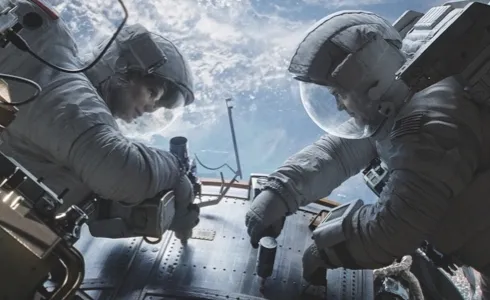
And getting to space is just the start of the danger. The principal hazard once there is cancer-producing radiation – the typical dose from one day in space is equivalent to what you’d receive over an entire year back on Earth, thanks to the planet’s atmosphere and protective magnetic field.
Add to that the icy cold airless vacuum , the need to bring all your own food and water, plus the effects of long-duration weightlessness on bone density, the brain and muscular condition – including that of the heart – and it soon becomes clear that venturing into space really isn’t for the faint-hearted.
When will space travel be available to everyone?
It’s already happening – that is, assuming your pockets are deep enough. The first self-funded ‘space tourist’ was US businessman Dennis Tito, who in 2001 spent a week aboard the International Space Station (ISS) for the cool sum of $20m (£15m).
Virgin Galactic has long been promising to take customers on short sub-orbital hops into space – where passengers get to experience rocket propulsion and several minutes of weightlessness, before gliding back to a runway landing on Earth, all for $250k (£190k). In late July 2020, the company unveiled the finished cabin in its SpaceShipTwo vehicle, suggesting that commercial spaceflights may begin shortly.
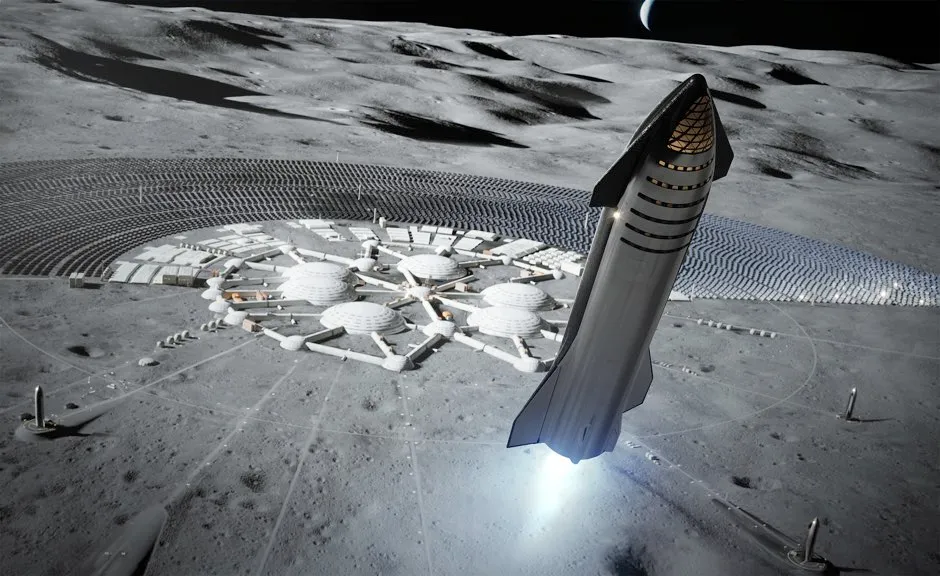
Meanwhile, Elon Musk’s SpaceX , which in May 2020 became the first private company to launch a human crew to Earth orbit aboard the Crew Dragon , plans to offer stays on the ISS for $35k (£27k) per night. SpaceX is now prototyping its huge Starship vehicle , which is designed to take 100 passengers from Earth to as far afield as Mars for around $20k (£15k) per head. Musk stated in January that he hoped to be operating 1,000 Starships by 2050.
10 Short Lessons in Space Travel by Paul Parsons is out now (£9.99, Michael O'Mara)
- Buy now from Amazon UK , Foyles , WH Smith and Wordery
Share this article

- Terms & Conditions
- Privacy policy
- Cookies policy
- Code of conduct
- Magazine subscriptions
- Manage preferences
Finding the Universe
Travel tales, photography and a dash of humor
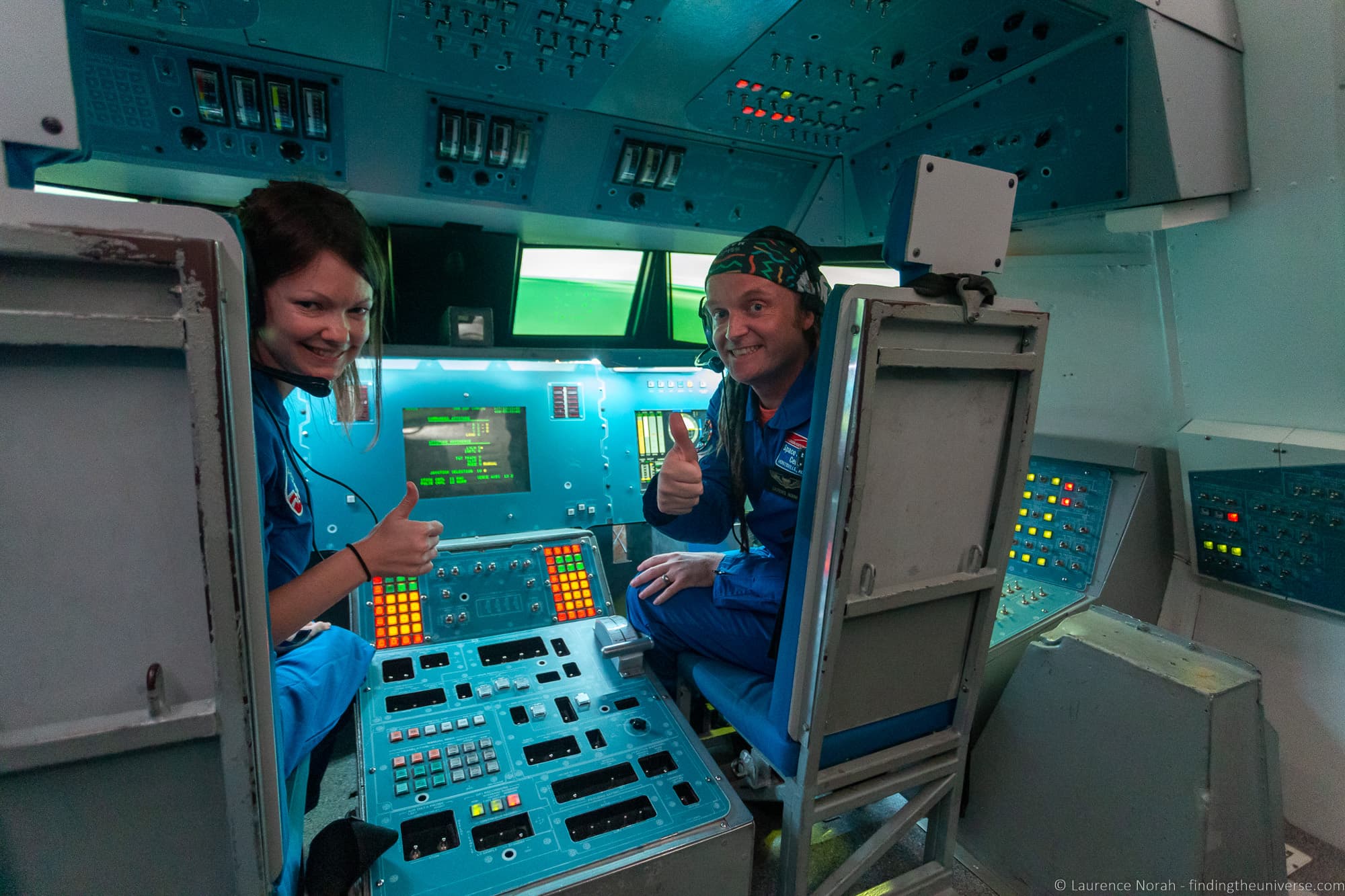
Space Tourism: How to Visit Space as a Tourist
Last updated: August 28, 2023 . Written by Laurence Norah - 4 Comments
Despite the name of this blog, I have been distressingly earth bound for all of my years thus far. Given recent developments in space exploration technology though, hope is not yet lost for the dream of going into space as a tourist – without having to shell out the millions of dollars that past tourists have paid!
In today’s post, I’m going to talk about a few things. I’m going to cover where space travel & exploration is today.
I’m going to talk about what options we have now, and may have in the future, for getting into space as a tourist. And I’m also going to cover a few ways those of us stuck on Earth without access to a giant pile of cash can still get our space fix around the world!
The State of Space Travel as a Tourist in 2023
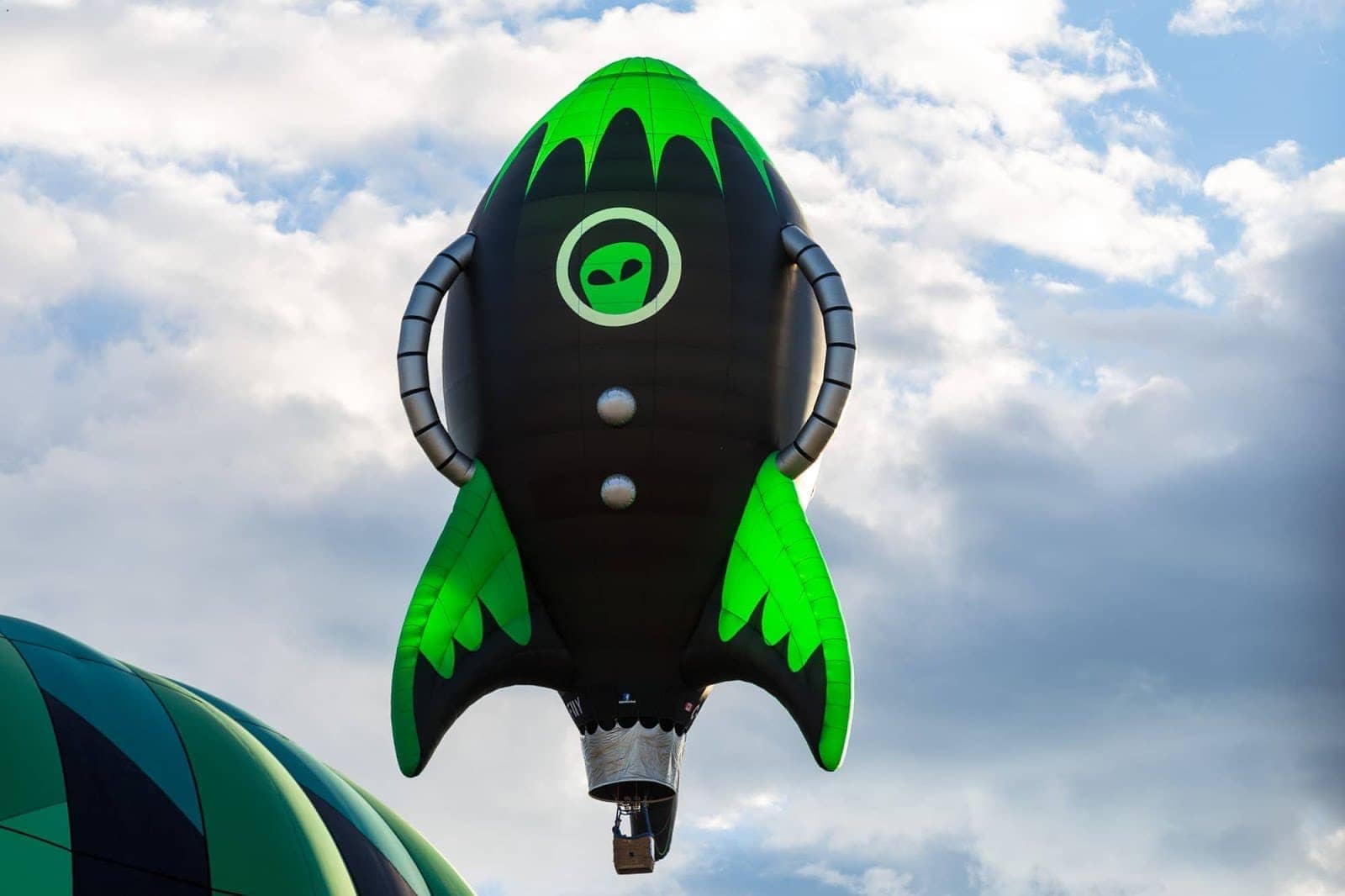
Huge strides are happening right now in space exploration, particularly with private companies looking at opening up space to your average person. Admittedly, right now, space tourism isn’t exactly accessible.
Up to 2009, only 7 people made it into space as tourists, all travelling with the Russian Space Agency, and all paying in excess of USD $20 million.
These weren’t exactly hop-on hop-off trips either, with the participants undergoing months of training, and many of them actively running their own experiments in space. So to call them space tourists is perhaps a bit of a misnomer.
However, things have now changed, and trips into space are becoming more affordable. Admittedly, they aren’t exactly “budget”, but they are less than $20 million a go.
So what’s changed?
Well, put simply, private investment. Whilst massive government organisations like NASA , the Russian Space Agency and the European Space Agency are always researching and expanding their space exploration efforts, their focus isn’t exactly on getting folks like you and me into space – at least not in the near term. Their focus is on long term scientifically focused exploration missions, with perhaps the most exciting being NASA’s Journey to Mars .
Other organisations though, see the potential for space based tourism as a way to generate funds and publicity for their projects. There are three main players in the space tourism business right now – Virgin Galactic , SpaceX and Blue Origin .
Let’s take a look at the main players with whom you have a real chance of getting into space within the next few years.
How to Go To Space As A Tourist
Other than flagging down a passing UFO Ford Prefect style, or signing up to be an astronaut with a government agency, getting into space is a bit tricky. But that’s all changing, and these are the companies with whom you are most likely to be able to travel into space.
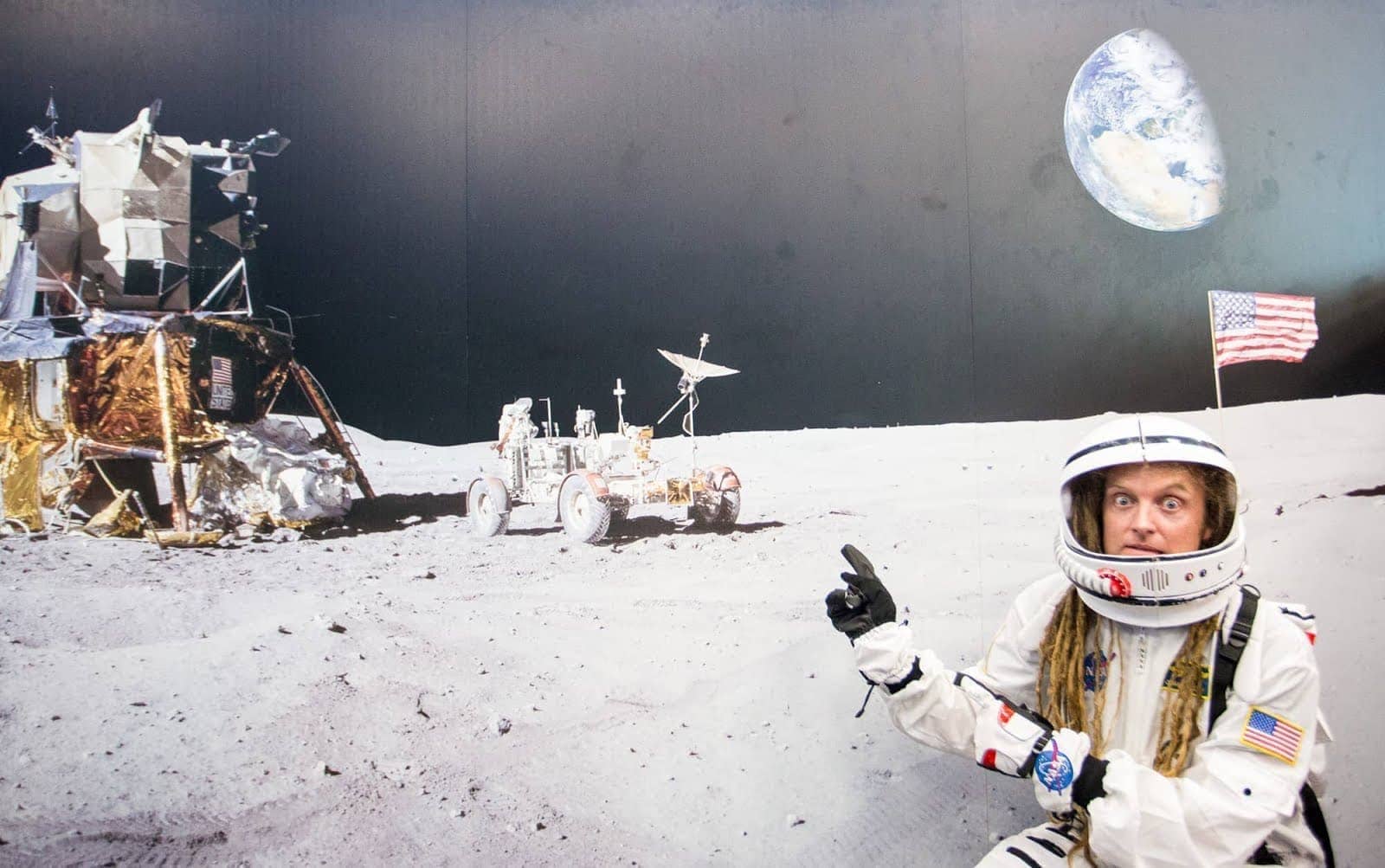
1. Virgin Galactic
Part of the Virgin Group headed up by Sir Richard Branson, Virgin Galactic currently offers sub-orbital flights to paying passengers aboard their SpaceShipTwo and SpaceShipThree craft.
Sub-orbital means that you’re not high enough to actually orbit the earth, but as the goal you do pass the 100km line that marks the edge of space, you will technically be in space, and also experience weightlessness. Hurrah!
The good news is that as of June 2023, commercial space flights have actually commenced. Trips are scheduled to go monthly, and you can now buy tickets for a voyage into space with Virgin Galactic. They are currently on sale for $450,000.
Admittedly, $450,000 USD isn’t exactly small change, but it’s a lot less expensive than the $20 million that previous space travellers have paid. For your money, you get three days of training at Spaceport America in New Mexico, a flight into space, a somewhat incredible view and a period of weightlessness. Not too bad.
2. Blue Origin
Owned by Amazon billionaire Jeff Bezos, Blue Origin is a private company which initially appeared to be focusing on sub-orbital flight, much like Virgin Galactic.
Unlike Virgin Galactic though, which uses a combination of a normal plane and a rocket plane to achieve the necessary space altitude, Blue Origin are using more conventional rocket technology, with a focus on re-usable components that cut the cost of launches.
Other than the spacecraft, the experience is largely the same – a sub-orbital flight that comprises a few days of training in Texas, a journey lasting around 11 minutes to up beyond the 100km line, weightlessness and some incredible views.
The technology to do this will look familiar to any fans of existing space flight technologies, including the capsule that returns to Earth by parachute, meaning that there are fewer technical hurdles to overcome.
As of 2021, flights have commenced on the New Shepherd, with Jeff Bezos being the first into space. The ticket for the first commercially available seat in the July 2021 launch was auctioned off for a cool $28 million.
Since that launch, there have been a number of flights with paying customers.
Regular pricing isn’t set, although it’s currently rumored to be around $1 million per seat. A timeframe for general availability of commercial flights isn’t yet known. You can sign up to be kept informed and updated however.
Perhaps even more excitingly than the New Shepherd program is its successor – the New Glenn program. This should offer longer duration, possibly even orbital flights, although details are currently sparse on the ground, with operations aimed to launch in late 2024. We do know however that priority on these trips will be given to New Shepherd customers.
Last in our trio of serious contenders for firms that will take your money and send you into space in the next few years is SpaceX .
SpaceX is owned by Elon Musk, who is particularly famous for being the CEO and co-founder of Tesla Inc, the electric car and battery manufacturer, amongst other things.
SpaceX largely focuses on commercial launch capabilities, with a particular focus on reusable rocket technologies that bring down the cost of putting payloads into orbit.
They’ve been hugely successful in this field, with multiple achievements, including being the first privately funded company to successfully launch, orbit and recover a spacecraft.
They were also the first private company to send a spacecraft to the International Space Station, and have since flown many missions to the ISS.
Whilst the majority of their work is on commercial and government contracts for putting things like satellites into orbit, some recent developments have put SpaceX firmly on the space tourism map.
First, in 2017 they announced that they had been contracted by two private individuals who want to go on a trip around the moon. This was originally due to launch in 2018, but has been postponed until at least 2024. It will be by far the most ambitious space tourism endeavor to date by any company, and you can read more about the project here .
SpaceX are also starting to sell tickets on their Crew Dragon capsule, which is the launch system NASA is using to shuttle astronauts to the ISS. These are not generally available, but a 3-day mission consisting entirely of tourists took place in 2021, with further missions expected. These are still priced in the tens of millions of dollars though, so don’t bank on these becoming affordable for a while to come.
Next, SpaceX is actively working on technology to colonise Mars, with a lofty goal of setting up a permanent colony on the red planet, home to over a million people, within the next 100 years.
Whilst the current estimate of cost for such a ride is in the region of $10 billion USD per person, SpaceX is aiming to bring that down to $100,000 through the development of their Interplanetary Transport System . This won’t happen in the near-term, but by the end of the century tourism to Mars might be a real possibility, with lunar and earth-orbital flights the norm by then.
4. Other Contenders
So those are the main players who, in my opinion, have the most realistic chances of taking you to space in the coming decade. But they aren’t the only players in the space tourism arena! Here are a few others to be aware of who might give you a chance of getting off Planet Earth.
Bigelow Aerospace: Bigelow Aerospace are actually a pretty major name when it comes to space technology, and if you ever happen to find yourself in a hotel on the moon or floating around the Earth, it’s likely going to be inside one of their inflatable habitats.
This isn’t theoretical either, they’ve got an inflatable capsule attached to the International Space Station already undergoing feasibility testing. Owner Robert Bigelow made his fortune in hotels, and he sees no reason why we can’t have them in space too.
Space Perspective: Space Perspective are taking a slightly different approach to everyone else, in that their route to space is to fly passengers 100,000ft above the ground in capsule carried aloft by a gigantic hydrogen filled balloon.
Ok, so 100,000ft isn’t exactly space, but it is high enough to see the curvature of the earth. It’s likely to be a more sedate and relaxed experience as well, compared to firing yourself into space on some sort of rocket at least. And whilst experiencing zero-gee isn’t going to be on the cards, you should be able to enjoy the views from the wraparound windows whilst enjoying a tipple from the on-board bar!
Tickets for 2024 flights have already sold out, but you can book for 2025 at a cost of $125,000 per person.
Boeing: Boeing are currently under contract with NASA to build a crew transport vehicle that would be compatible with a number of rocket systems, primarily for the purpose of shuttling astronauts to the ISS. It was originally due to start those flights in late 2018. However, testing did not start until late 2019, and the current timetable for crewed flights is now 2023.
As part of their contract, this CST-100 Starliner was specified to include one seat specifically for the purposes of space tourism , allowing one passenger to just tag along for the ride as it were. For a price, naturally. That price is currently unknown, although the original goal was to have it price competitive with the Russian Space Agency, so don’t expect it to come under the tens of millions mark!
Mars One: Mars One was an organisation with a goal of establishing a permanent human colony on Mars by the year 2035. Announced in 2012, it encouraged members of the public to sign up for the one-way mission, which resulted in over 200,000 applicants. That was whittled down to 100, and then a final 24 candidates.
Unfortunately, the project was dogged by criticism, particularly around the technical and financial feasibility of the plan. Finally, Mars One entered administration in 2019.
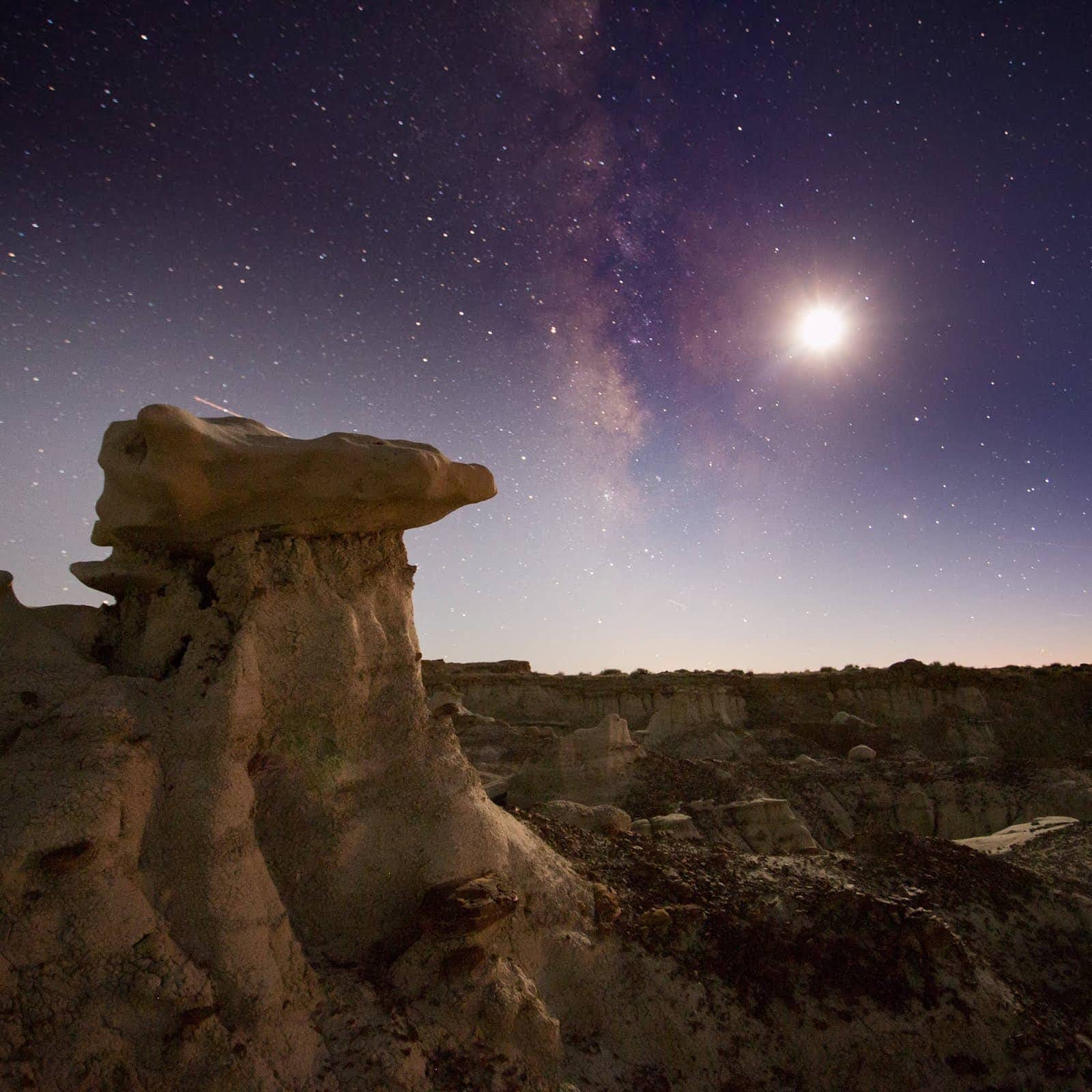
The Best Space Sights and Activities on Earth
Ok, so based on all the above, you’re probably realising that space is still a pretty tough place to get to right now, and even over the next few years it’s still going to be pretty darn expensive for a fairly brief jaunt.
Don’t fret though. Planet Earth is a pretty cool place, and there are a lot of space-related activities you can take part in without re-mortgaging your house and strapping yourself to a rocket.
Here are a few places you can learn about space and space travel in the meantime! Let’s look at these.
1. Active Spaceports
Whilst you might not get into space right now, you can still visit a spaceport and dream of the future! I’ve picked three spaceports for you to think about visiting.
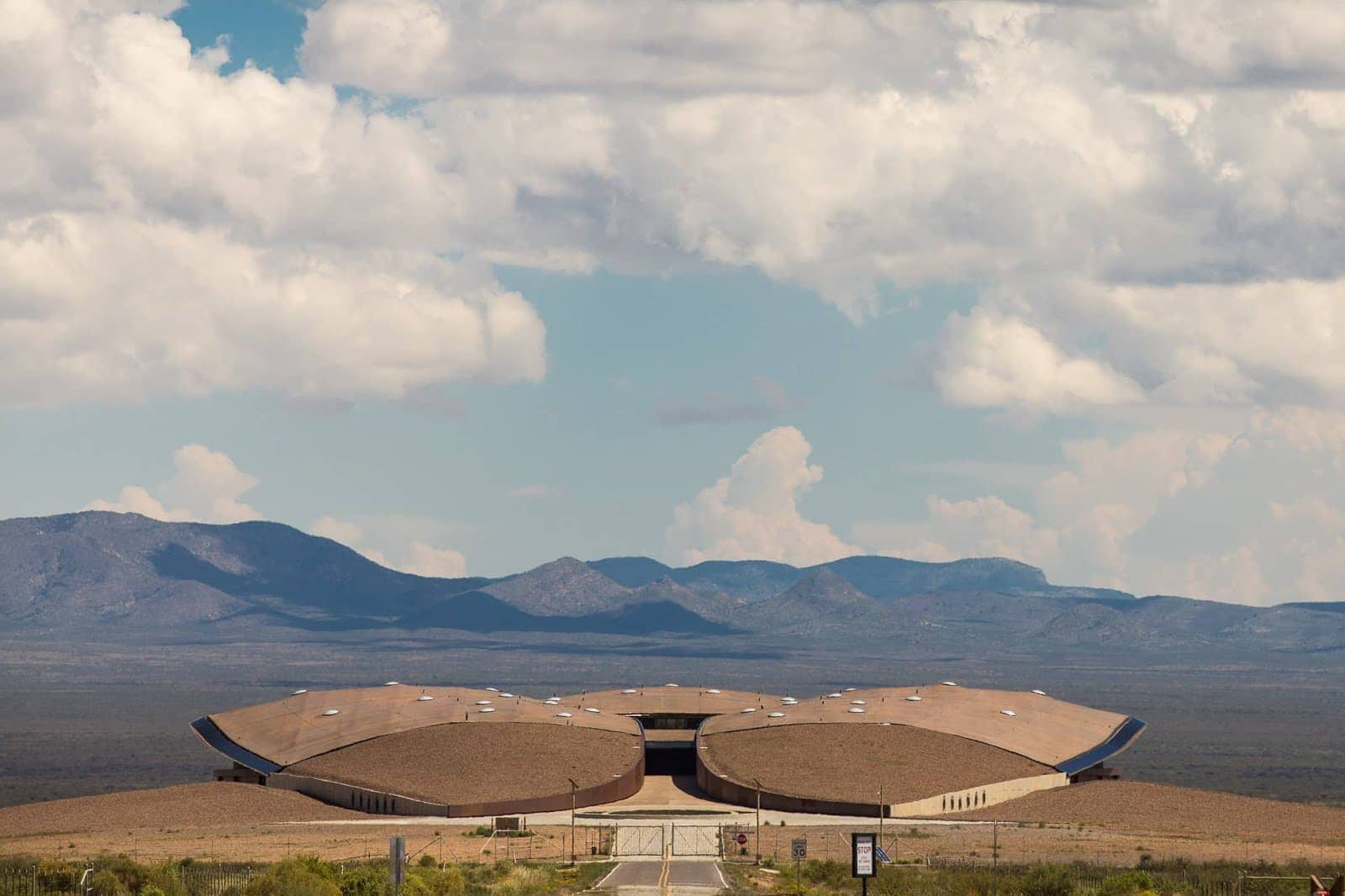
Spaceport America, USA. Set in the high New Mexican desert, Spaceport America is the world’s first purpose-built commercial spaceport, meaning it’s designed for commercial users. Yes, people like you and me. It’s the home base of Virgin Galactic, and is where that company will be operating from when they finally launch their space tourism flights. SpaceX also conduct some of their testing here. Unfortunately, you still can’t board a space trip here, but it’s a worthwhile place to visit, if only to get a tantalising glimpse of a possible future.
Kennedy Space Center, USA. Found in Florida, Kennedy Space Center is the main launch pad for NASA’s operations, and is where Apollo and Space shuttle launches took place. It’s a massive facility, spanning 144,000 acres. There’s a visitor centre on site, where you can learn all about NASA and it’s space operations, see an actual space shuttle and even experience a simulated space shuttle launch. Kennedy Space Center is still very much an active launch site, and you can also come here to watch rockets blast off into space – see their website for the launch schedule .
Baikonur Cosmodrome, Kazakhstan. One of the world’s most famous spaceports, and certainly the oldest and largest, Baikonur Cosmodrome is where the majority of Russia’s space program has operated from, including the first man into space, Yuri Gagarin. It’s still very active, and you can in theory visit, however prices are steep for a one day tour ($700+), and can only be arranged via a specialist tour operator in a complex process that needs to be booked weeks in advance.
2. Space Museums
As well as active space ports, there are a lot of museums around the world dedicated to sharing man’s activities in space. Here are a few of the best.
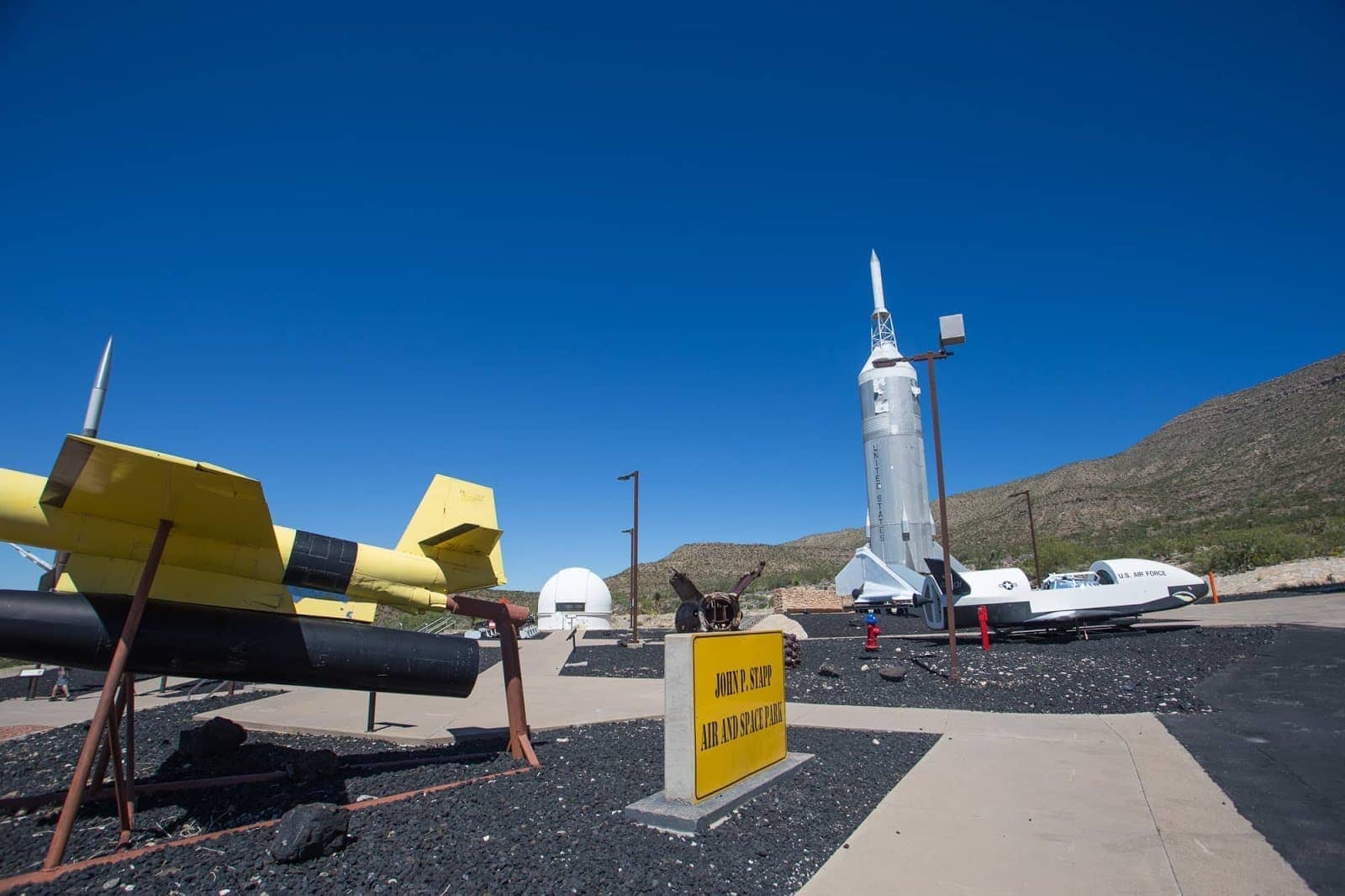
Space Center Houston, USA. The official visitor centre for NASA’s center for human spaceflight activities, Space Center Houston is an excellent place to come and learn all about NASA’s efforts around getting people into space. It has a number of artifacts from our explorations to date, including a lunar module replica and various actual capsules that have been into space. Tip – if you’re visiting a few sights in Houston, you can save money by investing in a CityPASS card which will get you into the Space Center as well as a number of other attractions in the city.
New Mexico Museum of Space History, USA. Found in Alamogordo in southern New Mexico, the five storey New Mexico Museum of Space History is full of information about man’s efforts to get into space, with everything from information on early rocket technology through to more modern day exhibits including a space shuttle landing simulator. It’s also home to the International Hall of Space Fame, a planetarium, and offers fantastic views across the White Sands National Monument.
Smithsonian National Air and Space Museum , USA . Found in Washington, D.C., this enormous museum is home to the world’s largest collection of historic aircraft and spacecraft in the world, including the Apollo 11 module and clothing worn by astronauts. With over 60,000 objects on display, you won’t run out of things to look at!
The National Space Centre, UK. Both a museum and an educational resource, the National Space Center in Leicester, UK, is home to six interactive galleries and the UK’s largest planetarium. A highlight though is the 42 metre high Rocket Tower , which houses a number of upright rockets, really giving you a feel for the enormity of these machines.
The U.S. Space and Rocket Center. Found in Huntsville, Alabama, right next door to NASA Marshall. The U.S. Space and Rocket Center has loads of information on the history of space flight, including two full size Saturn V rockets! This is also where you can attend Space Camp , a hands-on multi day training program for all ages, which will take you through a range of training similar to that which real astronauts do!
3. Space Themed Sights
We may be currently fairly stuck on the planet, but that doesn’t mean we’re not still hurtling through space, a small rock in a vast galaxy. Here are a few ways to help remind ourselves that there’s more out there than our horizon.
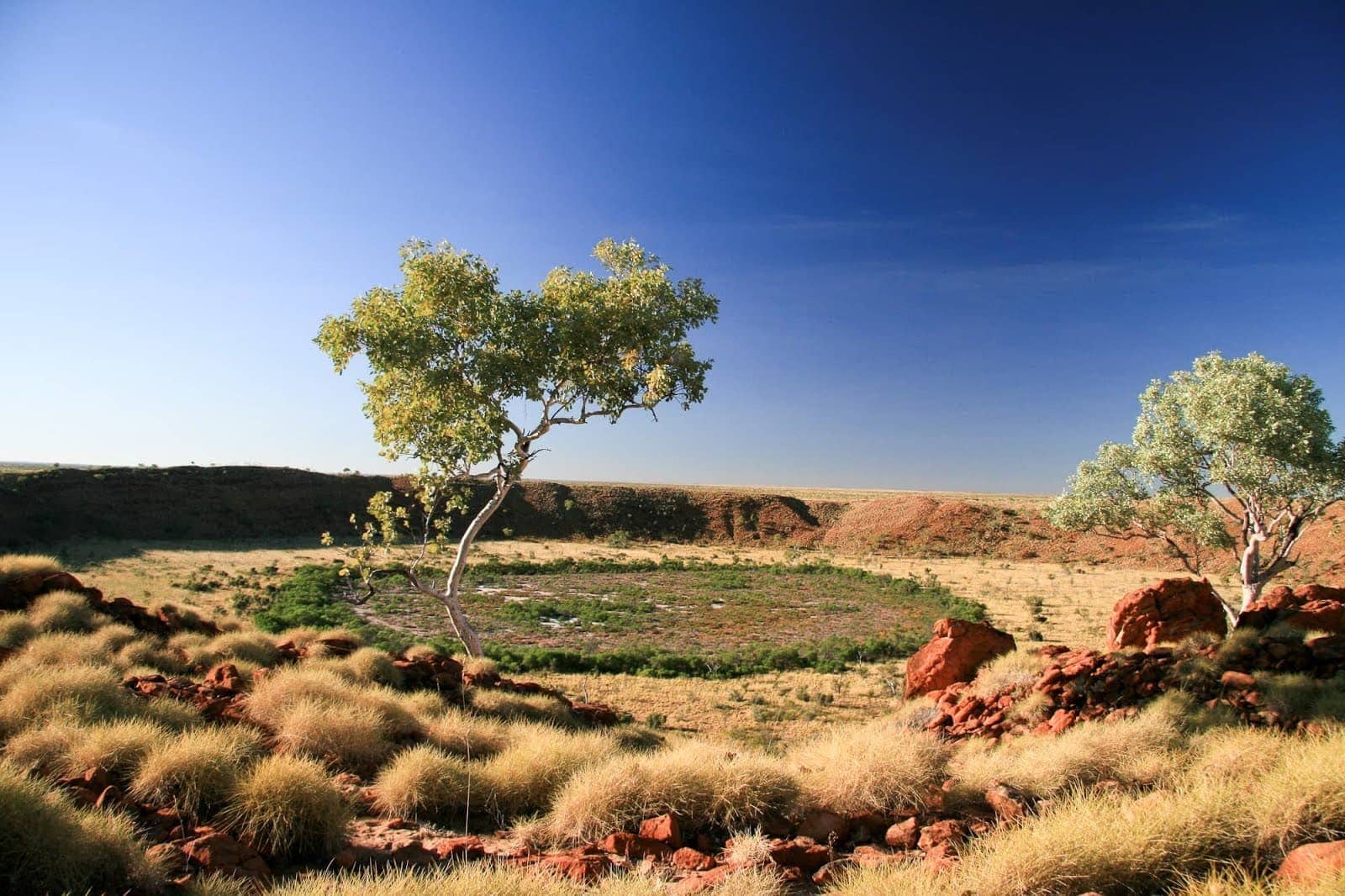
Meteor Craters. On our journey through space we regularly bump into errant lumps of space debris – around 100 tons a day in fact. Most often these lumps are so small (dust-specks really) that they just burn up in our atmosphere, creating beautiful shooting stars. However, anything larger than a marble has a chance of making to earth, although there are a lot of factors at work.
According to NASA , it’s the lumps that are around the size of a football field and up that make the most impact, and one of these hits us every couple of thousand of years. They can cause significant damage and leave a lasting impact. Two worth mentioning that you can visit are the aptly named “ Meteor Crater ” in Arizona, USA, and the Wolfe Creek Meteorite Crater in Western Australia. Both of these are around a kilometre in diameter, meaning you can see the whole structure with the naked eye and really get a feel for the force required to create such a hole. Of course you can also find smaller ones all over the world.
Star Gazing. You might not be able to get to the stars, but that doesn’t mean you can’t appreciate them. I always find that just lying back and staring into the vastness of space from a really dark location is a very powerful experience. You need to be somewhere far away from light pollution to get the best views of the night sky – there are dark sky preserves (and even festivals !) where you can get a great view, otherwise, head as far away from the lights as you can and just look up.
4. Giant Telescopes
How about if you can’t get into space, you try just looking at it through a really big magnifying glass and pretend you’re there? It might be as close as you can currently get to space for free, whilst also being wowed by humanities technological accomplishments. Below are four locations around the world where you can learn all about the art of looking into space. Of course, there are many more sites around the world and you can find a list of some of the major telescopes here although not all can be visited by the public.
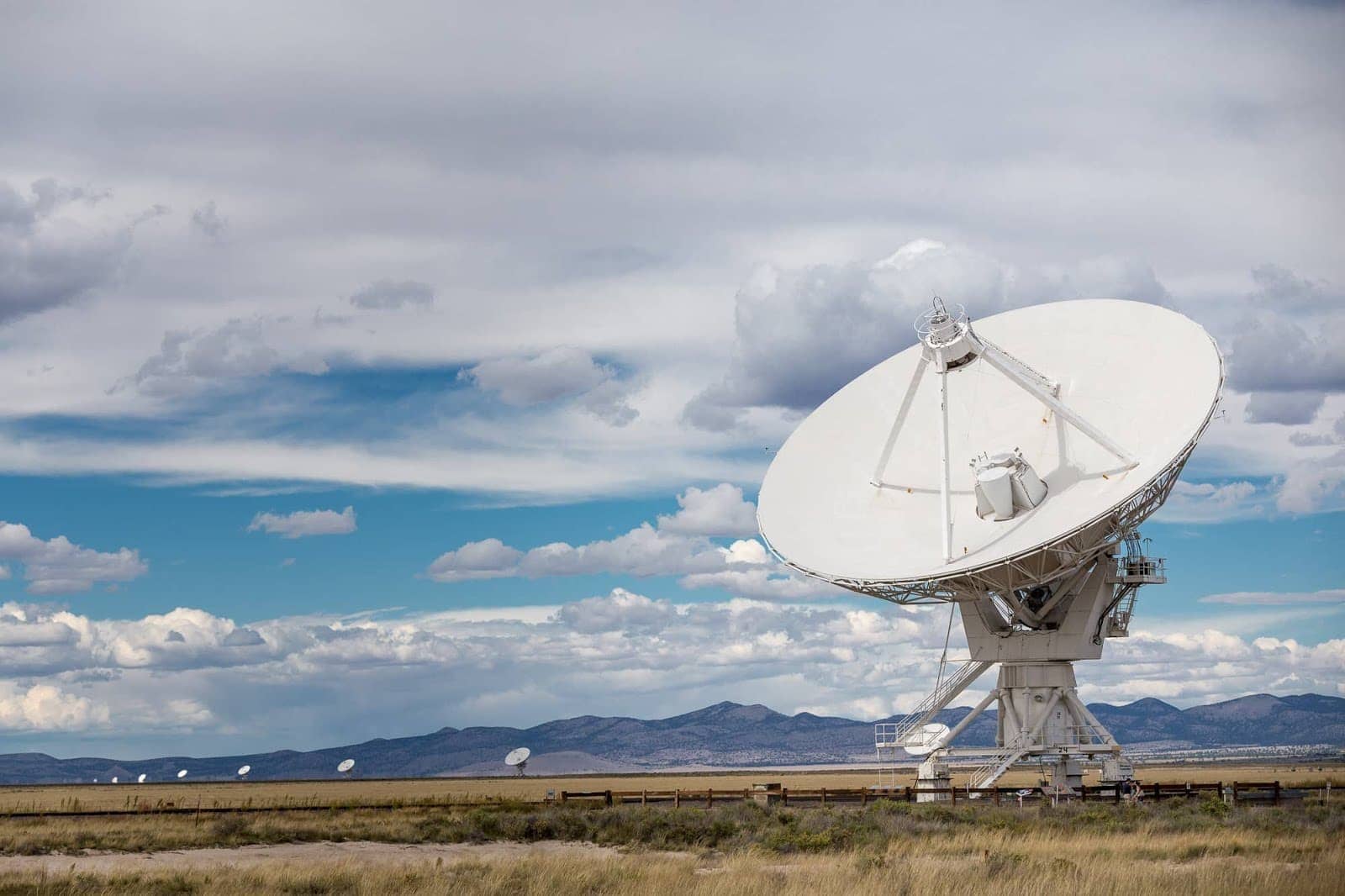
The Very Large Array, USA. Far out in the New Mexico wilderness, the Very Large Array is one of the world’s largest and most impressive radio telescopes. Unlike an optical telescope, which look at visible light waves, a radio telescope looks at radio waves, and from that we can learn all sorts of things from how black holes are formed through to the creation of the universe itself. These radio waves require a very large telescope, which is why the VLA is actually made up of 27 dishes, which work together to capture radio waves. There’s a small visitor centre and self-guided walking trail, and there are guided tours on the first Saturday of the month. See the official website for more details.
Jodrell Bank, UK. If you’re in the UK , then a trip to Jodrell Bank is a good option for viewing impressively large radio telescopes. In fact, Jodrell Bank is home to the world’s third largest steerable radio telescope, as well as a number of other active telescopes. There’s a visitor centre where you can learn all about the telescopes, and all sorts of other space-related things.
The Very Large Telescope, Chile. Way up high in the mountains of Chile is the world’s most advanced visible-light astronomical observatory – the aptly named “ Very Large Telescope ”. Operated by the European Southern Observatory, this is the most impressive optical instrument in the world to date, consisting of four main mirrors that are over eight meters in diameter, as well as four 1.8m diameter mirrors. These work together to create a final image, and the telescope is powerful enough that it would be able to make out a cars headlights on the moon. It’s fairly remote, what with it being on a mountain top in Chile, but you can visit – check here for more information on tours.
Green Bank Observatory, USA – At time of writing, Green Bank Observatory is home to the worlds largest steerable radio telescope, the Green Bank Telescope. Constructed in 2001, it’s one of the newest US telescopes, and with a total collecting area of 2.3 acres, is certainly impressive to behold. You can take a tour of the observatory, and there are also weekly and monthly events at the site.
5. Extra-terrestrial spots
If you’re really desperate to get off planet, you might want to frequent a location which has a history of extra-terrestrial activity such as UFO sightings. Whilst E.T. is yet to make formal contact, who knows, you might get lucky and have the chance to hop on a passing spaceship!
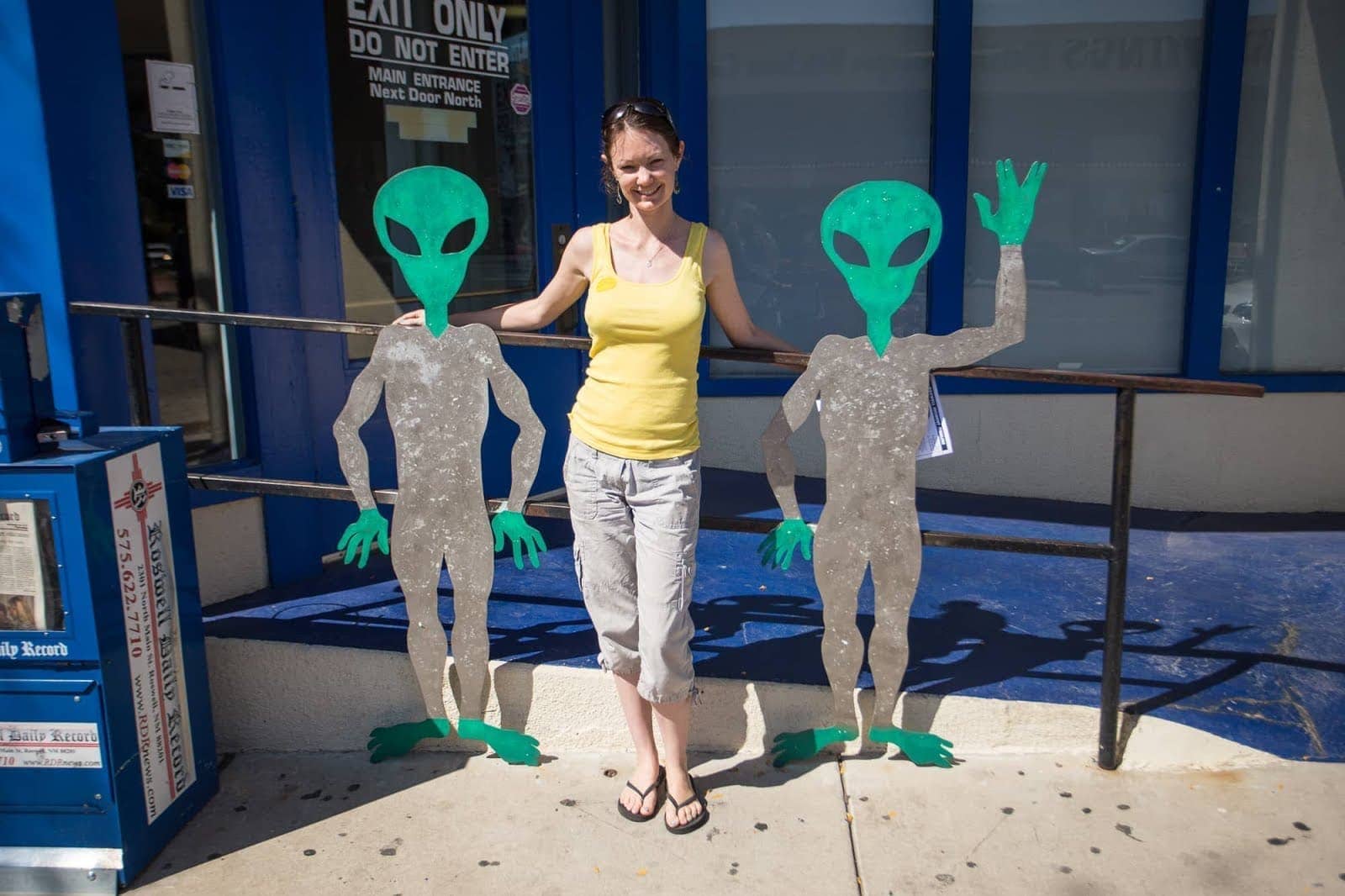
Roswell, USA. If you want to learn about aliens, then the town of Roswell in New Mexico has definitely got to be on your list. It became famous as the alleged site of a huge government cover-up of a supposed alien spaceship crash at a nearby ranch property, and the town has since embraced it’s position as the world’s most famous UFO hotspot. There are a number of alien themed attractions here – we’d recommend visiting the Roswell UFO museum as a good starting point.
El Enladrillado, Chile. Central Chile is well known as a UFO spotting hotzone. So much so in fact, that the country’s national tourism board established a UFO trail, a 30km long designated trail in the Andes mountains that centres around the town of San Clemente. This is definitely a good place to come to spot UFO’s, although the national tourism authority is keen to stress that a sighting isn’t guaranteed.
Nullabor Plain, Australia. When I was travelling in Australia, I had a memorable evening out in the outback on the vast Nullabor Plain with a chap who was convinced he was regularly visited by aliens. He might have been on to something of course, with this region of Australia being particularly famous for UFO sightings. And if you don’t see a UFO, fear not, the star gazing here is pretty epic too!
HR Giger Museum, Switzerland. If you prefer your aliens of the fantastical science fiction type, then a visit to the HR Giger museum in Gruyères, Switzerland, should definitely be on your list. It’s home a large collection of works by Swiss artists HR Giger, who famously created the monsters from the sci-fi classic horror movie Alien (and its sequels). Definitely one for the sci-fi fans.
Further Reading for your Space Trip
Well, that was a lot about space. Hopefully you’ve learnt a bit about your options for getting into space as a tourist, as well as some slightly more cost-effective ways to get your space fix on! Here are a few resources that you might find useful.
- Our favourite sights along the New Mexico Space Trail , USA. Plus a guide to attending the Albuquerque International Balloon Fiesta if you’re in New Mexico.
- Our guide to visiting Jasper National Park for their annual Dark Sky Festival
- A guide to attending Space Camp USA , as well as visiting the U.S Space and Rocket Center
- Official websites for Virgin Galactic , Blue Origin and SpaceX , for when you’ve saved up enough for that ticket to space
- The NASA Instagram feed , for mind blowing space images
- John Glenn’s memoir, to give you an insight into what it was like to be the first American to orbit the earth.
- Chris Hadfield’s book “ An Astronaut’s Guide to Life on Earth ”, helping you understand how to make the impossible a reality, which seems like a good place to end this post!
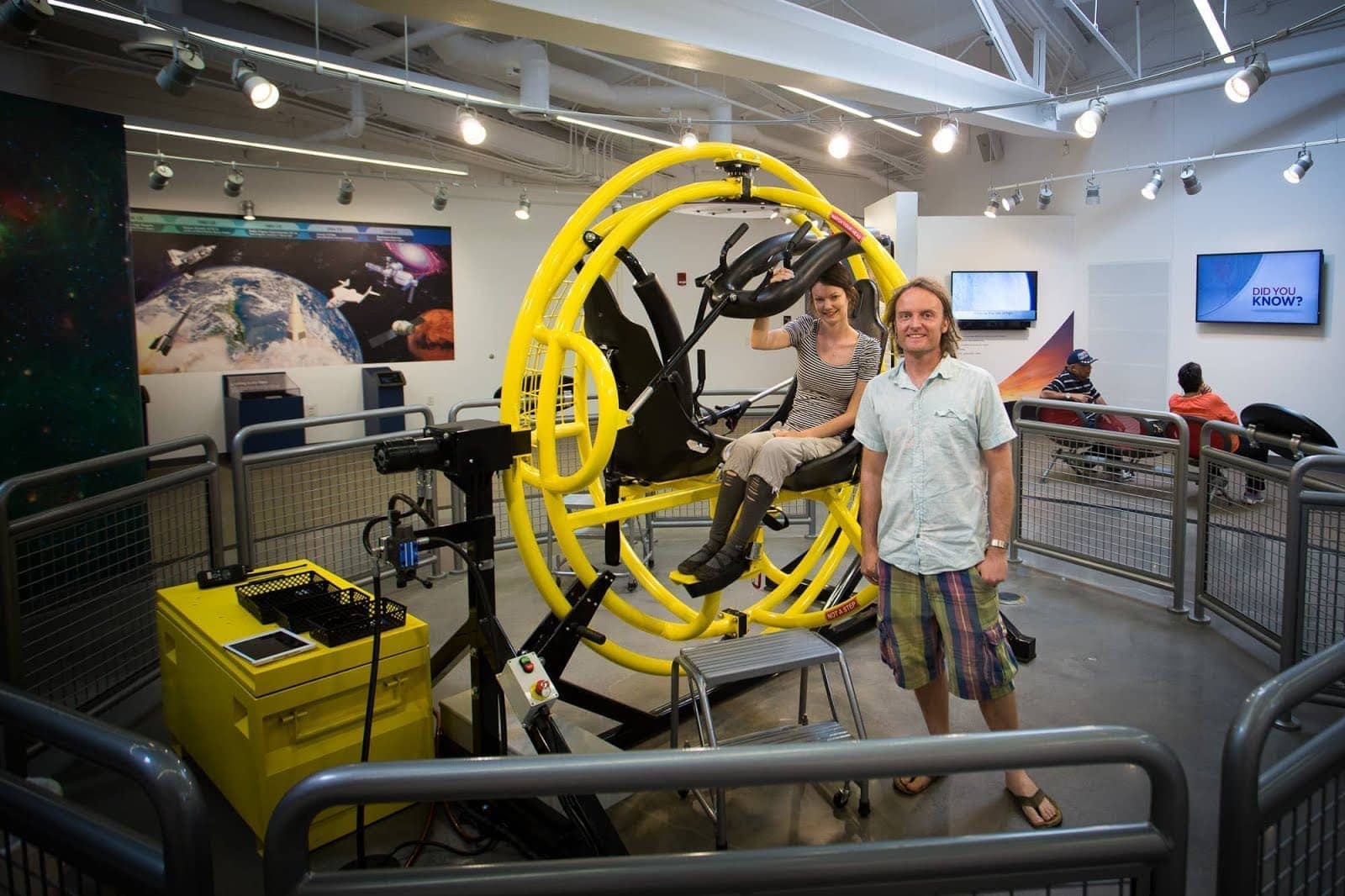
Well, that was a lot to write about space travel and space tourism! We’re not quite there yet, but with the pace of developments I see no reason why, in the coming years and decades, that I won’t finally be able to realise my dream of heading up into space for real. Let me know in the comments if heading into space is a dream of yours!
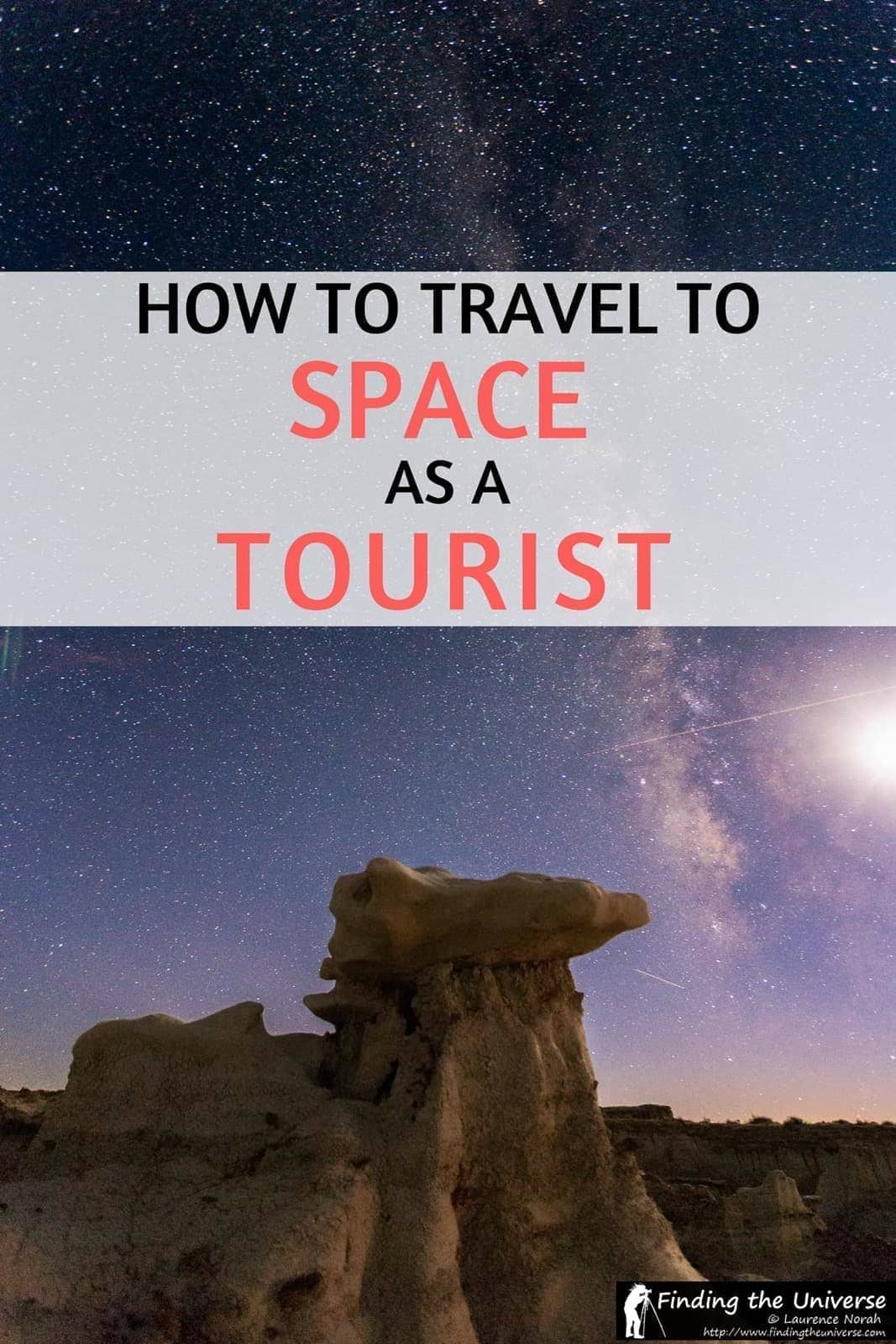
Enjoyed this post? Why not share it!
There are 4 comments on this post
Please scroll to the end to leave a comment
Lynn Magnuson says
17th February 2024 at 8:16 am
Traveling into space is something I’ve wanted to do ever since I was a child. I remember sitting in class and I think it was the third grade and watching Alan Shepard blast off. I knew at that point that someday I wanted to do the same thing. It hasn’t happened yet, but as time goes by the chance to do so, becomes more and more a possibility. I hope someday I do get the chance.
I love your article. Very well written and very informative. Keep up the great writing. That’s another thing I share a passion for. Writing
Laurence Norah says
20th February 2024 at 1:45 am
I’m right there with you! I really hope you get the chance to get into space some day soon. It’s definitely getting closer as a possibility 🙂
Safe travels, be they earthbound or not!
roshmand says
2nd July 2023 at 6:57 pm
amazing poat. thanks
4th July 2023 at 9:39 am
thank you very much 🙂
Leave a Reply Cancel reply
Your email address will not be published. Required fields are marked *
Let me know when there's a reply to my comment (just replies to your comment, no other e-mails, we promise!)
Subscribe to our monthly Newsletter where we share our latest travel news and tips. This also makes you eligible to enter our monthly giveaways!
We only ask for your e-mail so we can verify you are human and if requested notify you of a reply. To do this, we store your data as outlined in our privacy policy . Your e-mail will not be published or used for any other reason other than those outlined above.
- Share full article
Advertisement
Supported by
student opinion
Do You Want to Travel in Space?
A 29-year-old cancer survivor is set to become the youngest American to travel to orbit. Have you ever dreamed of taking such a journey?

By John Otis
Students in U.S. high schools can get free digital access to The New York Times until Sept. 1, 2021.
Have you ever dreamed of becoming an astronaut — or traveling to outer space? What’s so appealing about leaving Earth?
How realistic are such aspirations?
One “ordinary citizen” was recently chosen to be a passenger aboard the SpaceX Falcon 9 rocket. Kenneth Chang writes about Hayley Arceneaux, a 29-year-old cancer survivor who recently learned that she had been chosen to join a crewed mission to orbit the Earth, in “ She Beat Cancer at 10. Now She’s Set to Be the Youngest American in Space .” Here’s an excerpt:
Ms. Arceneaux, a physician assistant at St. Jude Children’s Research Hospital in Memphis, will be one of four people on a SpaceX Falcon 9 rocket lifting off from Florida. Scheduled to launch late this year, it is to be the first crewed mission to circle Earth in which no one on board is a professional astronaut. “I did ask, ‘Am I going to get a passport stamp for going to space?’” Ms. Arceneaux said. “But I don’t think I’m going to. So I’m just going to draw a star and the moon in one of my passports.” This adventure is spearheaded by Jared Isaacman, a 38-year-old billionaire who announced in January that he had bought the rocket launch from SpaceX, the space company started by Elon Musk. Mr. Isaacman said at the time that he wanted the mission to be more than a jaunt for the superwealthy, and that he had given two of the four available seats to St. Jude.
The article goes on to explain the significance of this space journey:
Ms. Arceneaux could become the youngest American ever to travel to orbit. She will also be the first person with a prosthetic body part to go to space. She was a patient at St. Jude nearly 20 years ago, and as part of her treatment for bone cancer, metal rods replaced parts of the bones in her left leg. In the past, that would have kept her firmly on the ground, unable to meet NASA’s stringent medical standards for astronauts. But the advent of privately financed space travel has opened the final frontier to some people who were previously excluded. Dr. Michael D. Neel, the orthopedic surgeon who installed Ms. Arceneaux’s prosthesis, says that although having artificial leg bones means that she can’t play contact sports on Earth, they should not limit her on this SpaceX trek. “It shows us that the sky is not the limit,” Dr. Neel said. “It’s the sky and beyond. I think that’s the real point of all this, that she has very little limitations as far as what you can do. Unless you’re going to play football up there.”
Students, read the entire article , then tell us:
Have you ever dreamed of becoming an astronaut or working for NASA? Are you fascinated by outer space or space travel? Why do you think so many of us are captivated by space and its mysteries?
If you had an opportunity to go anywhere in space, where would you visit? The moon? Mars? Another planet? Would you want to venture beyond our solar system? Why?
If you could be part of the SpaceX Falcon 9 flight, what would thrill you the most about the ride? Making history? Experiencing weightlessness? Viewing Earth from orbit? Something else?
In the article, Ms. Arceneaux said that she wanted to give hope to those battling serious illness: “They’ll be able to see a cancer survivor in space, especially one that has gone through the same thing that they have. It’s going to help them visualize their future.” Are you inspired by Ms. Arceneaux? Have you been through hardships that have inspired others?
If you don’t want to journey to outer space, where would you prefer to go instead?
About Student Opinion
• Find all of our Student Opinion questions in this column . • Have an idea for a Student Opinion question? Tell us about it . • Learn more about how to use our free daily writing prompts for remote learning .
Students 13 and older in the United States and the United Kingdom, and 16 and older elsewhere, are invited to comment. All comments are moderated by the Learning Network staff, but please keep in mind that once your comment is accepted, it will be made public.
- Virtual Events
- BBC Astronomy
- How we review
- Telescope mounts
- Finderscopes
- Astronomy accessories
- Top astro kit
- Astronomy for beginners
- Astronomy DIY
- Buyers' guides
- Online Planetarium
- Astronomy news
- Astrophoto guides
- Send us your images
Want to go to space? Here's how you can
Have you ever wanted to travel into space? It's theoretically possible. Here are the various options, and how much it will cost you.
Ezzy Pearson
Have you ever wanted to go to space? Is it your dream to leave Earth behind and travel the cosmos? These days getting to space is becoming more of a reality for non-astronauts, even if the cost of doing so remains astronomical.
Go back 60 years and the idea of anyone going into space was little more than a dream. Today, more than 550 people have achieved this ambition, journeying beyond our planet and into low Earth orbit.
For decades it’s been governments footing the bill for training and flying astronauts, but that could all be about to change as space tourism becomes more of a reality over the coming years.
Private spaceflight is on the verge of being able to regularly carry private passengers into space, allowing anyone who wants to travel to the stars to do so – provided they have the money, that is.
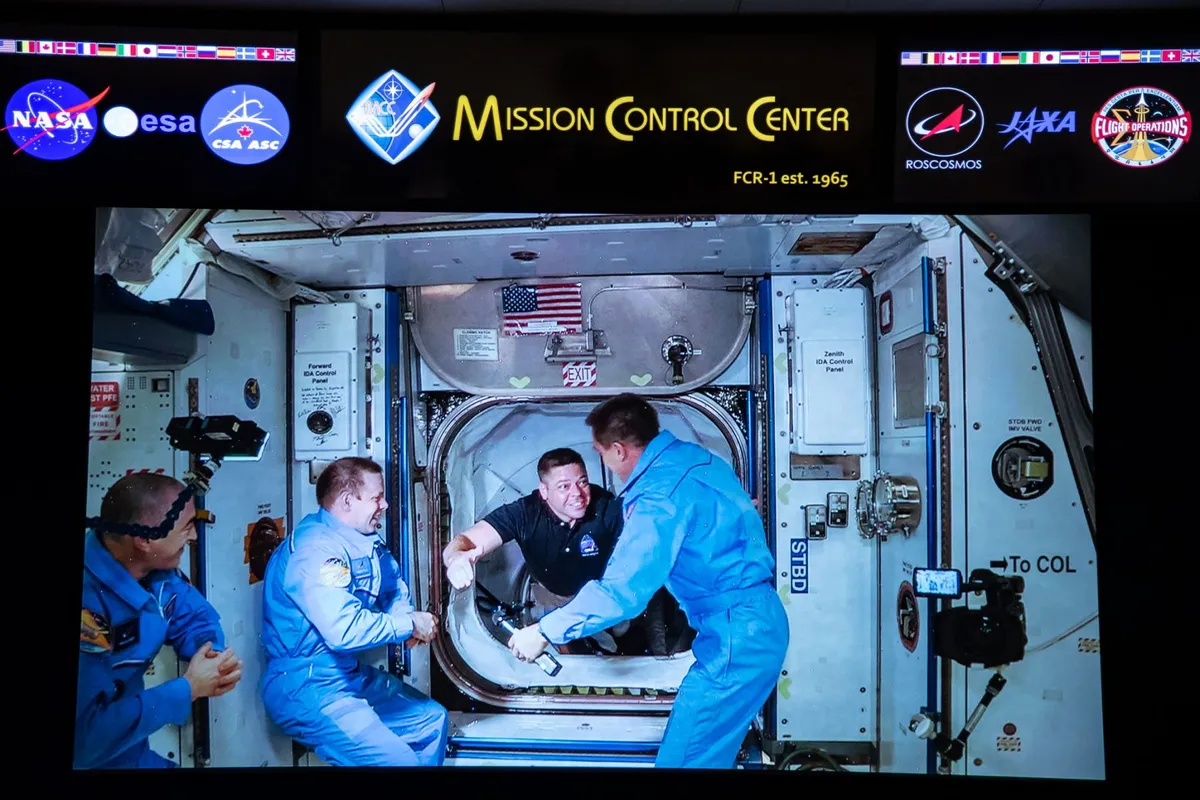
What companies are sending tourists to space?
The private company closest to sending people into space is SpaceX. In fact, it has already done so, having completed the first successful crewed flight of the Crew Dragon modules in August.
Rival Boeing isn’t far behind and hopes to have its own Starliner spacecraft certified for human spaceflight by the end of 2021.
Both companies are remaining tight-lipped about their fees, but a 2015 NASA estimate put the cost of a round trip ticket to the International Space Station (ISS) on a Crew Dragon or Starliner module at around $58 million.
Though both companies built the spacecraft to ferry astronauts to and from the ISS, they also plan on selling flights to whoever can afford it, be they academic institutions hoping to conduct research in orbit or deep-pocketed individuals wanting to take the ultimate trip.
Getting into space: your options
Visit the international space station.
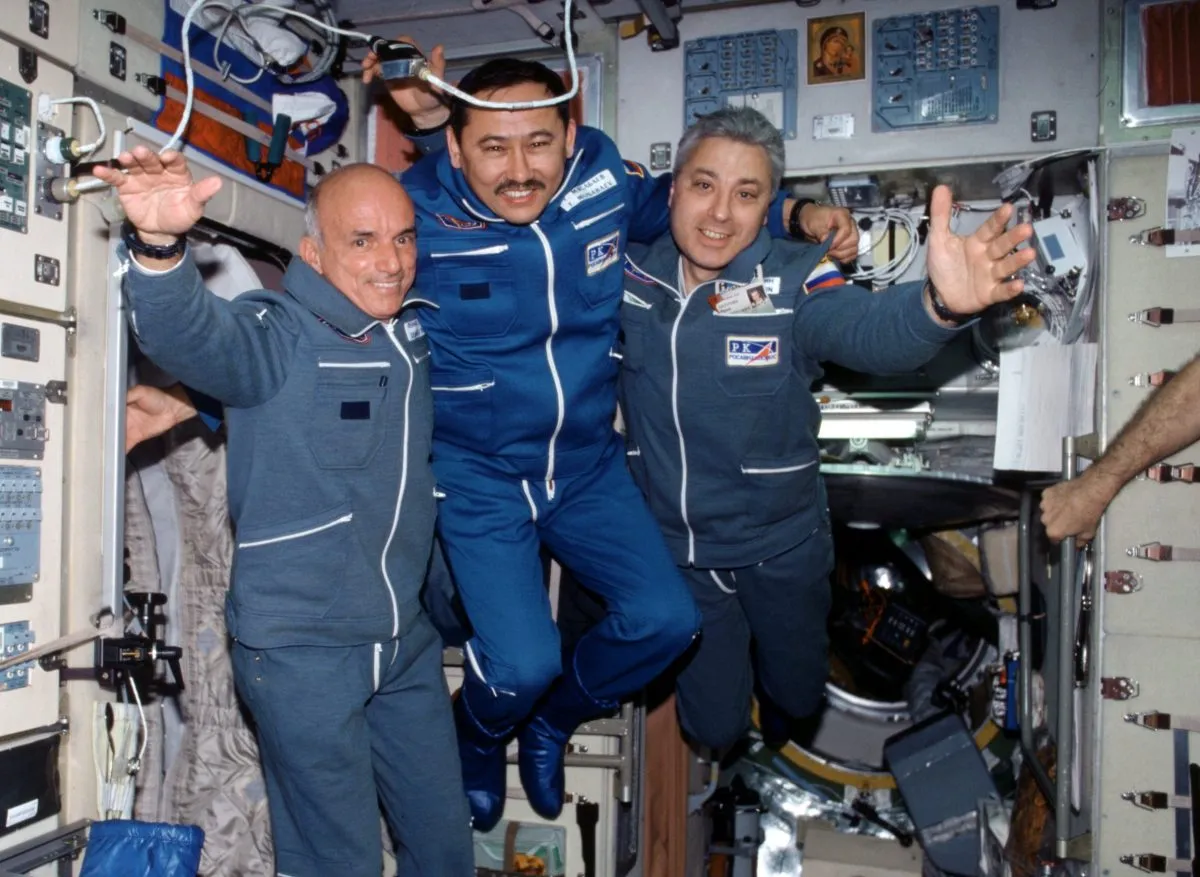
NASA is already anticipating the coming boom of private passengers, announcing back in March that the American space manufacturer Axiom would be building an ISS module to accommodate them.
Axiom is also helping to facilitate flights to the station. Their first, which will take 3 private astronauts to the International Space Station , is planned for mid 2021. There’s still a seat going spare but you’ll have to pay the $55 million price tag on the ticket.
If your budget can stretch to the billions rather than the millions, however, you can always approach private space exploration companies direct for something a little more bespoke than an off-the-shelf flight.
Take a trip around the Moon
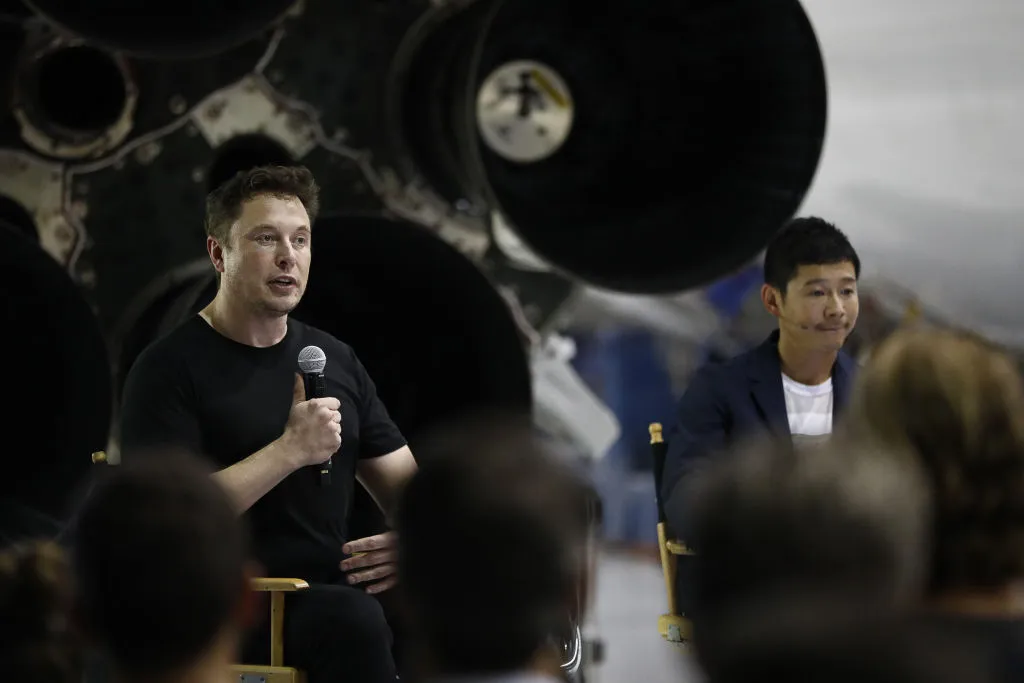
Space X is currently working with Japanese billionaire Yusaku Maezawa on such a mission, called #dearmoon , which will send 6 to 8 passengers on a flight around the Moon.
Maezawa is even giving away his seats, but you’ll have to be a world-class artist to stand a chance of getting one; his plan is for all the passengers to create works of art attempting to convey the experience of being in space to the world.
Reach 'outer space' with Virgin Galactic
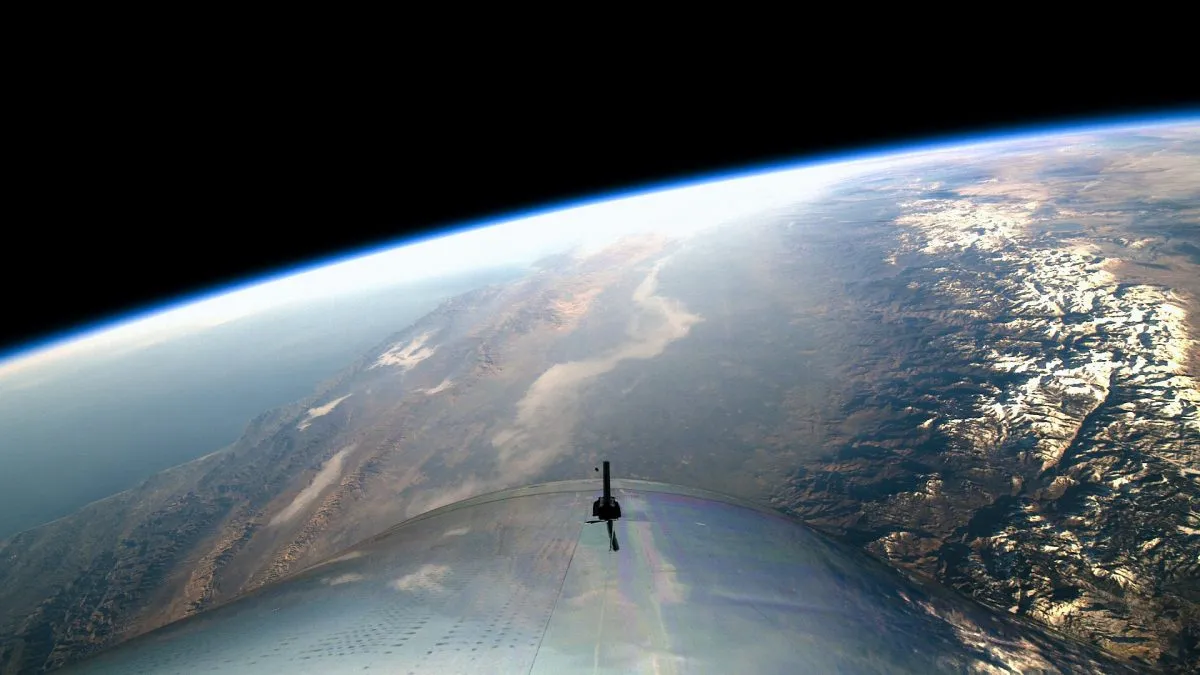
At the other end of the fee scale, relatively speaking, is the option of taking a sub-orbital flight with Virgin Galactic .
The company promises passengers three things: to cross the boundary into outer space 100km above Earth’s surface; to let them see the curvature of Earth; and at least 5 minutes of free-floating weightlessness.
After years of postponements, founder Richard Branson has announced that he hopes to take his own first flight in early 2021, before working down the list of 600 people who have purchased a ticket at the early-bird price of $250,000.
Become an astronaut
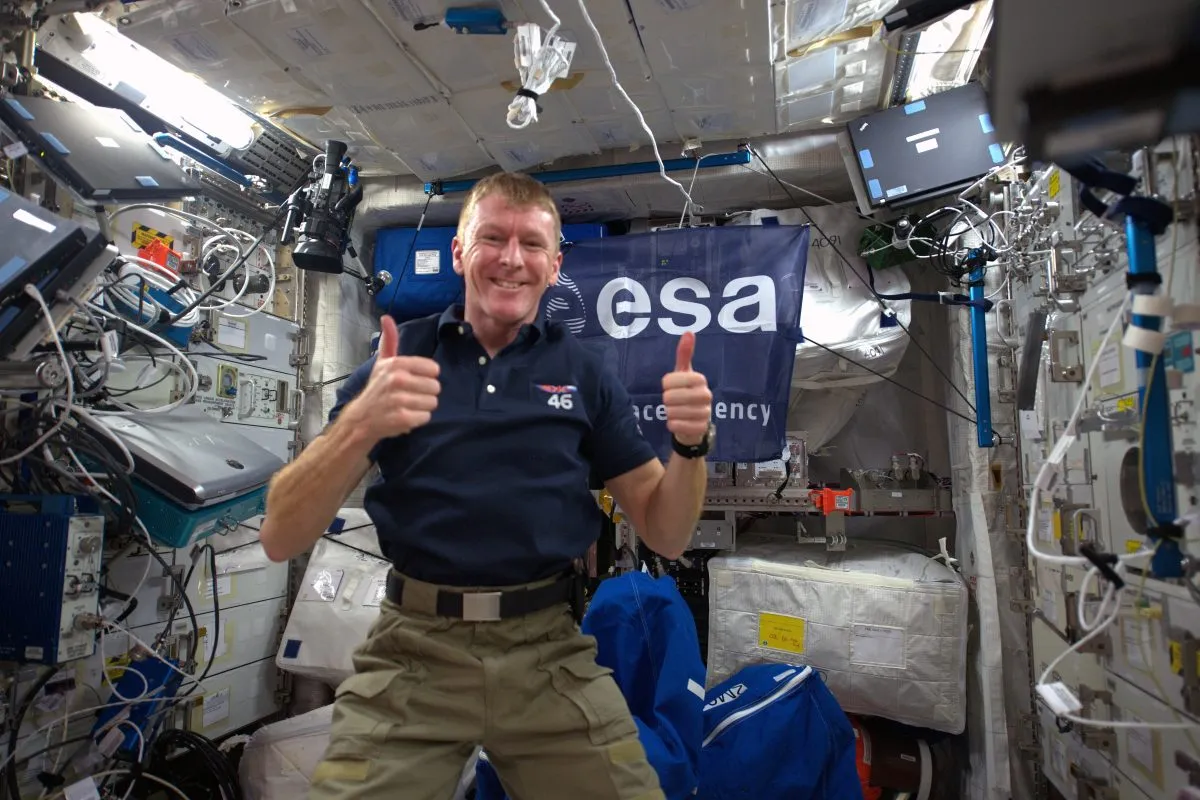
While it’s nice to daydream, the reality is that most of us could never afford even the 6-figure option. There is one more possibility, however: become a professional astronaut.
All you need is excellent physical health; a masters in a physical science, engineering or medicine; several years of work experience; a decorated military history; or over 1,000 hours of flight experience. Easy, eh?
If you’re applying to NASA, who select around a dozen candidates every few years, then you’ll need to have US citizenship. For more on this, read the guide to becoming a NASA astronaut .
For Europeans there might be a bit more of a fight, as the European Space Agency (ESA) hasn’t selected a new class of astronauts since 2008, when 8,414 people applied for just 6 places.
Rumour has it that the agency will be sending out a call for new astronauts in 2021, so it might be time to start working on the CV.For more on this, read the ESA guide to becoming an astronaut .
Which non-astronauts have been to space?
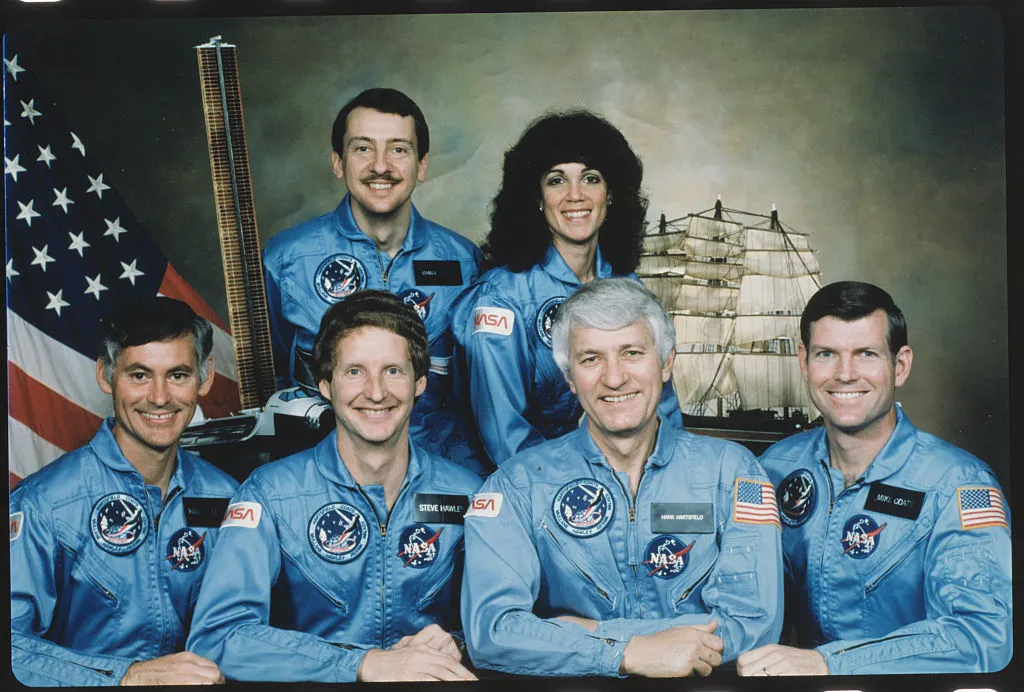
In 1984, American citizen Charles D Walker became the first non-government sponsored person to reach space.His employer, aerospace company McDonnell Douglas, paid for him to fly on three Shuttle missions.
NASA charged just $40,000 per flight, though the company spent around $20 million of its own money training him.
Most private spaceflights, however, were not flown on NASA's Space Shuttle but on the Russian Soyuz .
In the 1990s, the Soviet Union’s wider financial problems left its space agency with a shortfall in its ledger, making it more than willing to accommodate paying customers.
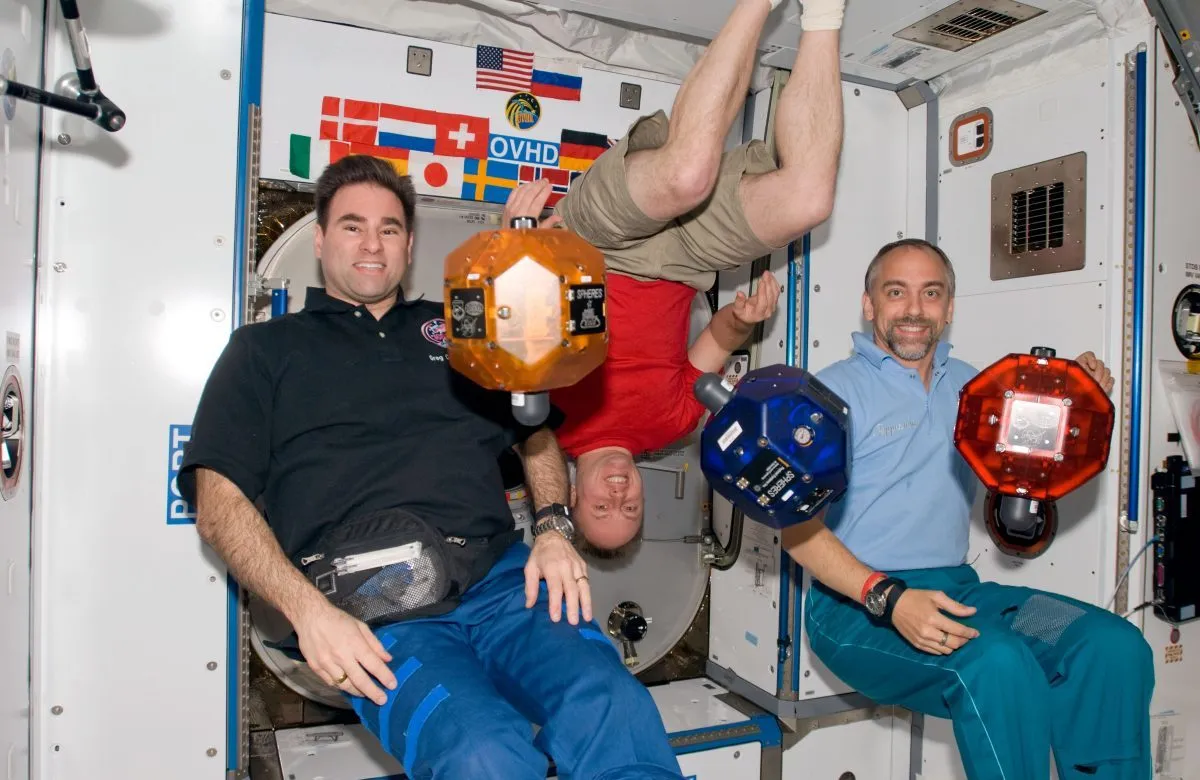
In 1990, a Japanese broadcasting company paid for reporter Toyohiro Akiyama to fly to the Mir space station, and a few years later Helen Sharman had her flight paid for by various sponsors, becoming the UK’s first astronaut.
In 1998, Space Adventures began working with the Russian space agency to broker future flights to the International Space Station (ISS).
Since then, the company has trained and flown seven individuals, including the second person to wear the British flag in space, gaming entrepreneur Richard Garriott.
In all these flights, the individuals did more than just float around, looking at the view.Instead, they helped to conduct research and experiments, or put on outreach events to educate those back on Earth.
Ezzy Pearson is BBC Sky at Night Magazine's News Editor. This guide originally appeared in the November 2020 issue of BBC Sky at Night Magazine .
Share this article

Science journalist

- Terms and conditions
- Manage preferences
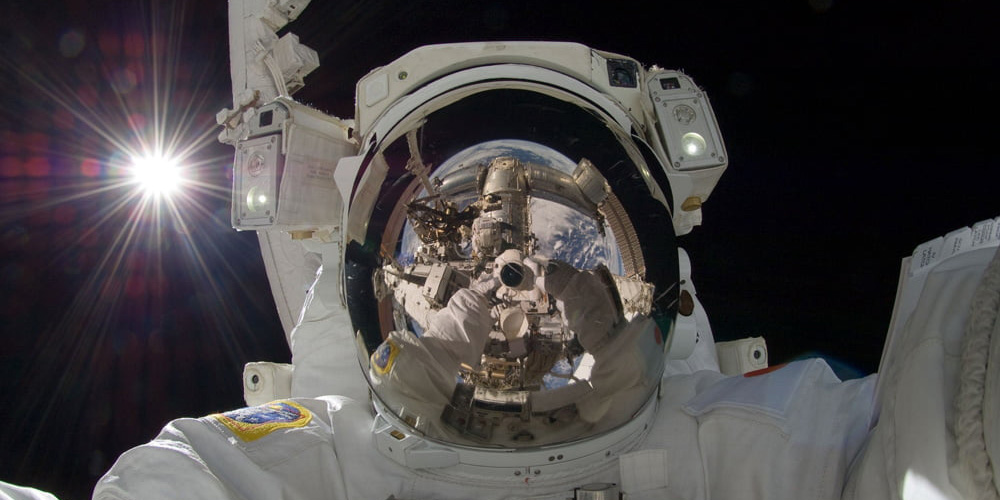
IELTS Speaking topic: Space travel
Do you want to travel in the outer space? What would you do if you had that opportunity? Do you think it’s necessary to see other planets? When was the latest time you went travelling? Do you like to travel by air?
Yes, I bet it would be very funny to travel around the outer space. Considering the current technology development and expensive cost, space travel would be memorable experience in my life.
I would like to do something that can be don on earth. I will try to fly in the air like birds, or jump long distance like a grasshopper, or even I could be the first one that set foot on the Mars.
Well, I don’t think it is very necessary to discover the other planets but humans are so curious and we are hungry for knowledge. So I believe humans will not stop seeing the other space until they find what the universe really is.
Last time, I travelled to Brisbane with my family for a 5-day winter holiday. It was very comfortable compared with other places in winter. Besides, we went hiking in the nearby forest park. It was a wonderful place full of memories and happy moments.
Not really. Travelling by air usually means long distance trip. So sitting in the limited room for hours and doing nothing but sleeping is really boring and tiring. I sometimes prefer to travel by train or drive by myself.
No Comments
This post has 0 comments, leave a reply cancel reply.
Your email address will not be published. Required fields are marked *
Email me when someone replies to my comment.

IELTS Speaking topic: A dream you have had
IELTS Speaking topic: Social network

IELTS Speaking topic: Rainy days
- Search Please fill out this field.
- Manage Your Subscription
- Give a Gift Subscription
- Newsletters
- Sweepstakes
- Space Travel + Astronomy
It was mere decades ago that the idea of space tourism — not just for astronauts and scientific research but for recreation — was the stuff of science fiction. Today, space travel for the average person is no longer a matter of "if" but "when," thanks to the imaginations of self-funded business magnates with an eye on the sky. Space is the tourism industry’s next frontier, and Travel + Leisure is on the pulse of the technological advancements made toward it becoming a reality. While astronomic prices may put it out of most people's reach for years to come, the rest of us can gaze up at other worlds from our backyards or chase dazzling celestial phenomena like the northern lights.
- Lost Cultures: Living Legacies
- America's Favorite Places
- Attractions
- Better Together
- Destination Videos
- Holiday Travel
- Intelligent Traveler
- Let's Go Together
- Adventure Travel
- All-Inclusive Vacations
- Backpacking Trips
- Beach Vacations
- Budget Travel
- Bus and Train Travel
- Business Travel
- City Vacations
- Country Trips
- Culinary Vacations
- Destination Weddings
- Disney Vacations
- Fall Vacations
- Family Vacations
- Get Outside
- Global Hot Spots
- Golf Vacations
- Green Travel
- Group Travel
- Honeymoon Destinations
- Island Vacations
- LGBT Travel
- Luxury Travel
- National Parks
- Nature Travel
- New World Wonders
- Romantic Getaways
- Senior Travel
- Solo Travel
- Spa Vacations
- Spring Vacations
- Summer Vacations
- Volunteer + Charity
- Walking Tours
- Winter Vacations
- Yoga + Wellness
- Weekend Getaways
- Like a Local
clock This article was published more than 2 years ago
Everything you need to know about going to space
A look at who can fly, what it costs and what sort of training is involved for space tourists.

Follow The Post’s coverage of space
The latest: Rockets aren’t enough. Jeff Bezos and the growing commercial space industry now want to build space stations.
FAQ: Everything you need to know about modern space travel
Investors are placing big bets on a growing space economy. But can they reach orbit?
Inside Blue Origin: Employees say toxic, dysfunctional ‘bro culture’ led to mistrust, low morale and delays at Jeff Bezos’s space venture
Astronomers using NASA telescope find signs of a planet beyond our galaxy
Moonrise: Listen to The Post’s podcast about the real origin story behind America’s decision to go to the moon
How you too can experience weightlessness without having to go to space


Everything you need to know about space tourism
Posted: May 9, 2024 | Last updated: May 9, 2024
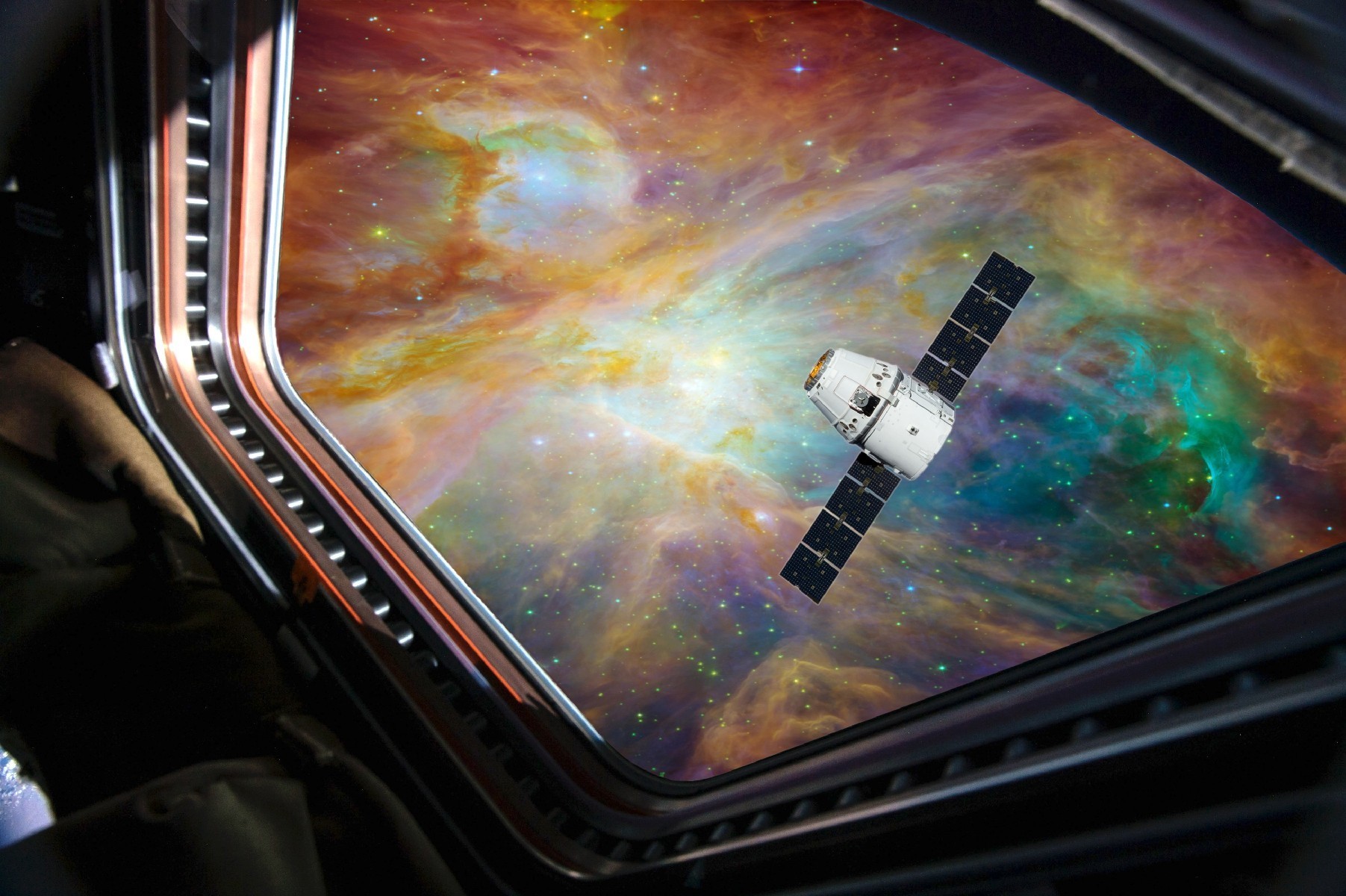
Between floating in weightlessness, witnessing 16 sunrises a day and gazing into the infinite void, space travel sure sounds like an out-of-this-world experience. And now, it’s no longer a thing of the future.
That’s right, soon interstellar awe will be open to (almost) anyone, as billionaires Richard Branson, Jeff Bezos, and Elon Musk are pushing the space tourism industry to a higher orbit.
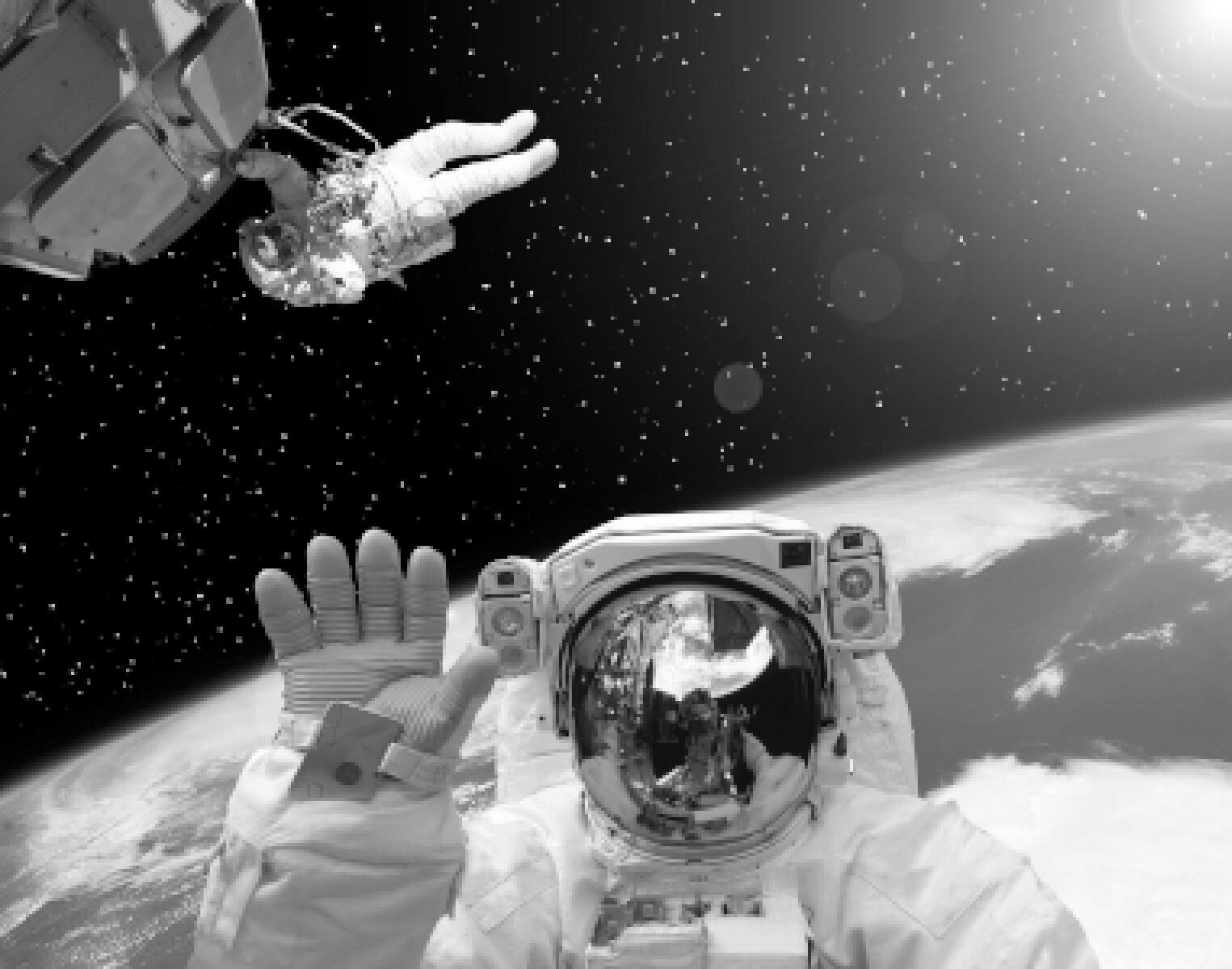
What is space tourism?
Well, it’s almost like regular tourism: travel for recreational and leisure purposes… but in outer space. Some organizations like the Commercial Spaceflight Federation and the Citizens in Space project prefer to use the terms “personal spaceflight” or “citizen space exploration,” though.
In a nutshell, it’s space travel for non-astronauts.

Who can travel to space?
Anyone ! Well, that is, anyone with enough money. No need to have any previous science qualifications or NASA training, especially since a trained crew will escort tourists on their galactic journey.
According to Virgin Galactic, future space tourists will be between 10 and 90 years old, and come from diverse professional and cultural backgrounds.
The only thing you need? The desire to explore the universe!
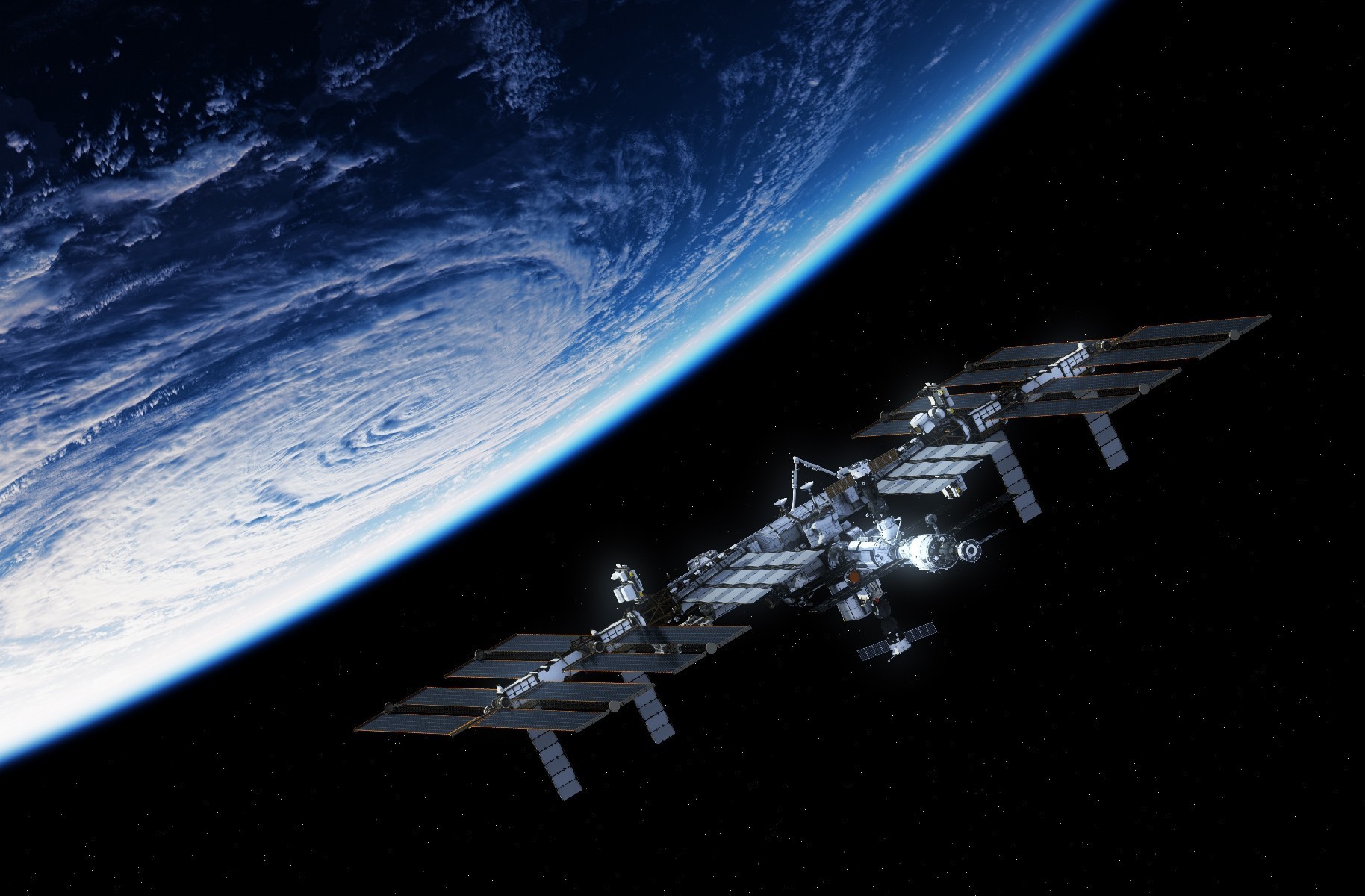
What is orbital travel?
The main difference between orbital and suborbital flights lies in the trajectory and speed of the vessels.
To go into orbit, a rocket or spaceship needs to follow a path that goes around the Earth at the very fast minimum speed of 7.7 kilometres (4.8 miles) per second, in order to keep circling and never fall back down.
It allows astronauts and travellers to stay in space for extended periods of time, hence it is for now the preferred type of flight.
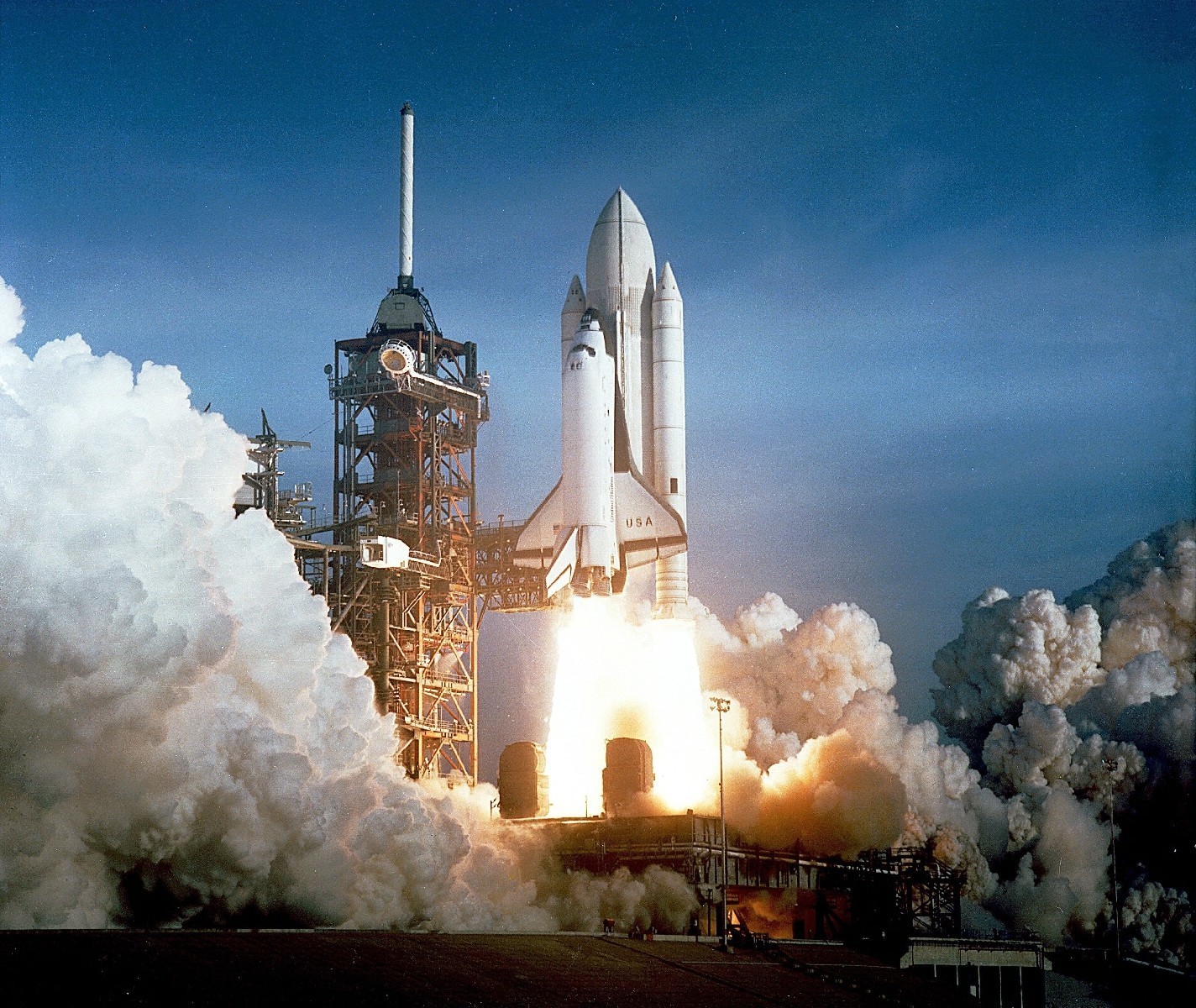
What is suborbital travel?
A suborbital flight , which is what Branson and Bezos did, “just” requires enough energy to blast off to space and then naturally fall back to Earth, making a huge arc.
It requires less energy and is less costly than orbital flights, thus opening doors for relatively affordable space tourism in the future.
Passengers would experience up to six minutes of weightlessness and a grandiose view.
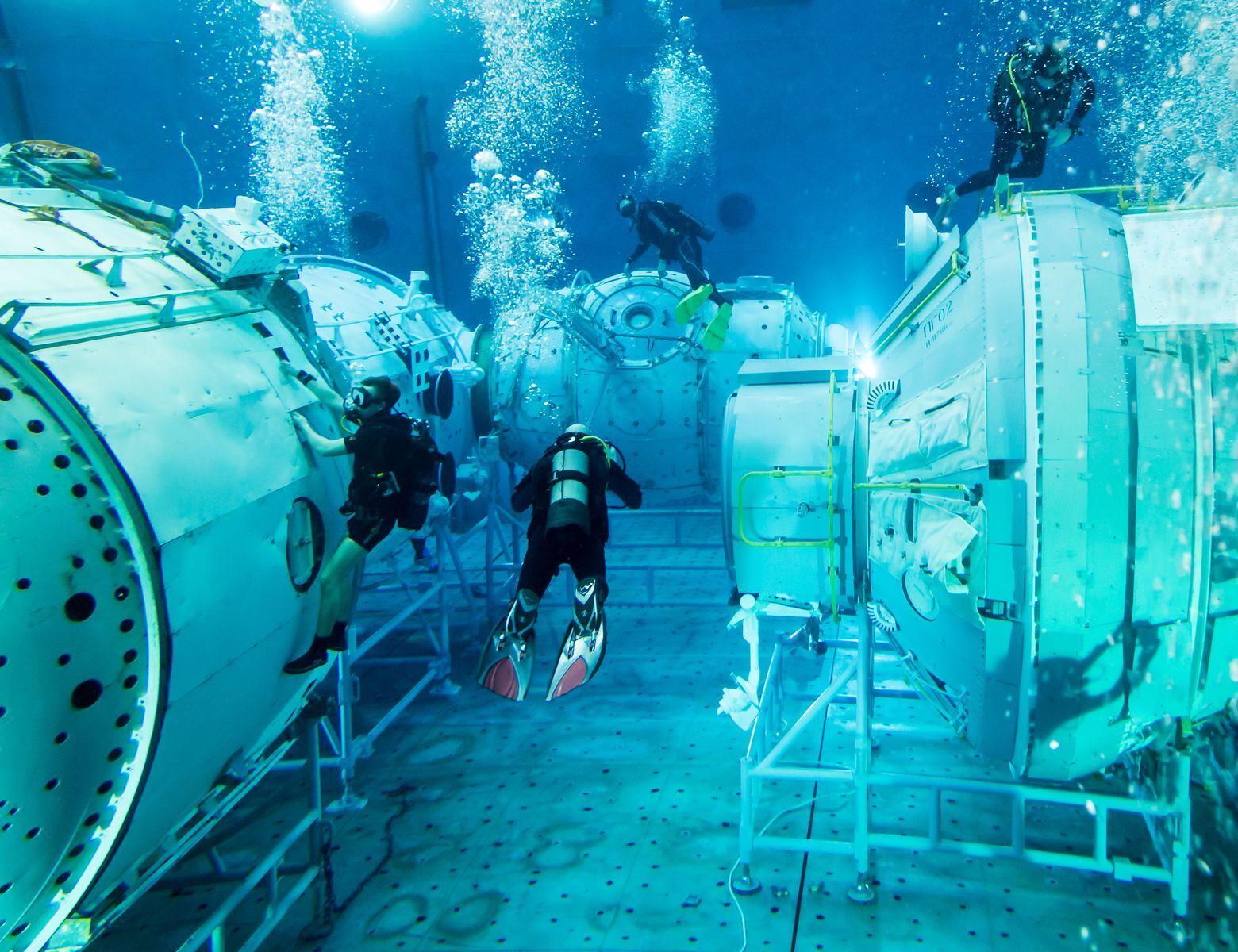
How do you prepare?
Although Virgin Galactic doesn’t explicitly list its physical requirements, they did say astronauts would have to pass certain medical checkups and training programs. Blue Origin, on the other hand, has said that training for suborbital trips will only take a day.
And of course, any space tourist will also have to pass a series of thorough tests to determine whether they’re fit to fly up there.
Once in space, you may have to perform small bouts of exercise to prevent muscle wasting , which takes place after just seven days.
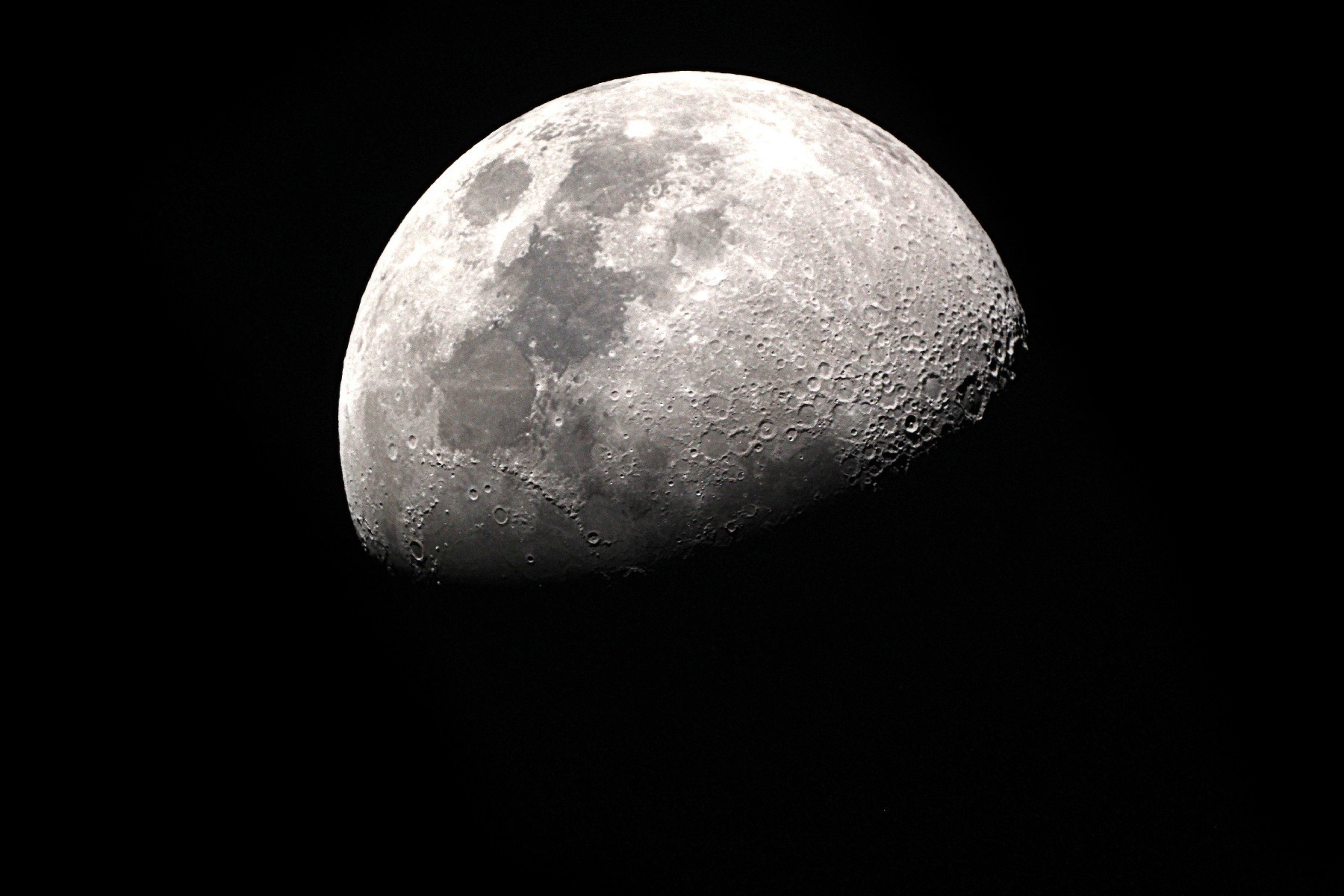
What is lunar tourism?
As its name hints, lunar tourism is the project of sending paying travellers to the moon. The first one could happen as soon as 2023, and would consist of a loop flight.
But three types of lunar tourism could be available in the near future: circumlunar trajectory, lunar orbit, and even lunar landing.
How cool would it be to say to someone, upon returning from a lunar vacation, “I’ve literally loved you to the moon and back”?

Where does space tourism take place?
Admittedly, space is a vast place. So where exactly would tourists go ?
First, any space travel begins with the Kármán line , which lies at 100 kilometres (62 miles) above sea level and is commonly accepted as the limit between Earth’s atmosphere and outer space.
Then, there are several options: orbital, suborbital, and lunar space tourism.
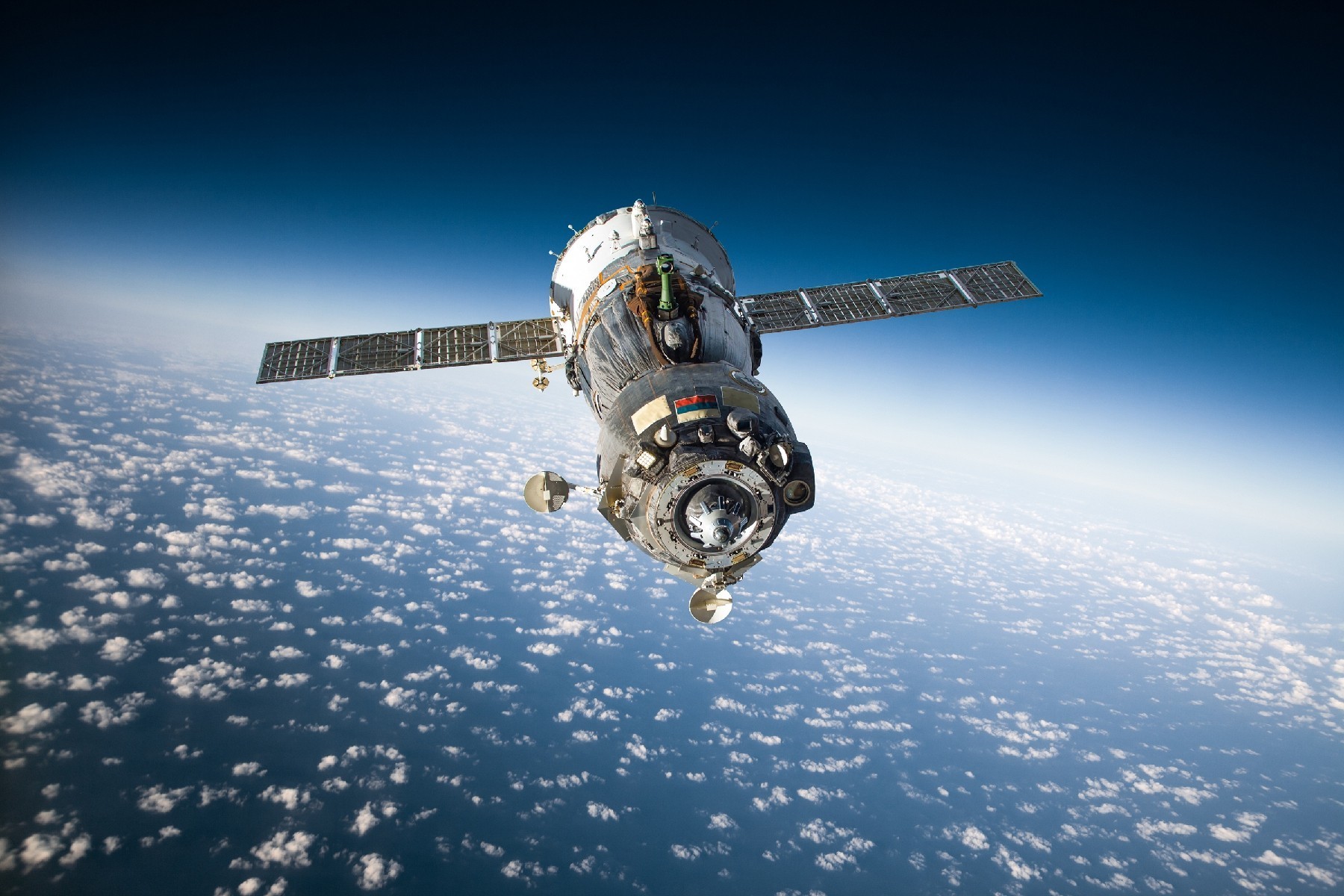
Have touristic space travels already occurred?
Yes! From 2001 to 2009, the Russian space agency and the U.S.-based space tourism company Space Adventures took seven (very wealthy) members of the public for several orbital space travels to the International Space Station.
The flights took place aboard the famous spacecraft Soyuz but stopped in 2010, since the crew of actual astronauts grew bigger and left no more seats available for paying space tourists.
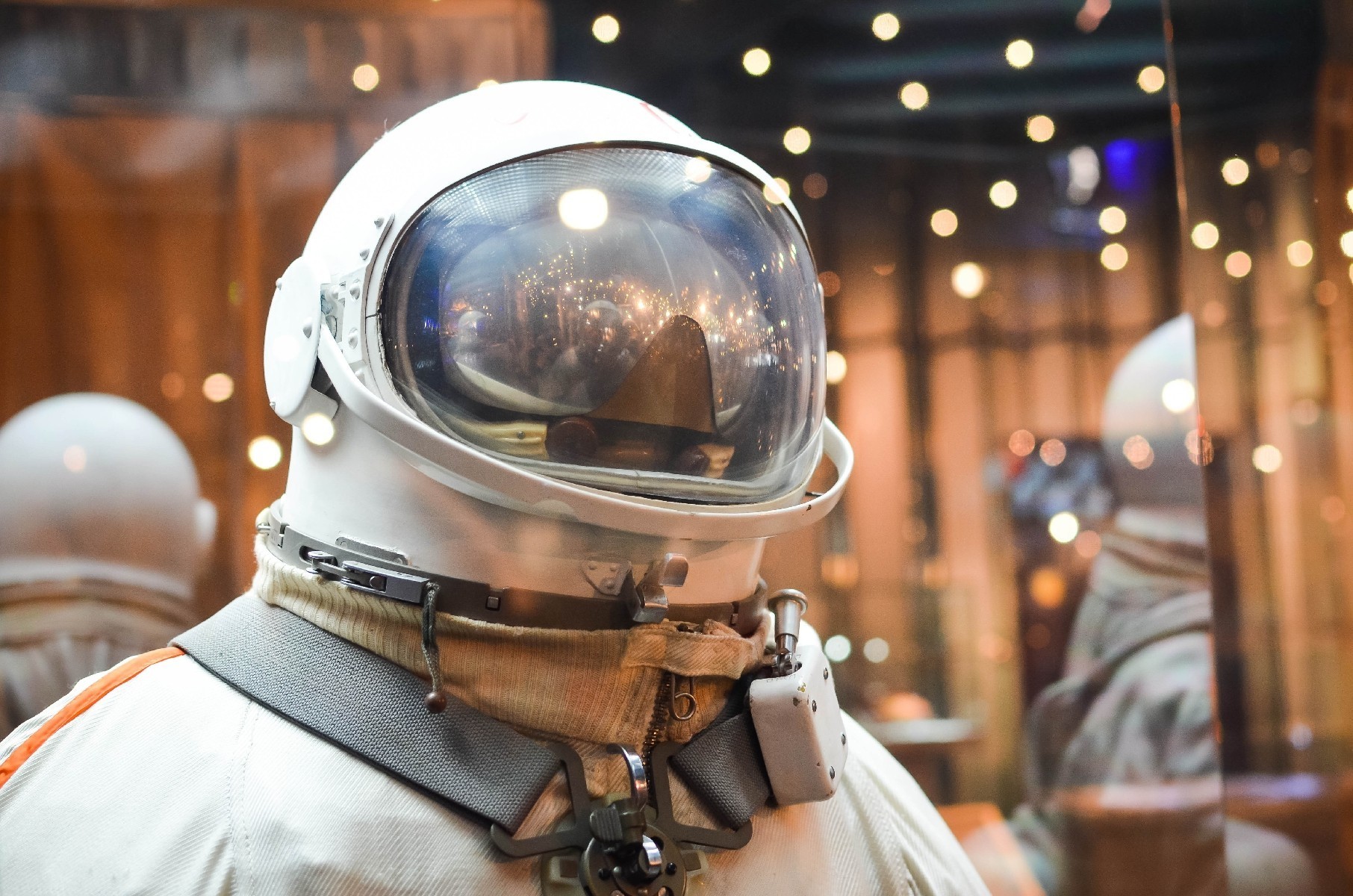
Who were the first space tourists?
The American businessman Dennis Tito became officially the first space tourist in April 2001, when he stayed for seven days on the International Space Station.
He was followed by six multimillionaire fellows from various countries: South African entrepreneur Mark Shuttleworth, American scientist Gregory Olsen, Iranian engineer Anousheh Ansari (the first female space tourist), Hungarian-American computer programmer Charles Simonyi, British video game mogul Richard Garriott, and Canadian businessman Guy Laliberté.
On July 11, 2021, billionaire Richard Branson, along with three Virgin Galactic employees and two pilots, reached an altitude of 85 kilometres (53 miles) above Earth aboard his Virgin Galactic rocket plane, the Unity. Less than 10 days later, on July 20, the world’s richest man, Amazon’s Jeff Bezos, briefly entered space on Blue Origin , his private space company’s reusable rocket. He was joined by his younger brother Mark, Dutch teenager Oliver Daemen, and Wally Funk, who, at 82 years old, became the oldest astronaut.
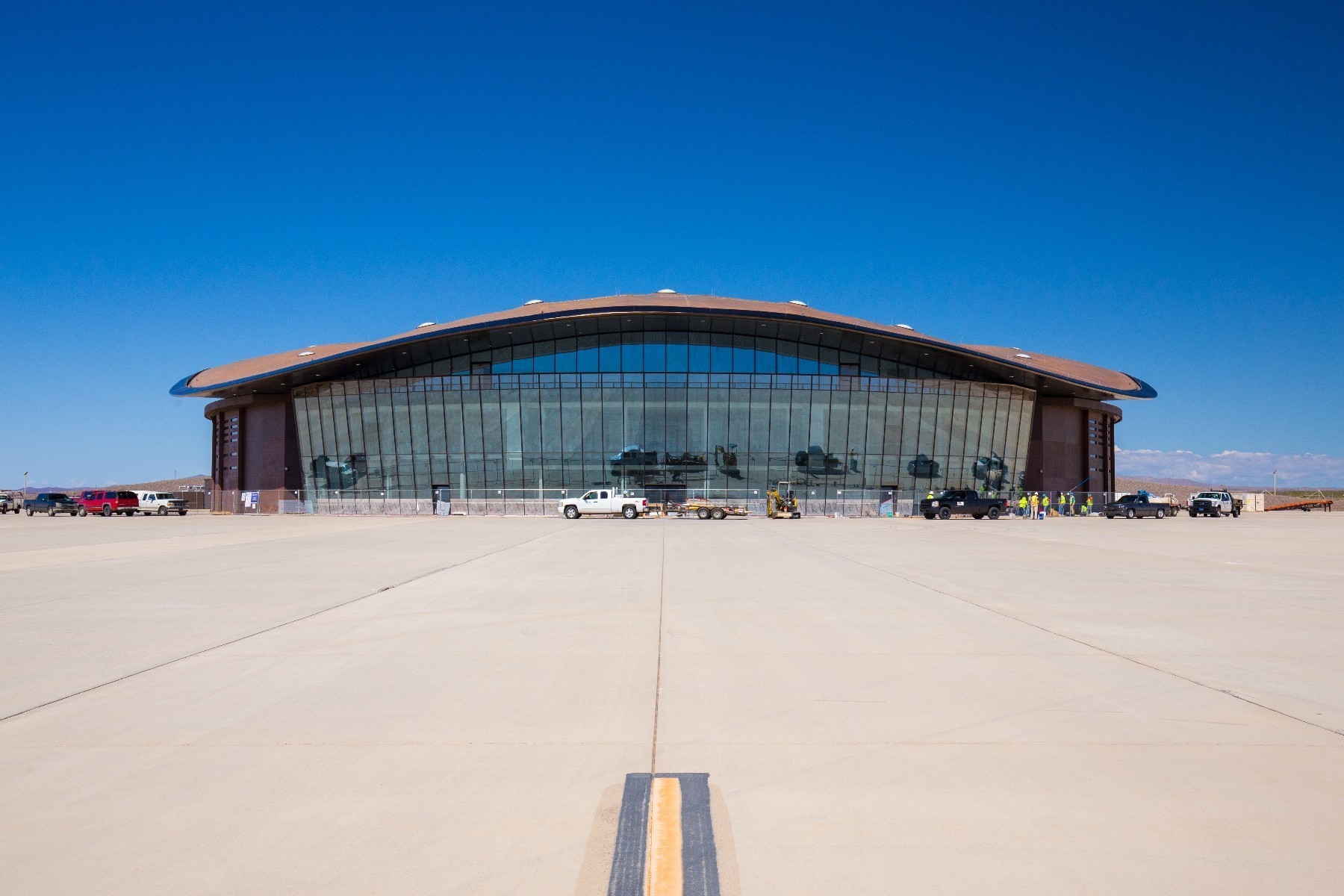
Who would be the space tourism “agencies”?
Unlike past tourism experiments, which took place aboard vessels sent off for scientific purposes, future travels will happen on private companies’ flights set up solely for space tourism.
Those pioneering aerospace companies are Richard Branson’s Virgin Galactic ; SpaceX, founded by Tesla co-founder Elon Musk ; and Blue Origin , created by Amazon founder Jeff Bezos.
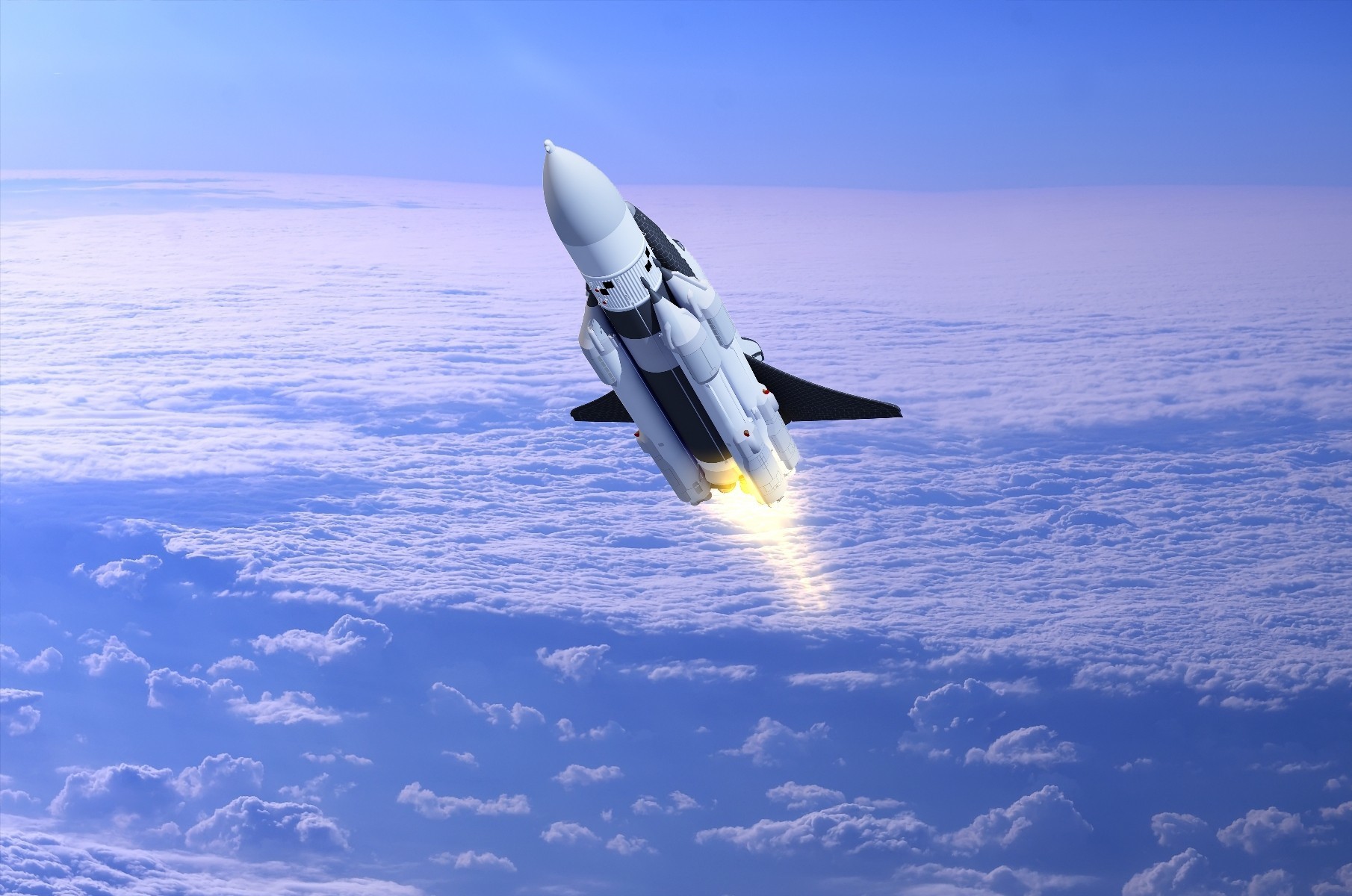
When will space tourism happen?
Sooner than you think. According to Forbes , Virgin Galactic’s successful trip means the company could start sending civilians up into space as soon as early 2022. Likewise, Blue Origin, which has a Federal Aviation Administration licence for human space travel through August 2021, could officially enter the space tourism game by early 2022.

How much will it cost?
It’s not exactly clear at the moment, but there have been some indications. For example, Virgin Galactic began selling ticket reservations for US$250,000 and sold roughly 600, before a test crash in 2014 brought sales to a halt. They’re expected to start selling tickets again in 2022, but at a much higher price.
It was reported in 2018 that seats on Bezos’s Blue Origin would also cost in the ballpark of US$200,000 to US$300,000, but that could change given how high demand is. At a recent auction, the winning bid for a seat aboard the company’s first spaceflight was a whopping US$28 million .
The bottom line is, those hoping to take a trip around the stars will either need to know someone or have hundreds of thousands (likely even millions) of dollars to spare.
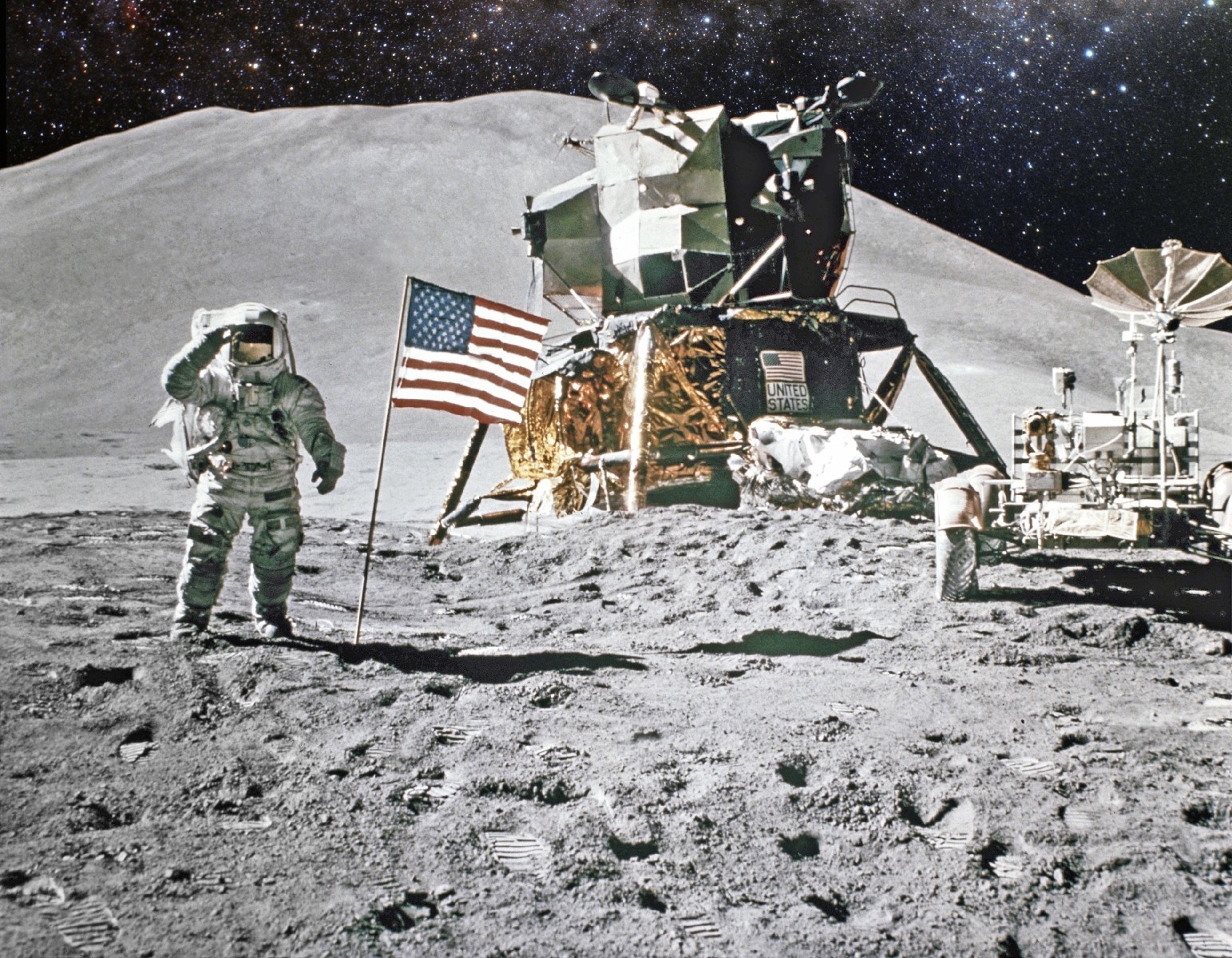
How do we get there?
The development of space tourism vehicles is still an ongoing project.
But a few options already exist, like Virgin Galactic’s spaceplanes that can carry up to eight people, or SpaceX’s Dragon spacecraft , launched by the Falcon Heavy rocket.
Blue Origin’s New Shepard looks more like a regular rocket that takes off and lands vertically, but also claims to offer the biggest windows of any spacecraft—a good selling point. It comfortably sits six people and is fully autonomous, meaning no pilot onboard.
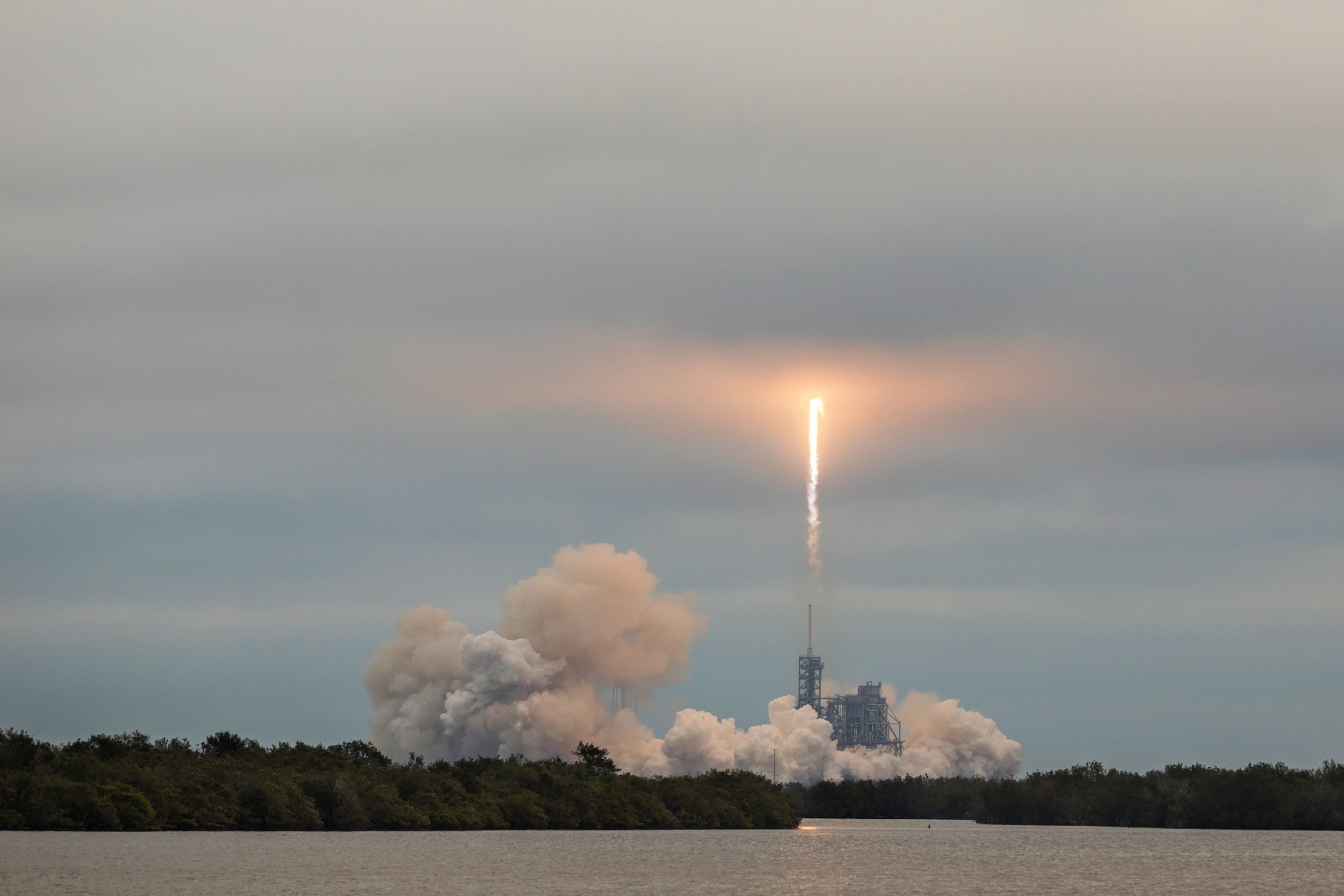
What does it feel like?
Needless to say, travelling to space is no walk in the park.
You’re eager to experience the joys of floating in microgravity? You better also get prepared to endure several physical discomforts: nausea and sea sickness, dizziness, headache, disorientation, puffy face, and bloodshot eyes.
But astronauts and previous space tourists agree that the body adjusts fairly quickly, getting used to its spatial environment in about three days.
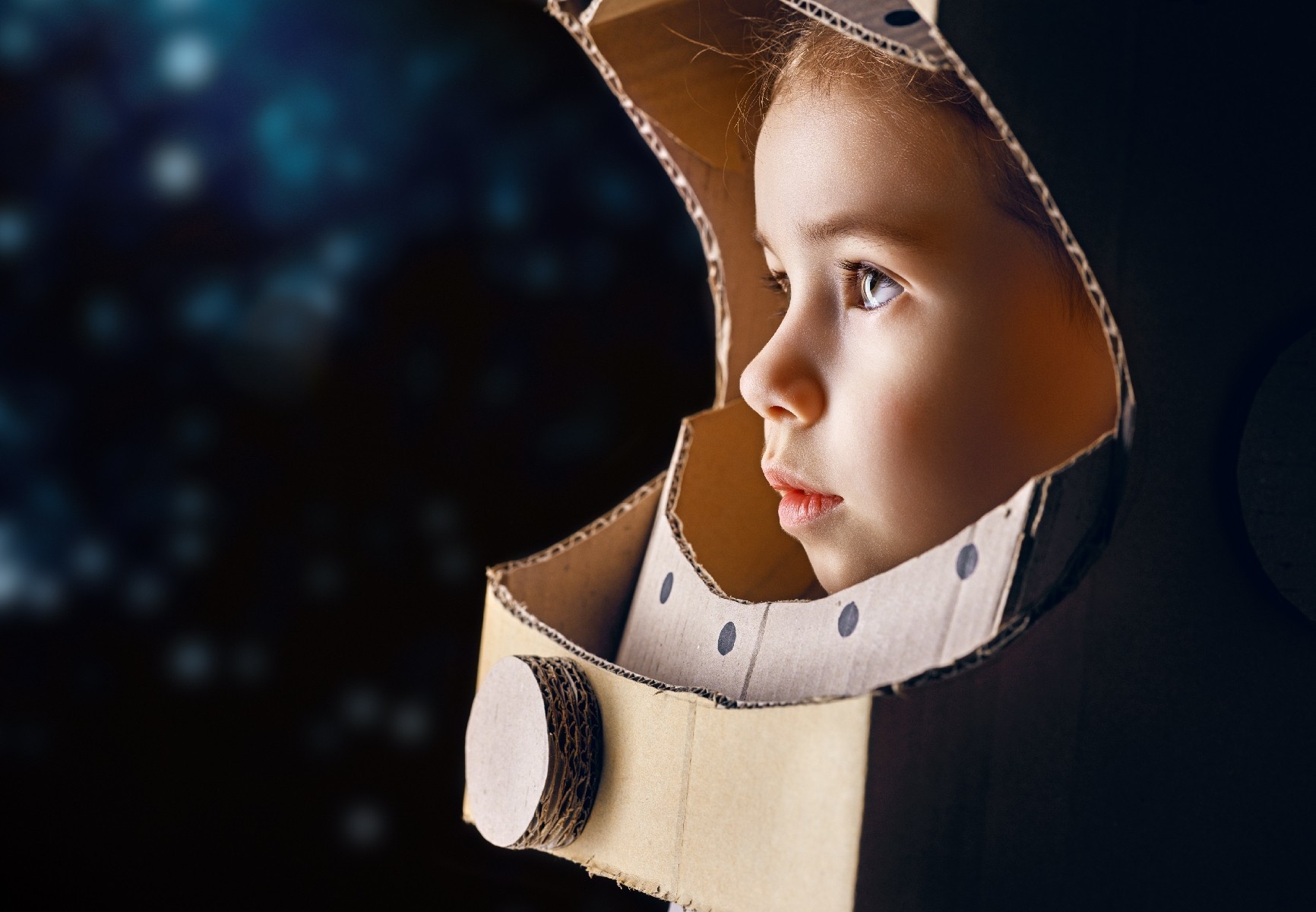
Is it safe?
Safety is a reasonable concern , considering the many hazards involved in space travel: the probability of a crash, exposure to cosmic radiation, and even unknown dangers that could emerge with this new industry. But here is the real question for any adventurer: is the thrill worth the risk?

What is the food like?
For many tourists, food is a crucial criterion for a successful vacation. But outer space is no place for gourmets, at least not yet. Interstellar tourists can expect to enjoy mostly canned, modified, and pre-packaged meals (such as space burritos and freeze-dried ice cream). But soon, thanks to NASA’s veggie farm , space tourists might be able to savour space-grown salads.
What about the accommodations?
Orbital space travel allows you to stay up there for a few days or even weeks. At that point, you might want to stretch your legs outside of the spacecraft, right? Well, in the future, space stations could be used as hotels: the Genesis inflatable habitats by Bigelow Aerospace and the Space Island Project are existing examples. Make sure to book a room with a view of planet Earth!
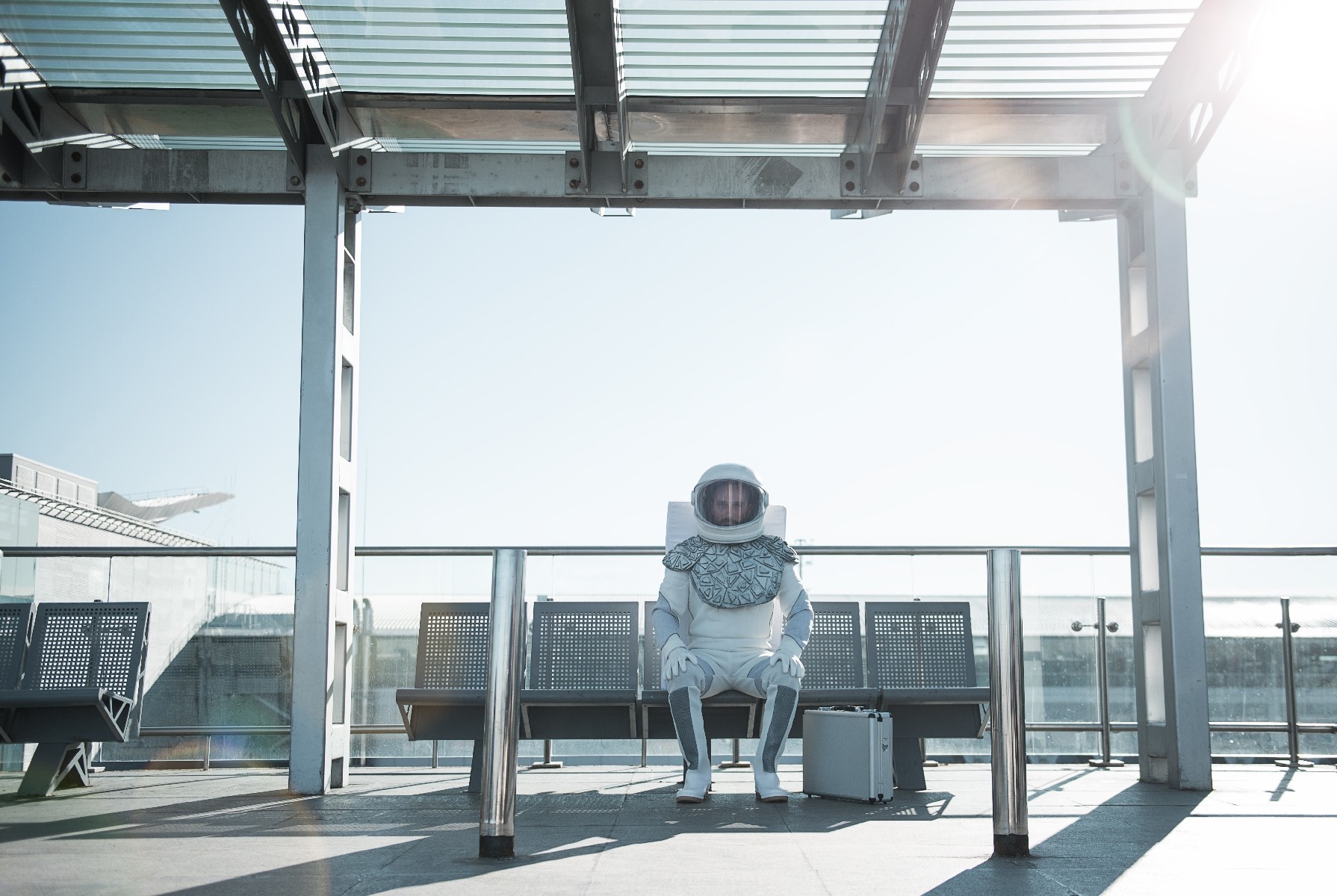
How to pack a space suitcase?
Packing a suitcase for a trip through the cosmos is actually less of a headache than doing so for a weekend vacation on Earth. Just keep in mind that it’s impossible to do laundry in space, so pack clothes accordingly : stock up on underwear, light clothing (space station temperature is controlled at about 22 degrees Celsius, or 72 degrees Fahrenheit), and exercise outfits. Outerwear will be provided: an orange suit for takeoff and re-entry, and a white one for potential space strolls.
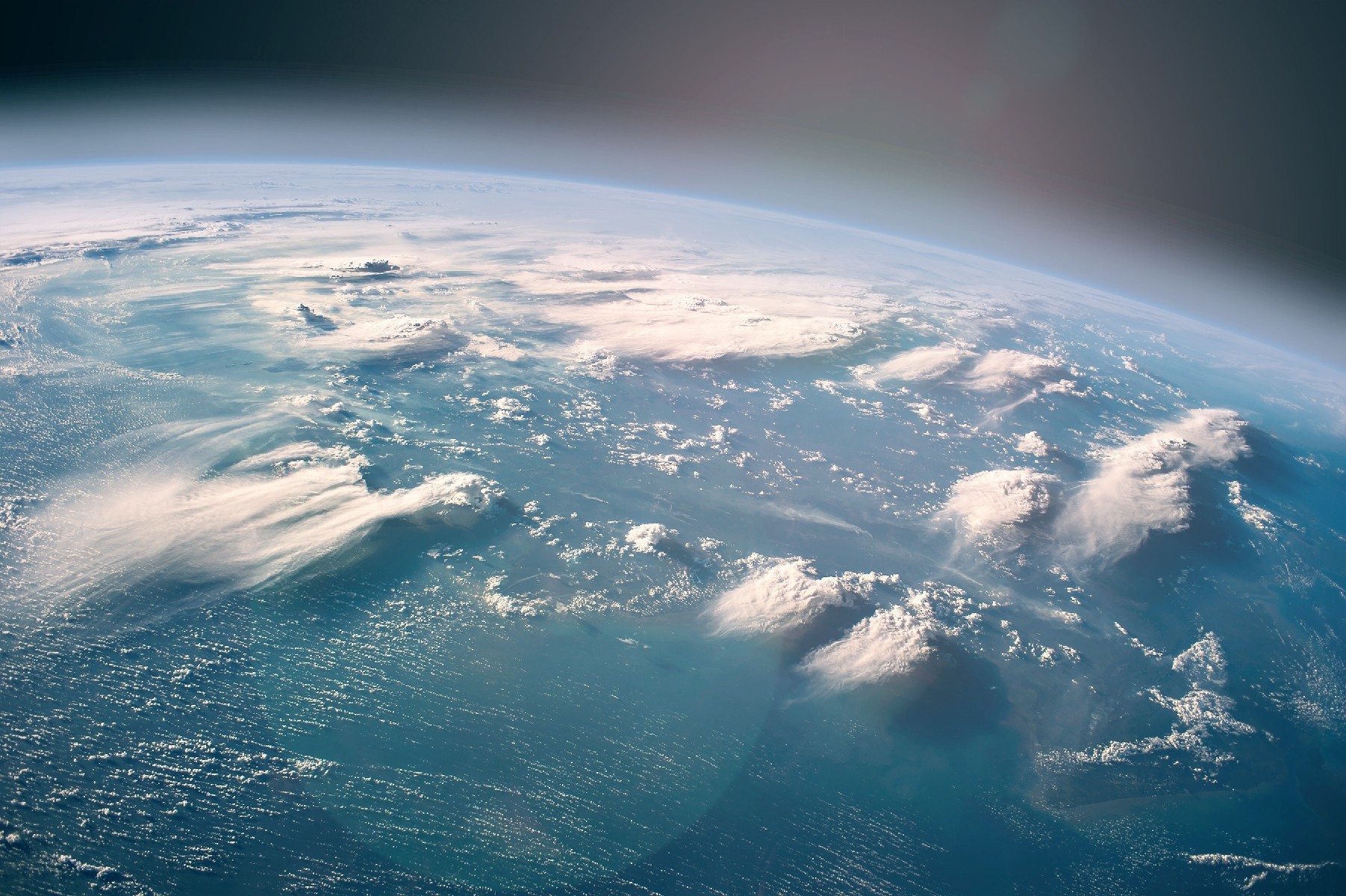
Is it eco-friendly?
With ecotourism being a growing trend and concern over the last few years, the question is legitimate. Well, bad news: space travel could have a negative impact by accelerating global warming . This would be caused by the black carbon released into the stratosphere after suborbital launches. But of course, entrepreneurs in the industry claim that the carbon footprint of space tourism would be minimal. The truth is, rockets emit 50 to 100 times more CO₂ per passenger than a regular flight. Considering that Virgin Galactic plans to do 400 trips per year, that’s a lot of CO₂ entering the atmosphere.
More for You
‘It’s already highway robbery.’ Why people don’t wait to claim Social Security and what experts say
This Woman Withdrew From the Interview Process After Being Told She Was the Strongest Candidate. The Reasons Are Instructive for Any Hiring Manager
Stephanopoulos cuts off Trump lawyer after he suggests Biden was behind Trump conviction
I'm a 57-year-old Woman and People Think I'm in my 30's - Here's My Tips to Aging Gracefully
‘Just a stupid piece of dirt’: This Texas woman’s husband wants to exclude her daughter from a family inheritance to keep it in his ‘bloodline’ — why Dave Ramsey says he’s ‘calling BS’
The Wendy's Chili Fact You Need To Know Before Ordering
Astronomers say we may live at the center of a cosmic void 2 billion light-years wide that defies the laws of cosmology
What is Donald Trump’s net worth?
Pink Floyd’s Drummer Nick Mason’s Rare Ferrari is Worth More Than Robert Downey Jr’s The Avengers Payday
You Should Really Think Twice Before Killing That Earwig
24 "Rich Person Activities" That Most "Normal" People Would Never Even Think About
How to keep bananas from turning brown: Store it properly to maintain freshness
Scammer Alert: If Someone Calls You Using Any of These 12 Phrases You’re About To Be Scammed
Insiders predict this possible Trump VP pick poses 'existential threat' to key area of Biden support
What Impact Will The SR-72 Dark Star Have On Global Military Balance?
39-year-old who makes $9,300/mo in passive income: My No. 1 piece of side hustle money advice
I'm Nobody's Guest, Thank You Very Much
3 pieces of information you should never share in a job interview and what to say instead, from a recruiting manager
I Have Chronic Inflammation & This Is the Anti-Inflammatory Beverage I Drink When I'm Sick
Nearly half of master’s degree programs leave students financially worse off—and just one subject results in a starting salary over $100k
We sent you SMS, for complete subscription please reply.
You are using an outdated browser. Please upgrade your browser or activate Google Chrome Frame to improve your experience.

Wonder of the Day #19
What Would You Pack for a Trip to Outer Space?

SCIENCE — Earth and Space
Have You Ever Wondered...
- What would you pack for a trip to outer space?
- What do you need to survive in outer space?
- Why is recycling important?
- astronaut ,
- ecosystem ,
- International ,
- life-support system ,
- recycling ,
- spaceship ,
- Astronaut ,
- Ecosystem ,
- Life-Support System ,
- Recycling ,
- Spaceship ,
Today’s Wonder of the Day was inspired by Kylie. Kylie Wonders , “ What is it like to live on the International Space Station? ” Thanks for WONDERing with us, Kylie!
Have you ever dreamed of traveling in space ? For many kids, gazing at the stars leads to daydreams about what it would be like to be an astronaut . Would you like to travel on a spaceship? Just think about how awesome it would be to set foot on the moon or another planet!
Of course, becoming an astronaut isn't easy. There aren't many astronauts in the world , so you have to be very skilled in a number of different areas. Astronauts have special combinations of skills that make them suitable to be traveling scientists beyond Earth.
Although it sounds like it would be great fun to travel to outer space, it would be a lot of work, too. Traveling to outer space takes lots and lots of preparation. Everything has to be planned carefully in advance. Why? Because once you leave Earth's surface, you're on your own with what you have in your spaceship. There's no store to go to in space!
Once you are in space, nothing can come on board the ship and practically nothing can go out. You must take everything you need to survive into outer space with you. Let's call these items “inputs." Inputs might include necessities such as food , water and oxygen .
Now let's talk about “outputs." Every input creates an output . Let's say you open a box of Coco Comets cereal for breakfast. What will you do with the box when it is empty? You only have so much room to store outputs on your spaceship. Every piece of garbage you create while on tour will stay on the ship with you. Where will you store the garbage? Can you think of a way to reduce the amount of waste output you create during your time in space?
In order to survive, you must eat and drink . This means your body will also process those food and water inputs and output them in the form of solid and liquid waste . Since nothing can leave the spaceship, you will need to think of a way to handle these bodily wastes. On Earth, we simply flush a toilet, but what happens after our bodily output leaves our homes and enters the sewer systems? Where does it go? It might seem icky, but this is an important question.
Even breathing creates an output — carbon dioxide! Can you think of a way to filter the carbon dioxide from your spaceship? And how will you replace it with the oxygen your crew needs to breathe? Hint: Plants love carbon dioxide and depend on it in the same way humans depend on oxygen to breathe.
Conveniently, plants output oxygen ! However, plants also have other input needs, such as water and fertilizer. If you bring a banana tree on board your ship, you will need to bring enough water to sustain it for a year. You must also consider another type of output the bananas will leave behind after you have snacked on the fruit — the peel! The banana peel will become another output to add to your garbage output pile. Can you think of other plants or trees that may provide a tasty treat without leaving a rind or peel behind for your garbage output pile?
See how carefully you have to plan for a trip to outer space? Not only do you have to think about all the things you'll need, you have to consider the consequences of those things in terms of the wastes they create.
Packing for a trip to outer space isn't as simple as packing your bag for a week at camp. Considering the impact of all your actions takes time and energy. And you can start right now! All of your actions here on Earth have impacts just like they would in space. How can you plan your actions on Earth to have the least impact on the environment and your future ?
Common Core , Next Generation Science Standards , and National Council for the Social Studies ."> Standards : CCRA.L.3, CCRA.L.6, CCRA.R.1, CCRA.R.2, CCRA.R.4, CCRA.R.10, CCRA.SL.1, CCRA.W.4
Wonder What's Next?
Can’t wait for tomorrow's Wonder of the Day? Are you counting down the seconds? It’ll be here in t-minus 3… 2… 1…
Ready for a tour of outer space? Find a friend or family member to help you check out one or more of the following activities:
- Curious about what actual astronauts take with them into space? Do some research on the International Space Station , where astronauts stay for weeks and months at a time. You can learn more about the space station and even see a video that will take you on a tour. Do you think you'd want to spend months at the International Space Station? Why or why not? What would be fun? What would you miss about Earth?
- Fasten your seat belt and prepare for lift off! Close your eyes for a moment and imagine that your car is a spaceship and you and your family are preparing to blast off and tour a far, faraway galaxy. Once in space, your crew will not be able to communicate with planet Earth, nor will you be able to receive any extra supplies from home. Whatever you pack in your spaceship is all you will have for one year. Thinking carefully about what you learned in today's Wonder of the Day about inputs and outputs, what items would you pack with you? Make a list and discuss it with your friends and family members. What do they think of your list? What would they add? Is there anything they'd leave behind? Make sure you evaluate your list carefully to make sure you have a plan to satisfy all of your inputs and to deal successfully with the outputs that will be created!
- Welcome home! We hope you enjoyed your trip! Now that you have returned from your galaxy tour, discuss with your friends and family members how inputs and outputs affect Earth. Much like your spaceship, Earth must carry everything it needs to sustain itself and its many ecosystems and life forms. Nothing can come in and nothing can go out. There is no way to communicate with another planet to ask for help or supplies. If Earth doesn't have enough water or oxygen, what will we do? We can't order it from Neptune! If our landfills begin to overflow, we can't send our garbage into a black hole. The survival of “Spaceship Earth" depends on the choices, actions and behaviors of the crew who inhabit it. That's me and you! Discuss simple changes your family can make to help conserve the resources on “Spaceship Earth" and reduce the amount of output you contribute to Earth's garbage output pile. These can be as basic as turning off the faucet while brushing your teeth or carrying water in a reusable thermos instead of drinking from disposable plastic bottles. When you're done, ask for an adult’s help sharing the ways your family is improving life on our spaceship via social media. Be sure to tag us @wonderopolis. We'd love to hear your ideas!
Wonder Sources
- http://www.windows2universe.org/kids_space/astronaut.html (accessed 03 Feb. 2020)
- https://www.nasa.gov/mission_pages/shuttle/behindscenes/troy_mann.html (accessed 03 Feb. 2020)
- https://www.businessinsider.com/what-astronauts-pack-when-they-go-to-space-2013-9 (accessed 03 Feb. 2020)
Did you get it?
Wonder contributors.
We’d like to thank:
killian and Emma for contributing questions about today’s Wonder topic!
Keep WONDERing with us!
Wonder Words
- consequences
Would that trash can have a heavy lid, too, Space Geek? Or, maybe a vacuum system to draw in the trash so it doesn't float around the space ship.
Hmmmmm......? I will think about that.
Caroline Huey
Thanks for sharing, Caroline!
Hey, there!
You can check out Wonders about UFOs and Area 51 that might help with your question about aliens.
As far as when NASA is going to Mars, you can check out NASA's website about missions to Mars .
Fortnite_GOD_Girl_
Henry stricker
Tyler Hayden
If I was to bring anything I would bring a snack and my family and maybe my candy. the most important thing I would bring is my bible.
Thanks for sharing, Tyler!
Hi, Harper! Great list of your favorite foods! Did you know that astronauts have to eat foods prepared a certain way in space? To learn more, check out Wonder 208: What Do Astronauts Eat In Space?
Thanks for sharing, Xavier! Have you ever WONDERed about What It's Like to Live on the International Space Station? Let us know what you find out!
CodeBreaker416
Oh, no! We're sorry to hear that, CodeBreaker416! What are some of the topics you are most interested in? You can explore other Wonders here!
Welcome to Wonderopolis, Ms. Green! We are excited to hear about what your students would pack, as well!
that was rude code breaker 416.
Hi, Ashlynd! Great question! We encourage you to take a Wonder Journey to see what you can discover!
We hope that the wifi hotspot would work in space, Idkimbored!
Great question, km!! It sounds like there may be a few different answers for this question, though. This Wonder can help give some examples of things you may want to consider packing, and ideas that you would need to consider before taking a trip to outer space!
Thanks for sharing, breanna!
Brice______kbl
I would bring oxygen water and my phone so I can listen to music. BTW LOOOVVVVeEE the article.
Thanks for sharing and for WONDERing with us!!
Thanks for sharing, Spencer_K! Do you think your dog would like outer space?
Great question, tani_madii! We did some digging and think that this link: https://www.nasa.gov/vision/space/livinginspace/Now_Thats_A_Long-Distance_Call.html should help you out!
Tani_Meowww#####
Thanks for sharing, Tani_Meowwww####! Would you be excited for a trip to outer space?
Tani_Meowww#######
That's a good list! But now we are ?...how is there electricity in outer space?
Curious kid
Oooo good question! We've got to think about that one...what would YOU pack?
Great question, Karter! Yes, it is true muscles can easily weaken in space. Without gravity there is much less resistance so the muscles aren't challenged very much. This is why astronauts have to spend some significant time each exercising so they can counteract that. Cool, huh??
Kenzy Ossama
Thank you for commenting, Kenzy! We're glad you visited Wonderopolis today!
Aidan Davidson
That's a great list, Aidan! Sounds like you have thought this through pretty well!
Damian Ortega
Tbh athena, would there be plugs for all tht n would u clean up ur dogs poop whn he/she uses the restroom and where would u put all those electronics
Thanks for joining the discussion, Damian. It's fun to pretend we're going on a space trip! ?
That seems like a good list, athena! Don't forget the power cords and chargers for your electronics (and dog food)! ;-)
would that work in space?
Thank you for joining the discussion, sarah! What would you bring?
Thanks for sharing your list with us, Leo! Tell your brother we said Hello! :D
It sounds like you've given this a lot of thought, Athena! Thanks for WONDERing and sharing with us! :)
You need air.
VERY good point.
Those are things you'd definitely need, Lucas! Thank you for commenting! :)
Hi, Fazaima! We hope you liked this Wonder! Thanks for your comment! :)
We think this sounds like an interesting writing topic, Fazaima! We hope you learned lots of cool new facts! :)
Great question, verona! We hope this Wonder was helpful! We also encourage you to embark on your own Wonder Journey. We're sure you can find lots of info at your library and online! :)
How ever it works just do it
Thanks for WONDERing with us, Taylor and Nevaya! Sounds like you will be ready for a space mission! :)
Sounds like you'll be prepared, Tyresse! Thanks for sharing your ideas with us! :)
Hi, Gregory! We're glad you're having fun exploring Wonderopolis! Thanks for sharing your list of items for space travel! :)
Wonderpolis do you have a second website?
Great question, Gregory! Check out Camp Wonderopolis where you can earn Wonder Cards and explore Maker activities! :)
Flying rosegold zebra!
Thanks for sharing! Those would all be important items to bring! Thanks for WONDERing with us! :)
Hi, Joseph! We're THRILLED to hear you would bring books! Sounds like a GREAT list of important items! :)
We're sorry it didn't help you, Quinn. We have many other Wonders of the Day related to outer space -- perhaps those will help! Just click here to view them. :)
Yu-An Huang
Welcome, Yu-An! All important items for a space mission! Thanks for visiting Wonderopolis! :)
WONDERful, Nancy! Thanks for stopping by Wonderopolis! We're glad this Wonder was helpful and you learned something new! :)
Parth Kotwal
Welcome, Parth! We hope this Wonder was helpful. Thanks for visiting Wonderopolis! We're THRILLED you're WONDERing with us! :)
Cole Richards
Wonderopolis
Great, Cole Richards! We love when we are learning and having fun at the same time! Thanks for visiting WONDERopolis, today! :)
MorgPorgGorp
I hate it too
We're sorry to hear that, Fazaima! There are more than 1,700 Wonders of the Day. We're sure you can find one you like better! :)
We're sorry you didn't like this Wonder! We'd LOVE to have you stop by and read a few other Wonders. :)
SpaminCanadian
You don't have satellite connection in outer space..... So the screen will be blank.
We're glad you joined the conversation, SpaminCanadian! Thank you for visiting Wonderopolis! :)
CarlyRae107
LOL minecraft
Hi, Carly! Many WONDER Friends would agree that Minecraft is a "must pack" item. Do you like playing Minecraft, too? :)
We think you'd have LOTS of things to do to keep you busy in outer space, Daivionne! We're WONDERing what kinds of foods you would want to take to eat? Happy WONDERing! :)
No no that we need real food and not no phone
Thanks for joining the discussion, kaylan! We appreciate you sharing your opinion. The GREAT part is we can all bring different items! :)
Those are some interesting choices, Bryce. Who would you call from outer space? We hope you join us to WONDER again tomorrow! :)
Wow, sian pi! We are impressed with all of your WONDERful thinking! You ROCK! :)
Way to go, Lyrik! Those are some WONDERful things to take with you to outer space. Do you have anything special that you would want to take? Thanks for stopping by Wonderopolis today! :)
Hi, Wonder Friend Hemanta! We are so HAPPY you shared some of the things you think you would need in outer space with us today! We hope you WONDER with us again soon! :)
We're SO GLAD you're spending time with us WONDERing today, Lawrence! We think a pillow and cover would be a GREAT idea to take to outer space! :)
Hello, Amaria. Thanks for visiting us today! Outer space doesn't have electricity, so there isn't a need for outlets. You need food and water to survive, so you would need food and water in outer space. We think bringing a space suite and helmet is a MUST if you were to visit outer space! :)
WONDERful, Orianna! Books make it possible to travel anywhere! Keep Reading and WONDERing with us! :-)
Mrs. Foster's Class
Alright, we're so excited that you're WONDERing with us today, Pinkninja! Thanks for sharing your comment AND telling us all about your interest in NASA! We hope you follow your dreams! Check out all these Wonders about space: https://www.wonderopolis.org/wonders?q=space :)
We are undergoing some spring clearing site maintenance and need to temporarily disable the commenting feature. Thanks for your patience.

Related Wonders for You to Explore

Do All Sharks Live In Saltwater?

What Type of Shark Is the Slowest?

Why Do Sharks Have Nostrils?

Who Was Kalpana Chawla?

How Do You Clean Up an Oil Spill?
Drag a word to its definition
Select a Wonder Word:
Match its definition:
Congratulations!
You’ve matched all of the definitions correctly.
Share results
Question 1 of 3
Which of the following is an example of an “input” you would need to survive in space?
- a television Not Quite!
- b oxygen Correct!
- c maps Not Quite!
- d both (B) and (C) Not Quite!
Question 2 of 3
Breathing creates what “output”?
- a oxygen Not Quite!
- b carbon dioxide Correct!
- c nitrogen Not Quite!
- d trash Not Quite!
Question 3 of 3
Which of the following is an example of an output that an astronaut would need to plan for on a trip to outer space?
- a carbon dioxide Not Quite!
- b trash Not Quite!
- c human waste Not Quite!
- d all of the above Correct!
Quiz Results
Share Results
Spread the joy of wonder, get your wonder daily.
Subscribe to Wonderopolis and receive the Wonder of the Day® via email or SMS
Join the Buzz
Don’t miss our special deals, gifts and promotions. Be the first to know!
Share with the World
Tell everybody about Wonderopolis and its wonders.
Share Wonderopolis
Wonderopolis widget.
Interested in sharing Wonderopolis® every day? Want to add a little wonder to your website? Help spread the wonder of families learning together.
You Got It!

http://www.wonderopolis.org/wonder/What-Would-You-Pack-For-a-Trip-To-Outer-Space
© National Center for Families Learning (NCFL)
- A Beginner’s Guide to IELTS
- Common Grammar Mistakes [for IELTS Writing Candidates]
Writing Correction Service
- Free IELTS Resources
- Practice Speaking Test
Select Page
IELTS Topics: Space
Posted by David S. Wills | Mar 16, 2020 | IELTS Tips | 1
In the past, I have talked often about the importance of learning IELTS in terms of topics . This is because you can learn material organically in a way that your brain can effectively process. It is useful to do this because you can practice reading and writing together, for example, with each skill informing the other. This sort of method will result in higher retention of information than other methods, such as memorising lists of vocabulary and sample answers.
In today’s lesson, I want to introduce you to another IELTS topic. This time, we are looking at the topic of space . You might be wondering why we are looking at this topic. It is not as common as some other ones, like family or technology. However, space is still an important topic that may arise in your test.
What do you mean by “space”?
First of all, let’s clarify what “space” is and what may occur in the IELTS test. By space, we mean basically anything not on this planet. For IELTS, you may be asked about space in a limited capacity because, honestly, it’s a really difficult topic and even native speakers would struggle to speak about it in depth.
Some things that occur in this topic are:
- The value of space travel
- The importance of studying space
- Life on other planets
There really isn’t much more than that, but you should be aware that they could ask you something else. It is impossible to predict IELTS questions.
IELTS Vocabulary: Space
It’s important to note that you don’t need to be an expert on space to answer any IELTS questions. Indeed, IELTS is a very general exam and so you only need a broad and general set of knowledge and vocabulary. As such, I have made the following PPT that contains some useful vocabulary for IELTS students on the topic of space.
Those words are some quite general ones about space, but in the next PPT I have a few words that relate more specifically to space travel :
Now let’s do a short test. Using the words from those PPT files, you should fill in the blanks in the sentences below.
Vocabulary Test
- Space travel has become more practical since the invention of the reusable _________.
- The sun is located at the centre of the ___________.
- Buzz Aldrin and Neil Armstrong were the first men to walk on the surface of the _________.
- At NASA, highly skilled people are trained intensively to become _____________.
- When a rocket or space shuttle leaves the ground and heads towards space, the process is referred to as a __________.
- Some people believe that _________ have visited earth and made contact with humans.
- There are teams of scientists around the world searching for life on other __________.
(You can find the answers at the bottom of the page.)
IELTS Speaking Questions: Space
The topic of space is not a common one for IELTS speaking because most ideas are too difficult to expect a candidate to answer fully and the vocabulary required for a discussion about space is beyond a reasonable level expected for most IELTS candidates. However, you could encounter questions like these for part one:
- Do you want to travel into space?
- Do you like movies about space?
- If space travel became affordable for everyone, would you want to visit another planet?
To be honest, questions that are more specific than these are unlikely. You can answer any of these without a vast knowledge of space terminology, and that’s what is required for IELTS. Being able to give a basic answer with just a few topic-specific words is fine.
For example, I would give the following sample answer:
Do you want to travel into space? Yes, I would definitely choose to visit space if I had the chance. I’ve always wanted to see what the Earth looks like from faraway, and very few people have ever actually been able to witness it. Although it might be a bit dangerous, it would truly be a once-in-a-lifetime experience.
As for part three, the questions would be a little more advanced. Due to the nature of the topic, then, it is unlikely that you would really encounter many space questions here. However, if you did, they would look like this:
- Do you think it’s worthwhile looking for life on other planets?
- Is too much money spent sending people into space?
- Do you think that space travel will become as common as air travel in future?
For each of these questions, you would need to offer a more detailed reply, giving a three-part answer:
- State your answer.
- Explain your answer.
- Give evidence, example, or recommendation.
For example, to the first question, I might reply:
No, I really don’t think that it’s worthwhile looking for life on other planets. Lots of time, energy, and money is spent on this pointless project, when there are clearly many issues on Earth that need resolved first. There may well be aliens in another galaxy, but we have nothing to gain from contacting them because we have no hope of ever reaching them. Even reaching the edge of our own solar system would take thousands of years. Instead, we ought to reverse climate change and end poverty, both of which are ultimately far more achievable goals than communicating with extra-terrestrials.
You can look at my answer in three distinct parts:
- No, I really don’t think that it’s worthwhile looking for life on other planets.
- Lots of time, energy, and money is spent on this pointless project, when there are clearly many issues on Earth that need resolved first. There may well be aliens in another galaxy, but we have nothing to gain from contacting them because we have no hope of ever reaching them. Even reaching the edge of our own solar system would take thousands of years.
- Instead, we ought to reverse climate change and end poverty, both of which are ultimately far more achievable goals than communicating with extra-terrestrials.
This basic structure has allowed me to present a fully-developed answer that is logical and appropriate. Note that I haven’t used much advanced vocabulary, although I did use the following space-related terms:
- extra-terrestrials
I could have replaced them with other words from this lesson – solar system and aliens. These are synonyms. Instead, I wanted to add some variety and avoid repetition.
IELTS Writing Questions: Space
It is more common to encounter the topic of space in IELTS writing, where the issues presented tend to be a little more complex and require answers of about 250+ word in order to really cover them sufficiently. The issue of spending money on space travel, for example, is a little too vast to sufficiently describe in just a short, spoken answer.
Here is how that same topic may be presented for IELTS writing task 2:
Some people think that space exploration is a waste of resources while others think that it is essential for mankind to continue to explore the universe in which we live. Discuss both sides and give your opinion.
Sample Answer
I have written a sample band 9 answer that includes some useful vocabulary. I have highlighted those phrases in bold:
Some governments and private companies spend vast amounts of money on space programmes , but this is often criticised as wasteful when there are clearly issues here on Earth that need to be solved. This essay will look at both viewpoints, and then decide that some limited space exploration should be undertaken. First of all, it is true that there are issues plaguing this planet that need our attention more than space travel . Around the world, millions of people are starving to death or dying from preventable diseases. It seems unjust that governments are devoting billions of dollars to send people into space when these fundamental problems still exist. There are also existential threats such as extinction due to climate change, and yet we are devoting the best minds to explore other planets rather than saving this one. If it is just a matter of exploration, then there are even parts of this world that are not yet explored, such as the bottom of the ocean. Despite those valid concerns, space exploration is still important. The astronauts who go up into orbit are not just “exploring space” in the sense that explorers used to travel the world, but rather they are scientists conducting experiments that may prove beneficial to the future of humanity. The work that they do in space could be instrumental in stopping the next pandemic or ending hunger. Certainly, money spent on Earth would appear to be a more direct resolution, but perhaps these space experiments will have a greater ultimate benefit. In conclusion, this is a difficult issue because, while space travel is important, it seems hard to justify the vast amounts of money spent on it. However, this money will probably yield important long-term results and so it is important to continue.
(Note: This sample answer was originally posted here in November, 2019.)
IELTS Listening: Space
I really doubt that you would encounter the topic of space in IELTS listening unless it occurred in the lecture portion. In that case, the language used would not actually be about space but rather you would be listening to someone talking about space and you would be asked more general questions. Phrases like “solar system” would not really be necessary.
If this topic did arise, you might be presented with a basic discussion of an idea like space tourism or a human community on Mars. Any difficult concepts would be explained slowly and clearly, but ultimately it would be your general English that is tested, and not your knowledge of space.
If you want some listening practice on the topic of space, you can try these listening exercises that I made last year or look at this exercise from Breaking News English. For more general practice, you may want to look up videos about space on YouTube and see how much you can understand.
IELTS Reading: Space
It is very possible that you could encounter a reading passage about space in your IELTS test. This could cover almost any aspect of space because the reading test allows for difficult ideas. There may be questions about space travel, science, life on other planets, the history of space travel, and so on. It’s hard to predict because honestly there are so many options.
Again, you don’t need to be an expert on space to answer these correctly and you don’t have to know lots of space vocabulary, either. If there are any difficult words or phrases, they will be defined in the text or in a footnote. You can find a pretty useful reading practice exercise here from a university in Hong Kong.
- space shuttle
- solar system
About The Author
David S. Wills
David S. Wills is the author of Scientologist! William S. Burroughs and the 'Weird Cult' and the founder/editor of Beatdom literary journal. He lives and works in rural Cambodia and loves to travel. He has worked as an IELTS tutor since 2010, has completed both TEFL and CELTA courses, and has a certificate from Cambridge for Teaching Writing. David has worked in many different countries, and for several years designed a writing course for the University of Worcester. In 2018, he wrote the popular IELTS handbook, Grammar for IELTS Writing and he has since written two other books about IELTS. His other IELTS website is called IELTS Teaching.
Related Posts
Describe a Hotel You Have Stayed In
December 14, 2020
Skimming and Scanning Practice – UFOs
April 2, 2016
Improve your IELTS Speaking Score Immediately
August 4, 2017
The Perfect Book for Studying IELTS Writing [Academic]
December 20, 2018
Such a great sample. I really enjoyed that. thank you
Leave a reply Cancel reply
Your email address will not be published. Required fields are marked *
This site uses Akismet to reduce spam. Learn how your comment data is processed .
Download my IELTS Books
Recent Posts
- British vs American Spelling
- How to Improve your IELTS Writing Score
- Past Simple vs Past Perfect
- Complex Sentences
- How to Score Band 9 [Video Lesson]
Recent Comments
- Francisca on Adverb Clauses: A Comprehensive Guide
- Mariam on IELTS Writing Task 2: Two-Part Questions
- abdelhadi skini on Subordinating Conjunction vs Conjunctive Adverb
- David S. Wills on How to Describe Tables for IELTS Writing Task 1
- anonymous on How to Describe Tables for IELTS Writing Task 1
- Lesson Plans
- Model Essays
- TED Video Lessons
- Weekly Roundup
IELTS Quang Bình
(2024) ielts speaking part 1 topic outer space and stars.
Table of Contents
IELTS Speaking Part 1 Topic Outer Space And Stars

Questions and Answers
1. Have you ever learnt about outer space and stars?
Yeah, I have taken the intro courses of geography and there are some units in the textbook about outer space and stars. It’s interdisciplinary , and I have learnt something about the Galaxy , the beginning of universe and the solar system .
2. Do you like science fiction movies? Why?
Yeah, I love sci-fi movies to pieces coz they’ve never disappointed me. It’s like the directors create the fantasy world , making people escape from the mundane in life. What’s more, the special effects in the movies give people lots of visual impacts .
3. Do you want to know more about outer space?
yeah I do because I’m curious about everything of outer space. There are so many unresolved mysteries like, whether alien beings exist in the universe, so l’d like to watch documentaries in my spare time. Staying tuned on the topic is fun.
4. Do you want to go into outer space in the future?
Yeah, I’m definitely looking forward to that. Actually, I dreamed of being an astronaut when I was a kid. Although it’s just a dream, thinking of travelling in the outer space is super cool. Maybe it can be realized one day when I save enough money .
Some IELTS Speaking part 1 topics you may like:
- (2024) IELTS Speaking Part 1 Topic Jewelry
- (2024) IELTS Speaking Part 1 Topic Fast Food
- (2024) IELTS Speaking Part 1 Topic Music
- (2024) IELTS Speaking Part 1 Topic Staying Up
- (2024) IELTS Speaking Part 1 Topic Chocolate
- (2024) IELTS Speaking Part 1 Topic Noise
- (2024) IELTS Speaking Part 1 Topic Study and Work – Free Lesson
- (2024) IELTS Speaking Part 1 Topic Accommodation – Free Lesson
- (2024) IELTS Speaking Part 1 Topic Hometown – Free Lesson
- (Update 2024) IELTS Speaking Part 1 Topic The area you live in Free
Image : Photo by Jeremy Thomas on Unsplash
Vocabulary: Cambridge Dictionary
Related Posts
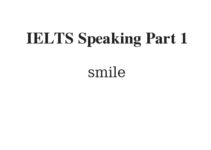
IELTS Speaking Part 1 Topic Smile

(2024) IELTS Speaking Part 1 Topic Singing
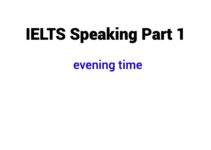
(Update 2024) IELTS Speaking Part 1 Topic evening time Free Lesson
About the author.
- IELTS Online Test: https://online.ieltsquangbinh.com - Website: https://www.ieltsquangbinh.com - Facebook: https://www.facebook.com/IELTSQuangBinh - Twitter: https://twitter.com/IELTSQuangBinh - Youtube: https://www.youtube.com/c/IELTSQuangBinh - Instagram: https://www.instagram.com/ieltsquangbinh
One Response
Very helpful questions and answers, thanks so much for what you are doing.
Leave a Reply Cancel Reply
Save my name, email, and website in this browser for the next time I comment.
- Skip to primary navigation
- Skip to main content
- Skip to primary sidebar
IELTS Training with Jonathan
Helping Busy People Succeed in IELTS.
How to answer – Space Travel – The Perfect Speaking Part 1 Response
By ielts-jonathan.com on 5 February 2021 0
The Perfect Speaking Part 1 Response
Space travel, did you know that the first part of the ielts speaking test can be the most difficult for candidates..
Share Pin Share Tweet 0 Shares
Not only is the candidate in a test situation, but the candidate is has to deal with listening to an examiner who may speak with an unfamiliar accent or at some speed.
But don’t despair it can also be the easiest part, and the most enjoyable.
There is a valid reason for this part of the IELTS test, and I will explain this below.
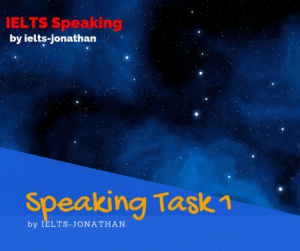
One reason for Part 1 is to ease the candidate into the test, and allow the candidate to tune into the voice of the examiner.
The three sets of questions are not particularly challenging, but are varied in topic and allow the candidate to ‘ warm up ‘ and ‘ gain confidence ‘ and additionally give the examiner ‘ a feel ‘ to immediate level.
One way to do well in this section is to relax.
A relaxed candidate always listens better and responds well.
Other tips are
- Don’t give the examiner an opportunity to ask ‘why’ you think something.
- Connect your sentences.
- Attempt to use complex sentences rather than short, simply ones.
- Don’t hesitate too much, you can make some mistakes
- Don’t be afraid to correct yourself
If you don’t understand something, always ask the examiner to repeat the question.
Think about these questions, what answer can you give,
- Do you want to travel in the outer space?
- What would you do if you had that opportunity?
- Do you think it’s necessary to see other planets?
- When was the latest time you went travelling?
- Do you like to travel by air?
TIP- IELTS Part 1 features ‘three’ random topics chosen by the examiner.
There is a around a minute of speaking time allowed for each section of part 1, so if you can answer the question fully AND extend it, you will get asked fewer questions!
I would love to travel to outer space and would jump at the opportunity if it arose. With the speed of development in current technology, it means it might happen sooner than we think! I mean Eton Musk is planning space holidays, and Jeff Bezos just recently was the first privately financed individual to go into space.
- What would you do if you had the opportunity to go into space?
In a few years it will be possible for anyone to do this. It would be great fun to experience space travel. Just to experience the feeling of being in space and weightlessness would probably be amazing.
At the moment, I think that it’s enough to experience something which we already enjoy on our own planet, there are so many opportunities. Space tourism will become a reality I believe, once the technology is in place. I think this will come from space exploration of planets for minerals and valuable materials.
At the moment, I am lucky to have had made several long haul trips to other countries. The last trip was to Beijing in the winter, it was very cold when we got off the plane.
I think travelling can be quite boring especially if you have to do a number of long-haul flights. Of course, it is quicker but I think it’s more interesting to travel by train or by bus, at least for shorter journeys. At least you can meet other people and observe the surroundings on the country you’re in.
For any of the IELTS test sections, it is important to be aware of general, current topics and developments. This can add depth to your written or spoken answers,
For more ideas about space travel there’s a recent article here on The Conversation, Will astronauts return to the moon in five years?
So, to recap, remember to relax, give full answers and connect ideas, try not to hesitate with your answer and correct yourself if you make errors or mistakes.
I’m Jonathan
I’ve taught IELTS and University English in more than a dozen universities and schools around the world.
I’m a parent, traveller and passionate about language teaching and helping students achieve their dreams.
Whilst living in Austria or working in Asia, I run IELTS courses to help students get to where they want to be.
If you are serious about IELTS, connect with me to see how I can help you.

Share this:
- Click to share on Twitter (Opens in new window)
- Click to share on Facebook (Opens in new window)
- Click to share on Pinterest (Opens in new window)
- Click to share on WhatsApp (Opens in new window)
- Click to share on Telegram (Opens in new window)
- Click to share on Tumblr (Opens in new window)
- Click to share on LinkedIn (Opens in new window)
- Click to print (Opens in new window)
Reader Interactions
Was this helpful leave a comment :) cancel reply, let me help you get the ielts result you need.

JUST WRITING FEEDBACK

Speaking Feedback
IELTS TRAINING
IELTS FEEDBACK
YOUR PRIVACY
TERMS AND CONDITIONS
- AGREE OR DISAGREE ESSAY
- DISCUSS BOTH VIEWS & GIVE YOUR OPINION
- POSITIVE OR NEGATIVE DEVELOPMENT
- IELTS SUCCESS STORIES
- CUE CARDS & PART 3 DISCUSSIONS (𝐌𝐀𝐘-𝐀𝐔𝐆 𝟐𝟎𝟐𝟒)
- PRIVACY POLICY
IELTS SPEAKING PART 1: OUTER SPACE [ANSWERS]
Outer space and stars.
Have you ever learned about stars and outer space?
(Answer 1)
Yes, I learned about those things when I was a grader in our science class. That’s when I first learned about the solar system, and you know what, this question reminds me of the time when we were so fascinated (interested) by the appearance of the universe when we watched a science movie in our class. It’s a lovely memory of our innocence.
(Answer 2)
Definitely! I remember I needed to learn the different planets and their characteristics by heart (learn by heart – memorize) because I wanted to get a perfect score in our science exam. Besides, I learned about how the sun and the moon affect the lives of people. That was when I was an elementary school student and I can say that that was a great subject.
Is it important to study stars?
I think it is so we can understand how the universe works. All of us spent time learning about stars, outer space, planets, and more when we were elementary students, and those broadened (widened) our understanding of the universe and our existence. All those things remind us of how amazing the universe is and how insignificant (unimportant) we are.
Personally, it isn’t, unless one wants to become a scientist. I mean, what can studying stars do with those people who are working in the service industry? For sure, it doesn’t mean anything to them as they need practical knowledge in servicing their clients, not knowledge about stars. So, for me, that is only important if one wants to get a job that gives value to outer space.
Do you like science fiction movies?
Well, I’m not a fan of that movie genre. I find it boring. In all fairness (considering everything that has an effect on a situation, so that a fair judgment can be made) , I tried watching one of the most notable science fiction movies titled, War of the Worlds, when I was a high school student, however, it didn’t capture my interest. I dunno no matter how I convinced myself that it’s one of the best science fiction movies, it just didn’t grow on me (if something or someone grows on you, you start to like them more) .
I love science fiction movies. I find them entertaining and they make me think how brilliant (exceptionally clever or talented) the minds of the writer, the movie director, and the creative director are in creating such a film. It must take so much creativity and talent to create a science fiction film. Actually, I watched a lot of sci-fis but it’s the movie, The Matrix that I consider the best.
What would you do if you had the opportunity to travel to space?
Oh wow! I have never thought about it. I dunno, I guess I’d document my breathtaking and one-of-a-kind experience by taking photos and videos. I’d probably touch the surface of the moon or the planet Mars and feel its texture. And I’d raise the flag of my country like what the American astronauts did many years ago.
That sounds pretty interesting. I would definitely roll on the surface of the moon or the planet Mars. I think it’d be fun. But I dunno if it’s possible since humans only float on the moon due to weightlessness. I dunno what I could do then, I can’t think of anything, except for that.
Get ideas on how to answer the
recent IELTS Speaking Part 1 topic
GET THE LATEST
REVIEWERS FOR PART 2 &
PART 3 Here!
Meaning of Words and Phrases Sources: Collins, Macmillan, Cambridge , Oxford
Do you have any questions or comments? Please leave them below.
If you want to support my work, you can buy me A CUP OF COFFEE here:
https://www.buymeacoffee.com/ieltsdragon
Thank you so much!

Julius Malaza
Related posts.
- IELTS SPEAKING PART 1: STAYING AT HOME [ANSWERS]
PART 1 STAYING AT HOME (ANSWERS) Are you a person who likes to stay at home? (Answer 1) Yes, I am. I’m a homebody (a person who...
- IELTS SPEAKING PART 1: CHILDHOOD MEMORY (ANSWERS)
PART 1 CHILDHOOD MEMORY ANSWERS What did you enjoy doing as a child? (Answer 1) I enjoyed going outside and playing all day long with my friends. I...
- IELTS SPEAKING PART 1: ASKING FOR HELP (ANSWERS)
PART 1 ASKING FOR HELP ANSWERS Do you ask for help when you have a problem? (Answer 1) I rarely do because I always try my best to figure...
- IELTS SPEAKING PART 1: FLOWERS [ANSWERS]
PART 1 FLOWERS ANSWERS What kinds of flowers do you know? (Answer 1) Well, I know different types of flowers such as annuals, perennials (present at all seasons...
𝐆𝐨𝐨𝐝𝐛𝐲𝐞, 𝟔.𝟓! 𝐂𝐥𝐢𝐜𝐤 𝐭𝐡𝐞 𝐏𝐈𝐂!

𝗥𝗘𝗖𝗘𝗡𝗧 𝗣𝗢𝗦𝗧𝗦: 𝐌𝐀𝐘-𝐀𝐔𝐆 𝟐𝟎𝟐𝟒
- IELTS SPEAKING PART 1: BIRTHDAYS (ANSWERS)
- IELTS SPEAKING PART 1: DAILY OR MORNING ROUTINE
- IELTS SPEAKING PART 1: WEATHER [ANSWERS]
- IELTS SPEAKING PART 1: SHOPPING [ANSWERS]
- IELTS WRITING: It is not necessary for people to travel to other places
- IELTS CUE CARD: SOMEONE MADE A LOT OF NOISE
- IELTS SPEAKING PART 1: CROWDED PLACES [ANSWERS]
- IELTS SPEAKING PART 1: CELEBRITY [ANSWERS]
- IELTS SPEAKING PART 1: MONEY [ANSWERS]
- IELTS SPEAKING PART 1: VIDEO GAMES [ANSWERS]
- IELTS SPEAKING PART 1: ADVERTISEMENTS [ANSWERS]
- IELTS SPEAKING PART 1: MEMORY [ANSWERS]
- IELTS SPEAKING PART 1: SINGING [ANSWERS]
- IELTS SPEAKING PART 1: COLLECTING THINGS [ANSWERS]
- IELTS SPEAKING PART 1: BOREDOM [ANSWERS]
- IELTS SPEAKING PART 1: MUSIC [ANSWERS]

Author, Band 9.0 Achiever (First Attempt - IELTS Speaking)
Hi students! My name is Julius. I am the author of this IELTS website. I am a non-native English speaker who achieved the highest band score (band 9.0) on the IELTS speaking test on my first attempt. I graduated with a degree in Communication Arts from Cebu Normal University, one of the prestigious state universities in the Philippines. I am a licensed teacher and TESOL-certified. I once worked at a UK-based company teaching business English to Japanese businessmen who primarily work at Nikkei, a popular media company in Japan. I created this website to help you all achieve your desired band scores so you will waste so much money, time, and effort for retaking the exam numerous times. All of the sample answers I provided on this website are a product of my experience as a band 9.0 achiever and an experienced IELTS speaking coach. I've made sure that all of the sample answers are developed in a conversational and natural way because that is how I achieved a crisp band 9.0. Be one of the many students who achieved their target band scores by utilizing this website as one of the learning resources!
© Copyright 2018 – 2024

Recent IELTS Speaking Part 1 Questions With Answers: Outer Space and Stars
Recent IELTS Speaking Part 1 Questions With Answers: Outer Space and Stars. These are the IELTS Speaking part 1 Topics and Questions on general topics about your life. Your answers will be from your life and experience.
Recent IELTS Speaking Part 1 Questions With Answers: Outer Space and stars
Question 1:- do you want to travel to outer space.
Answer – Of course, I want to travel to outer space because I am very ago to know about the stars, universe and planets.
Question 2:- What would you do if you had an opportunity?
Answer – If I get an opportunity, then I definitely feel over the moon and would like to search the universe and explore it. It is an honour for me to visit there.
Question 3:- Have you ever learnt about stars and outer space?
Answer – I have learnt about stars and outer space in secondary school education. There is a little bit of knowledge about the universe and planets in the science book.
Question 4:- Is it essential to study stars?
Answer – Definitely, it is very important to study stars because one can enhance knowledge about another planet, and it is fascinating to know about another world.
Follow Us on IELTSFever Twitter for more updates
- Click to share on WhatsApp (Opens in new window)
- Click to share on Pinterest (Opens in new window)
- Click to share on Facebook (Opens in new window)
- Click to share on Tumblr (Opens in new window)
- Click to email a link to a friend (Opens in new window)
- Click to share on LinkedIn (Opens in new window)
- Click to share on Twitter (Opens in new window)
- Click to share on Reddit (Opens in new window)
- Click to share on Telegram (Opens in new window)
- Click to share on Pocket (Opens in new window)
- Click to print (Opens in new window)
Pages Content
About The Author
IELTS FEVER
Leave a comment cancel reply.
Your email address will not be published. Required fields are marked *
Notify me of follow-up comments by email.
Notify me of new posts by email.

- Planet Earth
- Strange News
Would You Like To Travel Into Space Ielts Speaking
Table of Contents:
IELTS speaking questions with answers . These IELTS speaking questions with answers will help you to successfully prepare for parts 1,2 and 3 of the speaking test.
Firstly, although there are common topics that come up, they can all vary slightly, so if you give a learned response you may not answer the question. Also, examiners will be able to spot if you are using learned responses as you will not sound natural. The following IELTS speaking questions with answers are based on part 1 of the test.
- Leisure time
- Art Galleries
Video advice: Travel (Space Travel)
speaking part 1

Where is your hometown? My hometown’s in Hanoi, which is the capital city of Vietnam. It’s located in the north of the country, not really that far from the southern Chinese border. Is there much to do in your hometown? Oh yes, there’s certainly lots to do there as it’s a fairly big city. If you like going out in the evening there are a lot of good restaurants and bars. If you prefer cultural activities there are museums and art galleries. But if you like nature there are lots of other things outside of the city which are easy to reach. What are the people like in your hometown? They are mostly quite friendly, but as with most big cities everyone is often busy so it may seem as if they are not interested in speaking or having a chat. But if you live there you know that most people are quite happy to have a chat if they have time and will help you if needed.
Space Travel: IELTS Speaking Part 1 Sample Answer – Are you curious to know the type of questions asked in the IELTS speaking part 1 topic “ Space Travel ”? Do try these answer ideas to ace the IELTS Speaking part 1 section.
Definitely appropriate astronautical gear, as I’ve seen in pictures. Furthermore, I would like to bring some kind of camera or video to be able to show my friends on earth what I saw. Lastly, I would like to bring some kind of gift from earth just in case I came across (encountered by accident) another life form there.
BEST IELTS Speaking Questions, 12th November » Career Zone Moga
BEST IELTS Speaking Questions, Today’s Cue Topic is Describe an occasion when someone said positive words. Must Read This Sample Answer.
I wasn’t good in cooking and my chemistry teacher enrolled my reputation for that competition. It might be compulsory that i can have fun playing the competition. I had been bewildered what must i do with whom I ought to discuss to obtain the way-out. Fortunately, I discussed the entire with my mother that my teacher has proven belief on i and me wish to have fun playing the competition.
Saying something optimistic to others can alter the mood as well as day of a person and there are several occasions when we get rewarded by others either positive or negative according to our work and here I would like to share my experience when someone said positive words to me when I did something accurately. It is matter of two years back when I was pursuing my senior secondary education and on science day there was a competition ‘Cooking without fuel”.
Video advice: IELTS SPEAKING PART 2 & 3 BAND 9 �� a story about space��
IELTS SPEAKING PART 2 \u0026 3 BAND 9

model answers-ielts-speaking-test-questions-part 1- 2022
IELTS speaking questions and model answers, part 1, for 2022. Jan-April 2022 Work (students will do the study questions below) Do you like your job? I really do enjoy my occupation. Not only …
Is the hometown a large city or perhaps a small place? Tsingtao was in my opinion relatively large having a current population close to 9 million people. However, since I’ve gone to live in Shanghai for work after my graduation. I’ve now arrived at understand it’s not the size of I did previously think it had been, but it’s been named China’s most livable city through the Chinese Institute of City Competitiveness.
Let’s talk about parksQ1: How often do you go to a park? I try to visit my local park frequently on my way home from work, weather permitting. Fortunately, my local and favorite park is close to home. It is usually quiet and peaceful. Q2: What activities do you do in a park? After a long day at work, I usually enjoy a quiet spot on many of the benches beside the pathway. It’s a good place to watch people and observe the activities. I’ll also enjoy a snack and beverage. Q3: Do you prefer small parks or big parks? My daily park visits are at a small park near home. On the weekends, however, I like to go to a large park as there are lots of activities and things to do and see. Q4: Do people in your country like going to parks? In the village where I come from there are few parks nearby but lots of green spaces for people to enjoy. People in the cities love to get out of the house and frequent parks. I often see small groups enjoying a picnic, chilling out and relaxing.
IELTS Topics: Space
The best way to prepare for IELTS is through topics. Today, we are going to learn about the topic of SPACE – looking at writing and speaking questions.
It’s worth noting that you simply don’t have to be a specialist on space to reply to any IELTS questions. Indeed, IELTS is an extremely general exam which means you just have an extensive and general group of understanding and vocabulary. As a result, I’ve made the next PPT which contains some helpful vocabulary for IELTS students around the subject of space.
- Vocabulary Test
- Sample Answer
What do you mean by “space”?
In the past, I have talked often about the importance of learning IELTS in terms of topics. This is because you can learn material organically in a way that your brain can effectively process. It is useful to do this because you can practice reading and writing together, for example, with each skill informing the other. This sort of method will result in higher retention of information than other methods, such as memorising lists of vocabulary and sample answers.
Video advice: Would you like to travel into space

Do you want to travel in outer space ielts speaking?
Yes, I would like to travel in outer space if I get an opportunity in the future. I would like to travel to the moon and see what the earth looks like from outer space.
Would you like to travel in space why?
"I would love to go to space, it would be an amazing experience, plus only around 1 in 1.3 million people become astronauts, so it would be a once in a lifetime experience." "I would love to go to space because I have loved reading and researching space .
What do you think about travelling to the outer space ielts?
What do you think about travelling to the outer space? I think it's quite intriguing, as I believe that other life forms may exist . Moreover, it's fascinating to find out more about the other complex galaxies surrounding us. I believe there is much more to the universe than only Earth.
Do you like to travel ielts?
Q. Answer: Yes, I do enjoy travelling a lot because it allows me to learn about different places, different people, different cultures and different kinds of lifestyles. Besides, it helps me to recuperate from the stress of my work life as well as the boredom of following the monotonous daily routines of my life.
What is the importance of Travelling ielts?
Travelling is considered to the most effective way of learning . Experience gathered first-hand travellers is considered more important than reading or learning in other ways. Travelling offers the chance to get acquainted with different cultures and traditions.
Related Articles:
- Is Humanity Running Out Of Space Ielts Mentor
- Should Money Be Spent On Space Exploration Ielts Essay
- How Much Is It To Travel In Space
- How Far Can We Travel In Space
- Who Was The First Human To Travel Into Space
- What Is Commercial Space Travel
Science Journalist
Science atlas, our goal is to spark the curiosity that exists in all of us. We invite readers to visit us daily, explore topics of interest, and gain new perspectives along the way.
You may also like

How To Read From Vexkey Vex Robotics

What Science Career Is Right For Me

What Is Best After B Tech Biotechnology
Add comment, cancel reply.
Your email address will not be published. Required fields are marked *
Save my name, email, and website in this browser for the next time I comment.
Recent discoveries

How Much Space Is Required For A Workstation

What Is Polypeptide Chain In Biology

What Are The Advantages Of Nanotechnology

Why Is Reverse Innovation Important For Multinational Firms
- Animals 3041
- Astronomy 8
- Biology 2281
- Chemistry 482
- Culture 1333
- Health 8466
- History 2152
- Physics 913
- Planet Earth 3239
- Science 2158
- Strange News 1230
- Technology 3625
Random fact

Human Migration Patterns During the last five centuries Linked to Vitamin D Deficiencies Today
- Competitive Exams
- Video Lectures
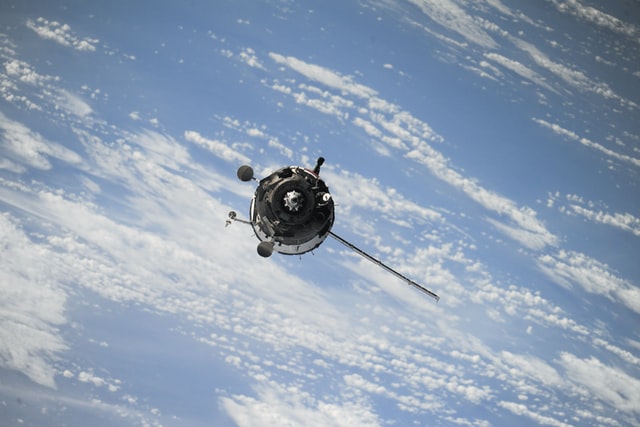
IELTS Speaking Part 1 Travel – Sample Question Answers
Travel (space travel).
- Do you want to travel in outer space?
Yes, I would like to travel in outer space if I get an opportunity in the future. I would like to travel to the moon and see what the earth looks like from outer space.
- What would you do if you had the opportunity?
As I mentioned earlier I would like to land on the moon to see what the earth looks like from outer space. I would like to do space walking and experience what it feels like to walk in a no gravity zone.
- Do you think it’s necessary to see other planets?
I would say it’s a luxury more than a necessity for average people. However, I think it’s necessary for scientists to investigate other planets so that we have better research and understanding of what is going on around us. Lastly, it’s good for us humans to realize that Earth isn’t the only planet.
- When was the last time you went traveling?
The last time I went travelling was last month. We went to Chandigarh for shopping and it was a one day trip. We went in the morning and returned back at night. I went there with my parents.
- Do you like to travel by air?
Yes, I really like to travel by air . It’s the most comfortable mode of travel and it saves a lot of travelling time. Moreover, travelling by air is safer than other modes of travel.

IELTS Speaking Part 1 – Outer Space and Stars
- IELTS Speaking

Have you ever learned about outer space and stars?
Do you like science fiction movies why, do you want to know more about outer space, do you want to go into outer space in the future.
In our school, most of the science-related topics revolved around natural science and physics. We did study outer space during our primary years, although it wasn’t very in-depth. However, there are many TV shows that discuss planets and our solar system.
Yes, I enjoy science fiction movies, especially classics like “2001: A Space Odyssey” and “Interstellar.” I find the concepts and ideas about space exploration to be very intriguing.
Actually, I prefer movies with simpler plots that don’t require much thinking, such as dramas and sometimes action movies.
Currently, I am focused on improving my knowledge in business, so I don’t have much time to study or learn more about outer space. Additionally, there isn’t a pressing need for me to delve deeper into the subject.
Yes, I have a desire to explore outer space. However, I believe that it may not be possible in our lifetime due to various challenges such as the need for oxygen and water. Additionally, I have heard that the cost of space travel is exorbitantly expensive. For now, I would rather focus on traveling on our planet first.
Check Placement Test for Speaking
Please visit the website Educatorian to find suggested answers for IELTS speaking questions. Additionally, I recommend checking out Ian’s personal website f or further information. 请访问 Educatorian 网站,找到雅思口语问题的建议答案。此外,我建议查看伊恩的个人网站以了解更多信息。

Ian Tanpiuco – Virtual Assistant, Educatorian, and IELTS Rizz Tutor. Ian’s goal is to enhance his students’ IELTS scores through a comprehensive curriculum that focuses on understanding rather than mere memorization.

- IELTS Writing Task 1 – Academic – Adult Education
- IELTS Speaking Part 1 – Library
- IELTS Speaking Part 1 – Languages
- IELTS Speaking Part 1 – Keys
- IELTS Speaking Part 1 – Jewelry
- Origins Academic Team
- May 27, 2023
IELTS Speaking Sample Part 1 - Outer Space
Updated: Dec 15, 2023

1. Do you enjoy looking at the stars?
Absolutely! I find great pleasure in watching the stars because it gives me a chance to escape from reality and delve into the wonders of astronomy . Besides, I also enjoy sharing this activity with my friends and family.
2. Have you ever learned about outer space and stars at school?
Well, if my memory serves me right , I used to study the solar system , galaxies, constellations and the life cycle of stars back then in secondary school. And you know, all this knowledge was truly captivating and has helped me a lot in better understanding how the universe functions.
3. Do you enjoy watching films about outer space and stars?
To be honest, movies that revolve around outer space have always captured my attention since I was a kid because of their stunning visuals and attractive storytelling. Moreover, these films also offer a glimpse into the vastness and mysteries of the universe, which never fail to leave me in awe .
4. Do you want to travel to outer space in the future?
Yes, I’d love to travel to outer space someday to explore the unknown of the universe and observe the Earth from a new angle. Oh, and the experience of being completely weightless in the middle of space would be incredibly exciting, too.
find pleasure in sth (phrase) = tìm thấy niềm vui ở điều gì đó
escape from reality (phrase) = thoát ly khỏi hiện thực (để tạm quên đi những bộn bề, áp lực hiện tại)
delve into sth (phrase) = đắm chìm vào điều gì đó
astronomy (n) = thiên văn học
if my memory serves me right,... (idiom) = nếu tôi nhớ không nhầm thì…
solar system (phrase) = hệ mặt trời
constellation (n) = chòm sao
revolve around sth (phrasal verb) = xoay quanh điều gì đó
capture one’s attention (phrase) = thu hút sự chú ý của ai đó
stunning visuals (phrase) = những hình ảnh tuyệt đẹp
glimpse (n) = cái nhìn thoáng qua
vastness (n) = sự mênh mông, rộng lớn
leave sb in awe (phrase) = khiến ai đó kinh ngạc
the unknown (phrase) = những điều chưa được biết đến
weightless (adj) = không trọng lượng
Trung tâm Anh ngữ ORIGINS - ORIGINS Language Academy
Luyện thi IELTS và Tiếng Anh Thanh Thiếu Niên
Website: https://www.ola.edu.vn/
Chia sẻ của học viên: http://bit.ly/3qzLuQN
Thông tin liên hệ: http://m.me/originslanguageacademy
Hotline: 028 7309 7889 - 0938 839 552
- IELTS Speaking Sample
Recent Posts
IELTS Speaking Sample Part 1 - Watches
IELTS Speaking Sample Part 2 - A Time When Someone Apologized To You
IELTS Speaking Sample Part 2 - A Risk You Took That Had A Positive Result
What are you looking for?
Most popular topics.
- Sustainable Aviation Fuel (SAF)
23 May 2024
Why do we need to explore space.
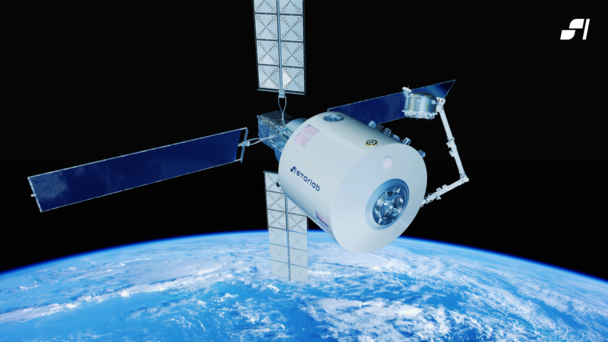
The space industry has pioneered many innovative technologies, whose applications on Earth enrich our daily lives and continue to deliver breakthroughs in many industries. The origin of these inventions is often unknown, even though they are used by billions of people.
Matthieu Lys, Head of Innovation Management at Airbus Defence and Space, sheds light on space innovations and how new technologies will affect our future.
Why is space exploration a catalyst for technological development?
Space is a harsh environment where satellites are exposed to intense radiation, very high and very low temperatures with wide fluctuations that affect structures and insulation. To cope, technologies are pushed to their limits. For example, we have sent a probe called Solar Orbiter to study the Sun, which can withstand temperatures of over 500 degrees.
Another point is that it is very difficult to fix things in space (but it can happen!). This means that you have to get things right first time, so a lot of modelling and testing has to be done up front to ensure this level of reliability. The James Webb Telescope is now 1.5 million kilometres from Earth, so you can imagine that we couldn't repair our instruments at that distance!
Space systems have a very long lifetime. A geostationary communications satellite is often active for well above 15 years, the International Space Station (ISS) is more than 25 years old, and there are even spacecraft that were launched more than 40 years ago. For example, Voyager 1 has just been reactivated at a distance of four billion kilometres, more than 46 years since its launch.
Another major constraint is the need for miniaturisation and lightness to adapt to the limited capacity available inside launchers and reduce the cost. The heavier it is, the more it costs to launch.
Is space a source of innovation that can be applied on Earth?
Space is often thought of as a world for geeks or astrophysicists, but its impact on Earth is far-reaching. A huge number of innovations in our daily lives have come from space technologies, covering many fields such as medicine with medical imaging and scanners. Digital photography, airbags and survival blankets also have their origins in space technologies. The miniaturisation and weight reduction of devices has been applied to consumer electronics, which we now find in our mobile phones and tablets. Sports shoes were inspired by the moon boots designed for the Apollo missions to cushion astronauts' steps on the Moon.
Some space innovations are used on Earth for very different needs. For example, the CO 2 recycling system developed by Airbus for the ISS provides oxygen to astronauts by capturing the CO 2 they exhale inside the station. This system is now being used by farmers on Earth. The module allows farmers to capture atmospheric CO 2 , which is then reused in greenhouses to grow plants that need this CO 2 for photosynthesis.
Space technology has a very real impact on Earth.
Are new technologies like AI and robotics used in space?
Artificial intelligence (AI) is widely used to optimise mission programming, for example to make satellites more autonomous in their decision-making. It also helps to automatically analyse images taken from space. Robotics, augmented reality and virtual reality are also used in manufacturing.
We also take inspiration from other industries, such as automotive. For OneWeb, we made a paradigm shift from producing typically 10 satellites a year to producing two or three a day, with a total constellation of more than 600 satellites. That completely changes the way we manufacture.
Something that is less well known, but will have a huge impact on our future, are laser and optical communications technologies. They allow us to transmit information securely and at very high speeds from space, enabling high-speed internet, connected objects and big data. Airbus is at the forefront of these technologies and this year we will demonstrate the feasibility of very high speed communications between the ground and a geostationary satellite, 36,000km from Earth, with TELEO.
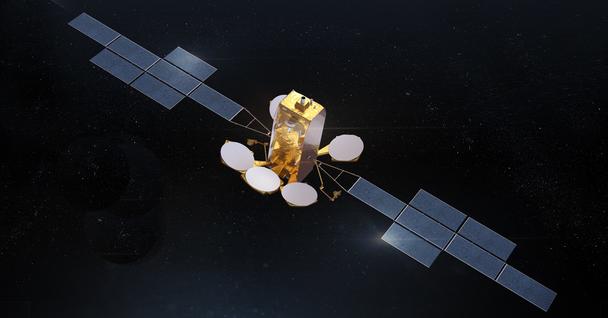
The BADR-8 satellite includes the Airbus TELEO optical communications payload demonstrator. ©Airbus
The ISS’ microgravity environment has enabled groundbreaking discoveries. What does the future hold for laboratories in space?
The ISS laboratory allows researchers to conduct experiments in an environment that cannot be replicated on Earth. It generates important scientific and technological developments for the benefit of people around the world, but will reach the end of its working life at the end of this decade. To maintain this human presence in low-Earth orbit, microgravity science and research is really key.
Airbus is partnering with Voyager Space and Mitsubishi to have the ISS’ successor up-and-running: Starlab, the next generation space station, is designed to ensure a seamless transition to the new commercial space stations era.
The Starlab station consists of a large steel-cased module approximately 8 metres in length and diameter, capable of conducting over 400 experiments or technical investigations per year for a global customer base of space agencies, researchers, and large and small companies. Three separate decks, connected by a central tunnel surrounded by a greenhouse, will provide astronauts with ample space for science and research, as well as exercise and free time.
An increasing number of start-ups and external partners are interested in using this future commercial station, which represents a new business model that will bring the benefits of space to a broader spectrum of applications.

NASA’s Artemis missions aim to establish a long-term human presence on the Moon. What kind of technologies will be required for this ambitious journey?
The next step is indeed lunar exploration and new technologies are being developed for this journey. Airbus - under a European Space Agency contract - is contributing to the programme with the European Service Module (ESM), which will propel and manoeuvre the Orion spacecraft and provide the crew with water, oxygen and thermal control.
We are also developing new technologies for landing on the Moon and for rovers to move around the lunar surface. The world’s first metal 3D printer is currently being tested inside the ISS to confirm that metal printing is suited to such a microenvironment. The capacity of printing structural parts in space is an important step in preparing the technologies humankind will need for a sustained presence on the Moon .
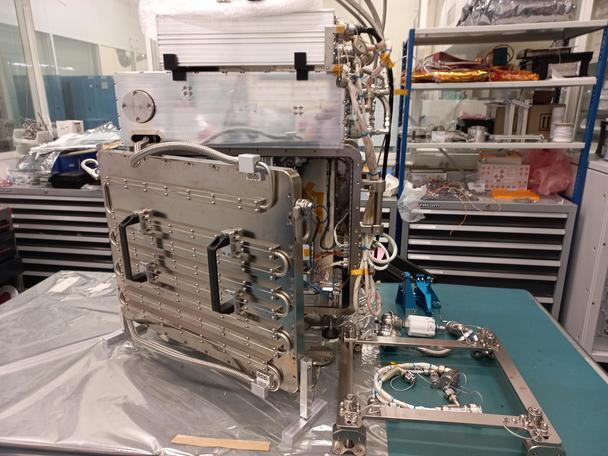
The first metal 3D printer for the International Space Station. ©ESA
All of these projects require the use of robotics, automation, computer vision and materials. Innovations are also needed to ensure a constant presence on the Moon for astronauts to breathe, eat and move around. The Airbus system Roxy could provide astronauts with oxygen by converting regolith, the fine dust covering the lunar surface.
How these technologies will benefit Earth in the future is hard to say, but it's certain that new innovations will emerge thanks to space.
What is the innovation ecosystem? How do you work with start-ups?
We are working more and more with start-ups, either as customers, buying capabilities from them to integrate into our own products and services or providing them with satellite data or platforms so they can develop their own services for many kinds of applications (agriculture, defence, environmental monitoring, maritime surveillance, urban planning).

Innovation: Shaping the future of aerospace
- Earth Observation
- Artemis mission
- European Service Module
Discover more Space news
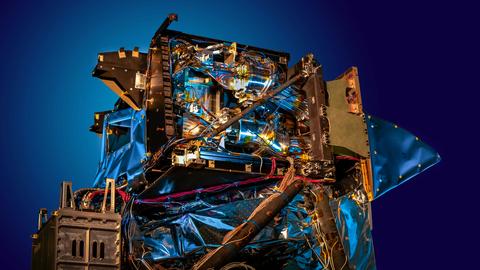
Airbus delivers first Sentinel-5 instrument for satellite integration
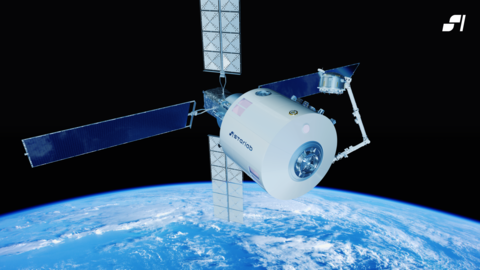
Airbus delivers first active antenna of the SpainSat NG-I satellite

- Transcripts
- Alumni Network
Shooting for the Moon
Touro college of osteopathic medicine student aims for a career in the military and possibly outer space.

Sarah Loftus, OMS-II at TouroCOM Middletown, is a 2 nd Lieutenant in the United States Army and president of the school’s Armed Forces Medical Club. Recently she organized and moderated a well—attended webinar for students with NASA Astronaut and Colonel Andrew Morgan, an astronaut on the International Space Station. They explored how a medical career in the military can be rewarding and propel physicians into space. We discussed with Sarah her interest in medicine and military service.
Can you share your background and interest in medicine?
When I was younger my mother was a pediatric oncology nurse and she often brought my brother and I to work. We would interact with children undergoing chemotherapy and this introduced me to the medical world. Throughout high school and college I kept this career hope alive by continuing to work in the medical field as an EMT and emergency room scribe.
How did you come to pursue the military and outer space?
I commissioned in the military after receiving financial aid through the U.S. Army's Health Profession Scholarship Program, which helps pay for medical school in return for time served as a military physician. But more than the financial help, I am very excited to see where a military career will lead me, with opportunities to live and work in exciting places, undergo challenging physical training and also work with unique patient populations. As for space, it captures my imagination! It's the final frontier!
Why did you choose the Army and what is involved in reaching your goal?
In addition to the financial help, I grew up right here in Orange County, N.Y., in the hamlet of Fort Montgomery on the banks of the Hudson River. It’s near West Point, home of the United States Military Academy for the Army. While no one in my family is in the military (except me now!), I had numerous friends from high school attend West Point or join the Army, which motivated me to do the same. My goal of becoming an Army physician means I need to continue to do well at TouroCOM and then go on to residency at a military hospital. What specialty and where remains to be determined and is something that both excites and terrifies me. But I know I need to get better at push-ups!
What do you like most about medicine so far, and why become a DO?
Studying medicine satiates my curiosity about the human body and people. I love learning and see a career in medicine as dedicating myself to lifelong learning. Also, I consider myself a “people-person” and medicine is a hugely social field. When applying to medical schools my main goal was to stay close to home, and fortuitously the closest school was TouroCOM Middletown. I greatly appreciate our holistic curriculum and approach to patient cases. Additionally, having weekly classes in Osteopathic Manipulative Medicine has made me comfortable touching the human body and strengthened my knowledge of anatomy.
Tell us about the Armed Forces Medical Club.
The AFMC is a club of students from both Middletown and Harlem that allows students on military scholarships to network with classmates and alumni. Having peers to engage with about training, navigating military responsibilities while in school, and filling out the endless paperwork is extremely helpful. There are about 30 students in the club representing the U.S. Air Force, Navy, and Army. During my master's year at Middletown the club was super helpful in helping me decide to apply for my scholarship; thus, come second year I wanted to be more involved and so joined the e-Board.
What are the main benefits of TouroCOM and how is it preparing you for your future?
For me, the main benefits are the small class sizes and homey feel. I love the close-knit community of professors and students and feel cared for as a student and individual by all the staff and professors. Also, as someone who grew up in the surrounding community, I appreciate the opportunities provided to give back through the multiple volunteering opportunities that TouroCOM provides students.


IMAGES
VIDEO
COMMENTS
Outer Space Travel & Stars IELTS Speaking Vocabulary for Part 2 & 3. Meticulous; Meaning: showing great attention to detail; careful and precise Example: The meticulous work of the student impressed the teacher. Terrain; Meaning: physical features of a tract of land, such as its elevation, slope, and surface characteristics Example: You should be careful and alert as you are traveling in ...
13 Things Tourists Should Know Before Traveling to Space, According to Astronauts. We asked the pros for their best tips on handling a first trip to space.
Everything you need to know about space travel (almost) - BBC Science Focus Magazine.
3. SpaceX. Last in our trio of serious contenders for firms that will take your money and send you into space in the next few years is SpaceX. SpaceX is owned by Elon Musk, who is particularly famous for being the CEO and co-founder of Tesla Inc, the electric car and battery manufacturer, amongst other things.
Kenneth Chang writes about Hayley Arceneaux, a 29-year-old cancer survivor who recently learned that she had been chosen to join a crewed mission to orbit the Earth, in " She Beat Cancer at 10 ...
Blue Origin is also sending its first crewed suborbital space flight on July 20, 2021. That's nine days after Virgin Galactic's first flight, but the Blue Origin vehicle will fly an additional ...
Here's how you can - BBC Sky at Night Magazine. Have you ever wanted to travel into space? It's theoretically possible. Here are the various options, and how much it will cost you to go into space.
Yes, I bet it would be very funny to travel around the outer space. Considering the current technology development and expensive cost, space travel would be memorable experience in my life. I would like to do something that can be don on earth. I will try to fly in the air like birds, or jump long distance like a grasshopper, or even I could be ...
Space Travel + Astronomy. It was mere decades ago that the idea of space tourism — not just for astronauts and scientific research but for recreation — was the stuff of science fiction. Today ...
Everything you need to know about going to space. A look at who can fly, what it costs and what sort of training is involved for space tourists. In this photo provided by Virgin Galactic, Kellie ...
Do you want to travel in outer space? Yes, I would love to travel to Mars. I want to visit Mars because it is one of the brightest objects in the night, and sometimes it looks red because of its red soil. Q2. What would you do if you had the opportunity?
First, any space travel begins with the Kármán line, which lies at 100 kilometres (62 miles) above sea level and is commonly accepted as the limit between Earth's atmosphere and outer space ...
Have you ever dreamed of traveling in space?For many kids, gazing at the stars leads to daydreams about what it would be like to be an astronaut.Would you like to travel on a spaceship? Just think about how awesome it would be to set foot on the moon or another planet!. Of course, becoming an astronaut isn't easy. There aren't many astronauts in the world, so you have to be very skilled in a ...
Do you want to travel into space? Yes, I would definitely choose to visit space if I had the chance. I've always wanted to see what the Earth looks like from faraway, and very few people have ever actually been able to witness it. Although it might be a bit dangerous, it would truly be a once-in-a-lifetime experience. ...
alien (adj) /ˈeɪ.li.ən/. relating to creatures from another planet. an alien spacecraft. IELTS Speaking Part 1 Topic Outer Space And Stars - Sample Video Answer. Some IELTS Speaking part 1 topics you may like: (2024) IELTS Speaking Part 1 Topic Jewelry. (2024) IELTS Speaking Part 1 Topic Fast Food.
1 The Perfect Speaking Part 1 Response. 2 Did you know that the first part of the IELTS Speaking test can be the most difficult for candidates. 2.1 A relaxed candidate always listens better and responds well. 2.1.1 Space Travel. 2.1.2 TIP- IELTS Part 1 features 'three' random topics chosen by the examiner.
Question 1. Do you want to travel in outer space? Answer - Frankly speaking till now, I never think about this, but I'm pretty sure that if I would get the opportunity shortly, then I would definitely like to visit any outer space since I saw in many movies that it is an adventurous task. Question 2.
ANSWERS. Have you ever learned about stars and outer space? (Answer 1) Yes, I learned about those things when I was a grader in our science class. That's when I first learned about the solar system, and you know what, this question reminds me of the time when we were so fascinated (interested) by the appearance of the universe when we watched ...
Answer - Of course, I want to travel to outer space because I am very ago to know about the stars, universe and planets. Question 2:- What would you do if you had an opportunity? Answer - If I get an opportunity, then I definitely feel over the moon and would like to search the universe and explore it.
These IELTS speaking questions with answers will help you to successfully prepare for parts 1,2 and 3 of the speaking test. Firstly, although there are common topics that come up, they can all vary slightly, so if you give a learned response you may not answer the question. Also, examiners will be able to spot if you are using learned responses ...
We went in the morning and returned back at night. I went there with my parents. Do you like to travel by air? Yes, I really like to travel by air . It's the most comfortable mode of travel and it saves a lot of travelling time. Moreover, travelling by air is safer than other modes of travel. Do you want to travel in outer space?Yes, I would ...
Vocabulary. Nebula (noun) - a cloud of gas or dust in space, appearing either bright or dark. Nebulae (plural noun) - plural of nebula. Celestial (adj.) - of or from the sky or outside this world. Heavenly body (noun) - any object existing in space, especially a planet, star, or the moon. Coronal mass ejection (noun) - are large expulsions of ...
Do you want to go into outer space in the future? Yes, I have a desire to explore outer space. However, I believe that it may not be possible in our lifetime due to various challenges such as the need for oxygen and water. Additionally, I have heard that the cost of space travel is exorbitantly expensive. For now, I would rather focus on ...
Yes, I'd love to travel to outer space someday to explore the unknown of the universe and observe the Earth from a new angle. Oh, and the experience of being completely weightless in the middle of space would be incredibly exciting, too. VOCABULARY. find pleasure in sth (phrase) = tìm thấy niềm vui ở điều gì đó.
Why is space exploration a catalyst for technological development? Space is a harsh environment where satellites are exposed to intense radiation, very high and very low temperatures with wide fluctuations that affect structures and insulation. To cope, technologies are pushed to their limits. For example, we have sent a probe called Solar ...
Touro College of Osteopathic Medicine Student Aims for a Career in the Military and Possibly Outer Space. February 01, 2022. Sarah Loftus, OMS-II. Sarah Loftus, OMS-II at TouroCOM Middletown, is a 2nd Lieutenant in the United States Army and president of the school's Armed Forces Medical Club. Recently she organized and moderated a well ...